Category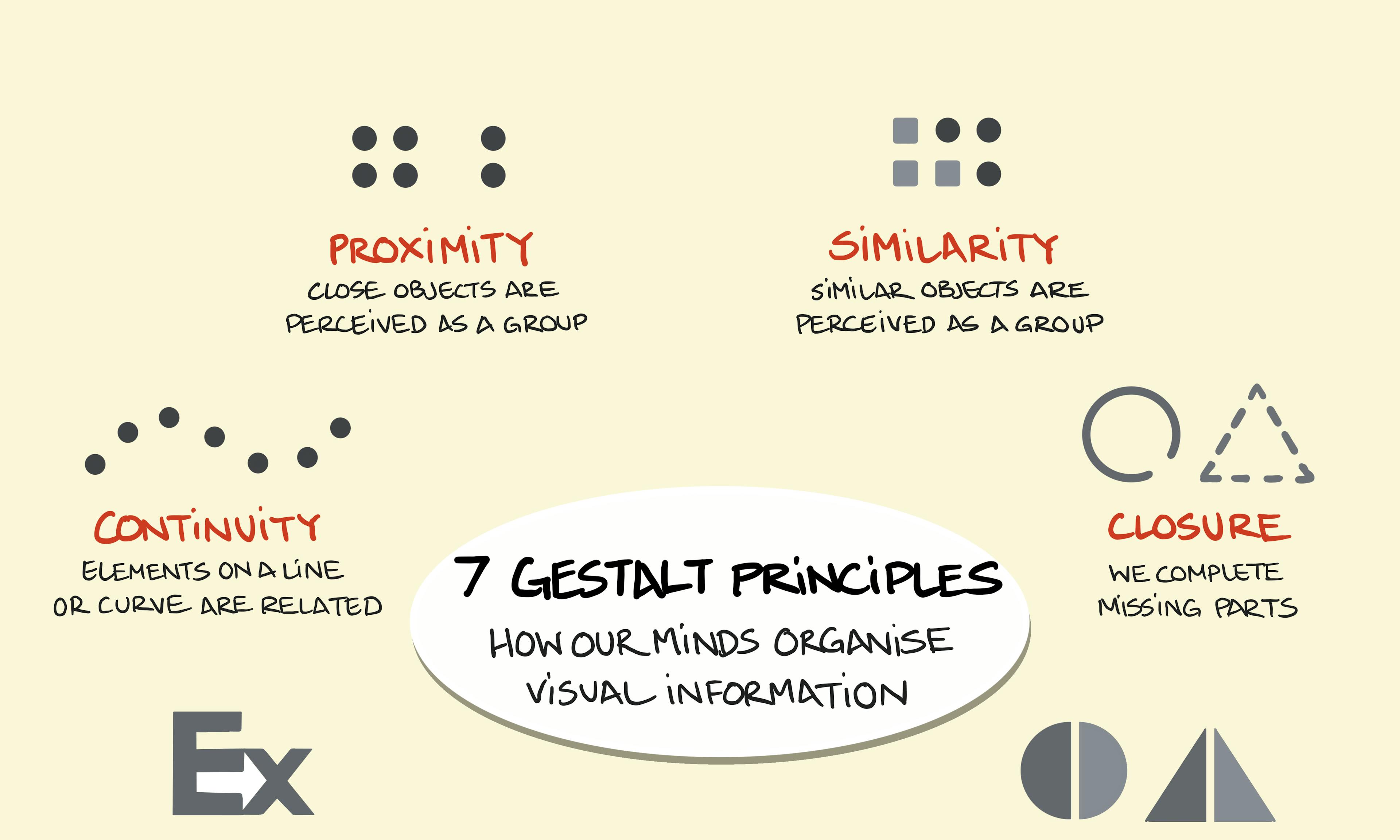 Gestalt principles
Gestalt principles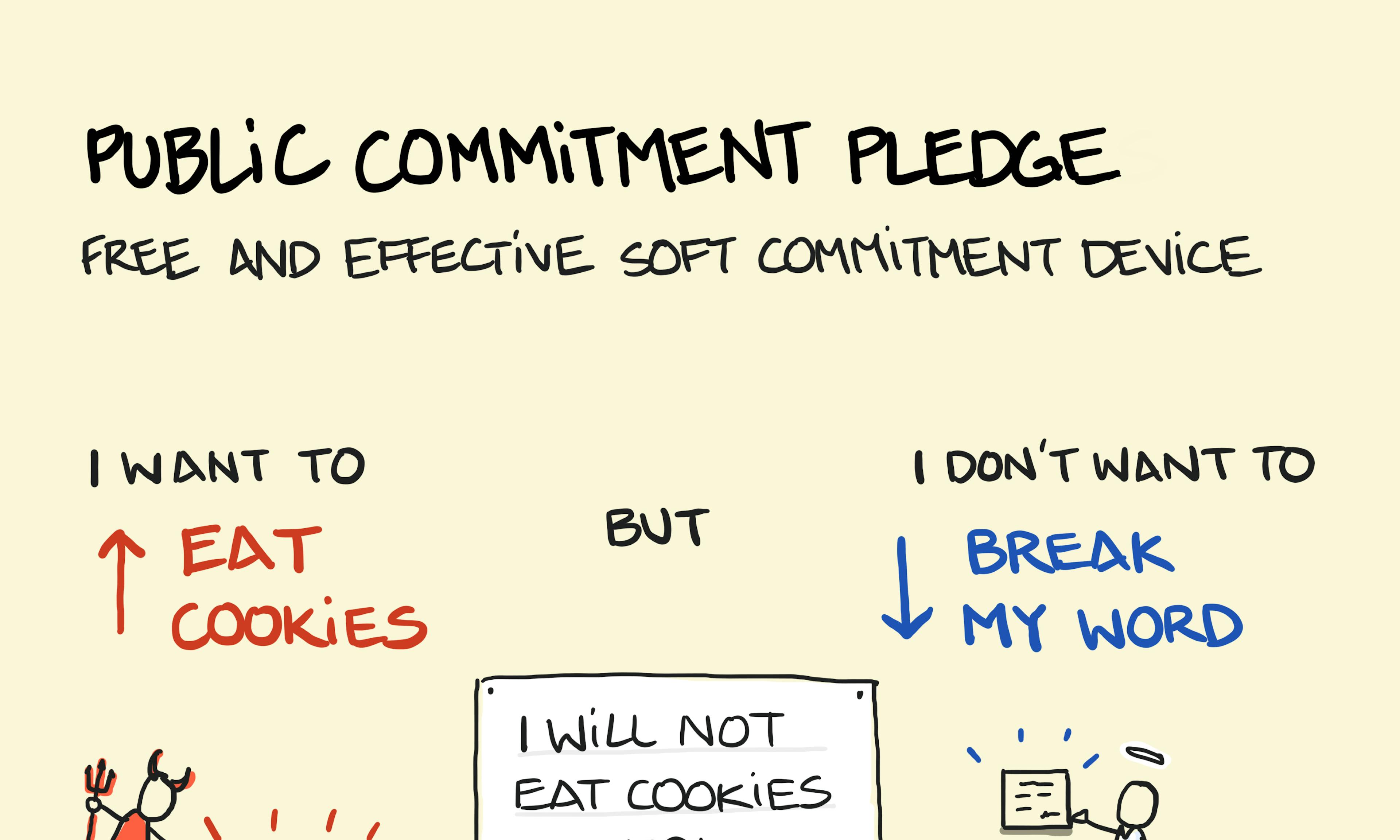 Public commitment pledge
Public commitment pledge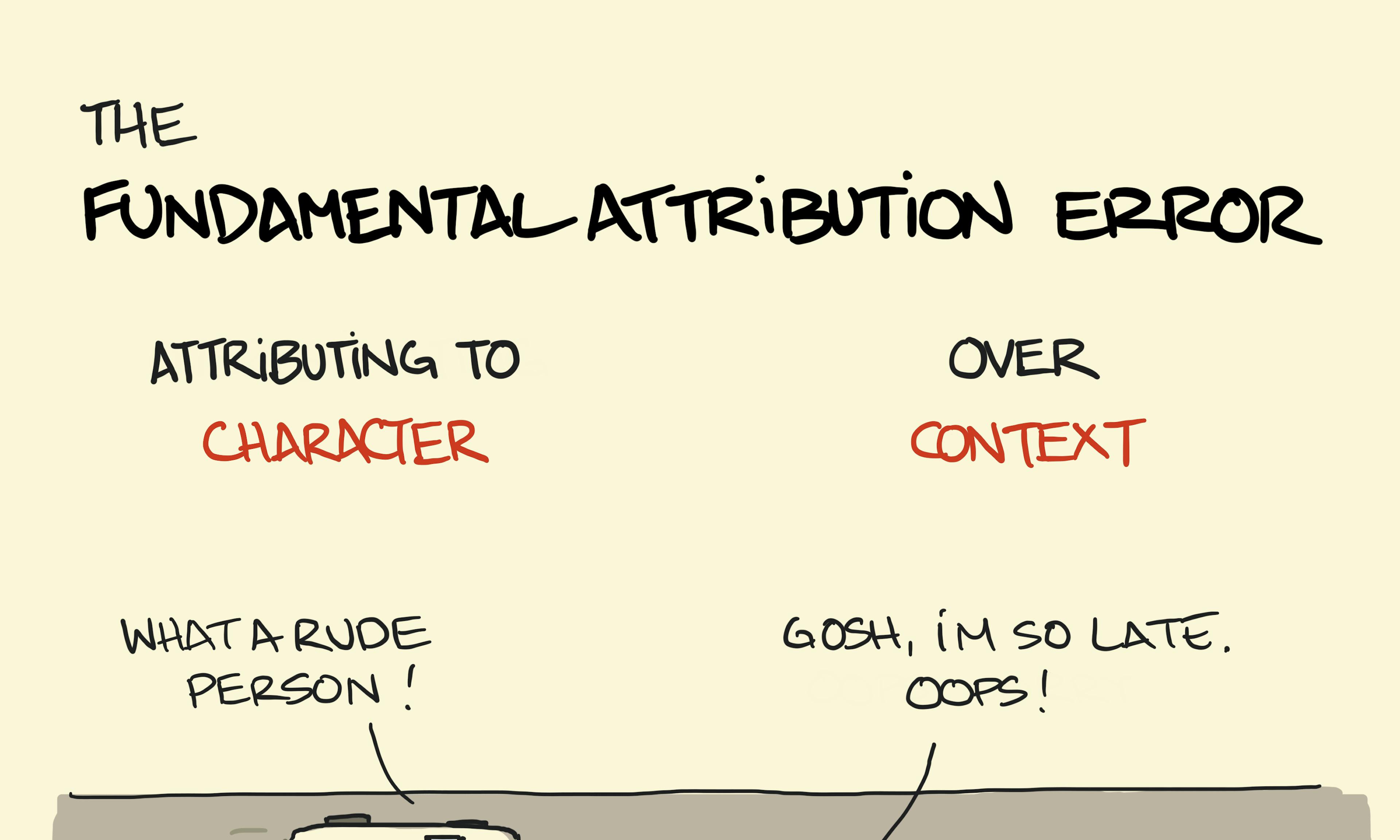 The Fundamental Attribution Error
The Fundamental Attribution Error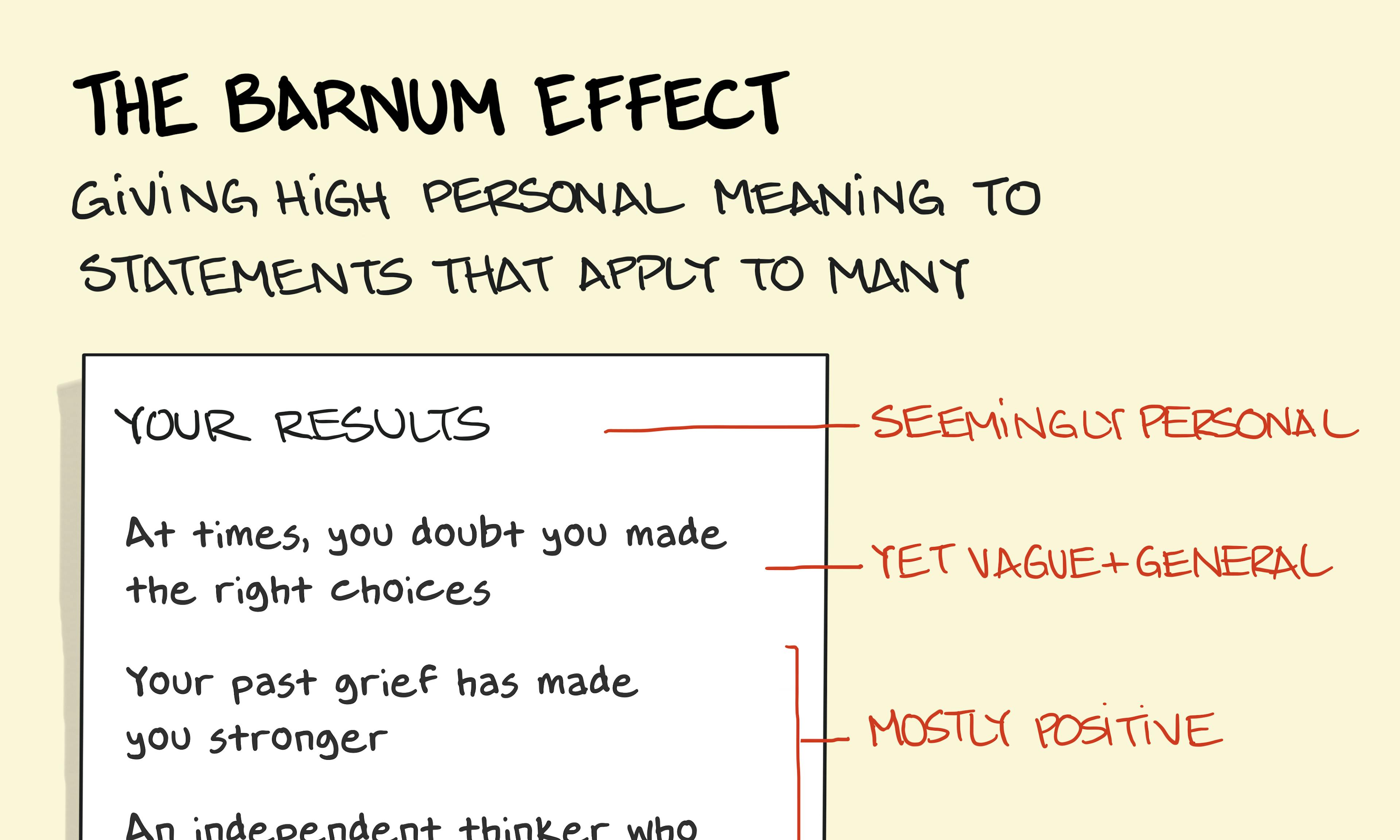 The Barnum effect
The Barnum effect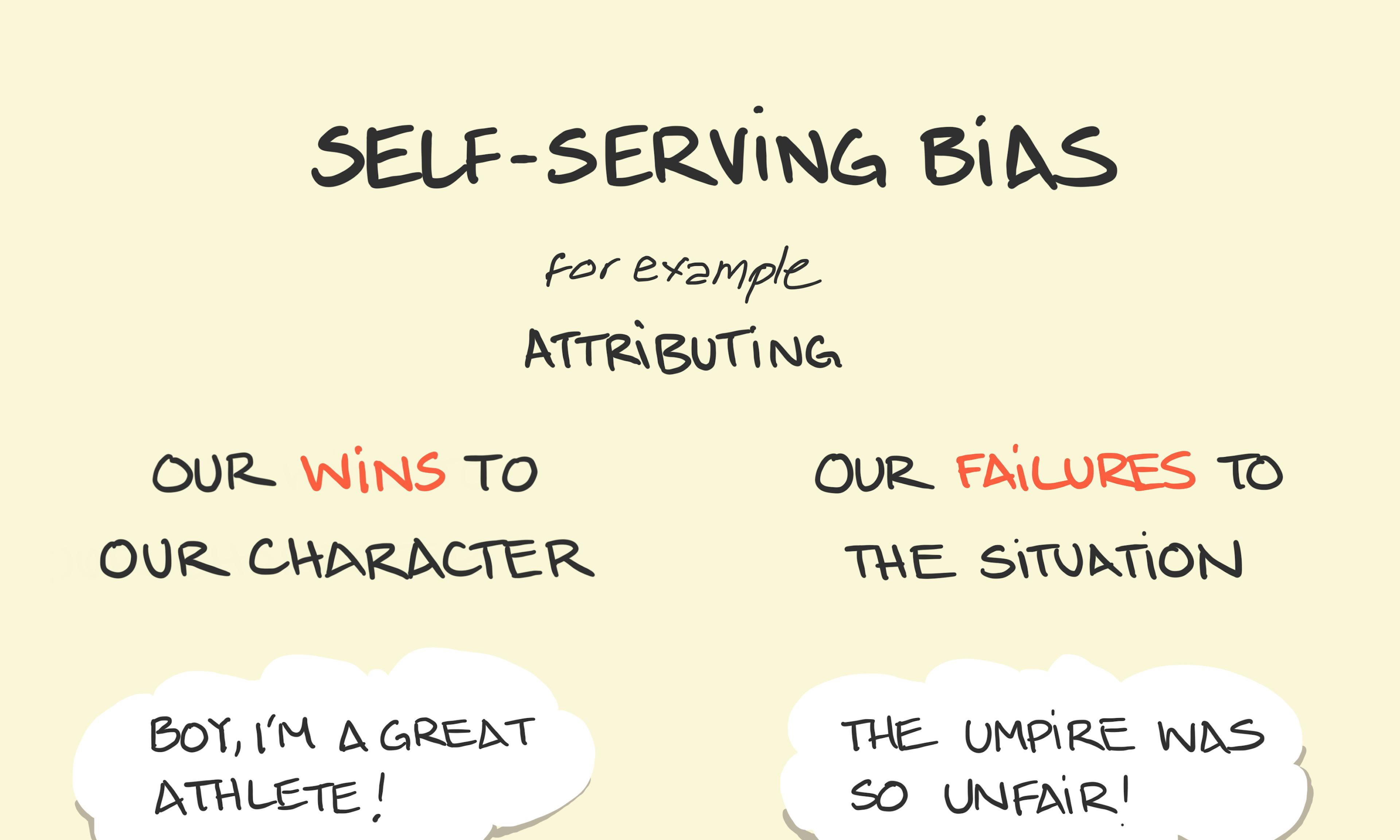 Self-serving bias
Self-serving bias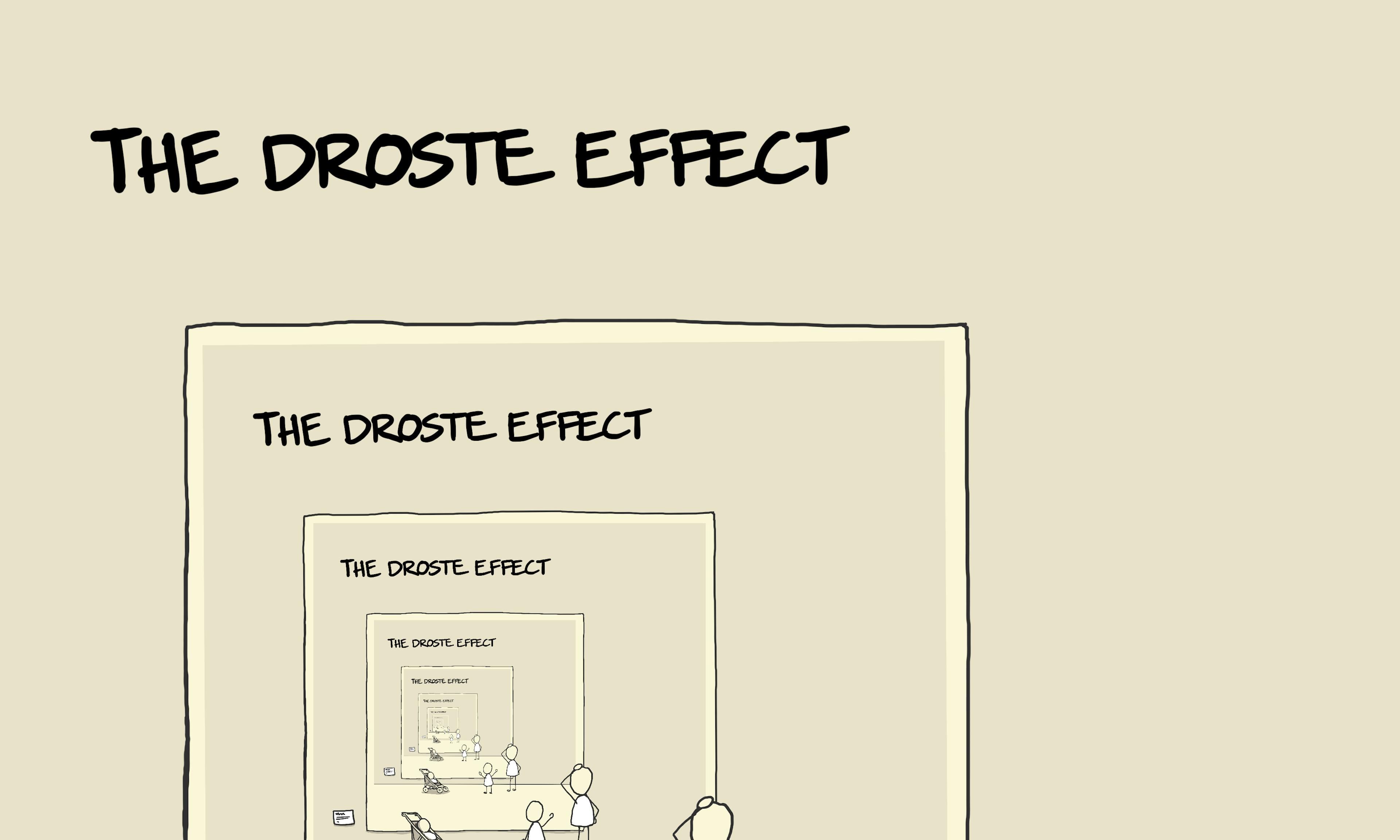 The Droste effect
The Droste effect Dark patterns
Dark patterns The isolation effect
The isolation effect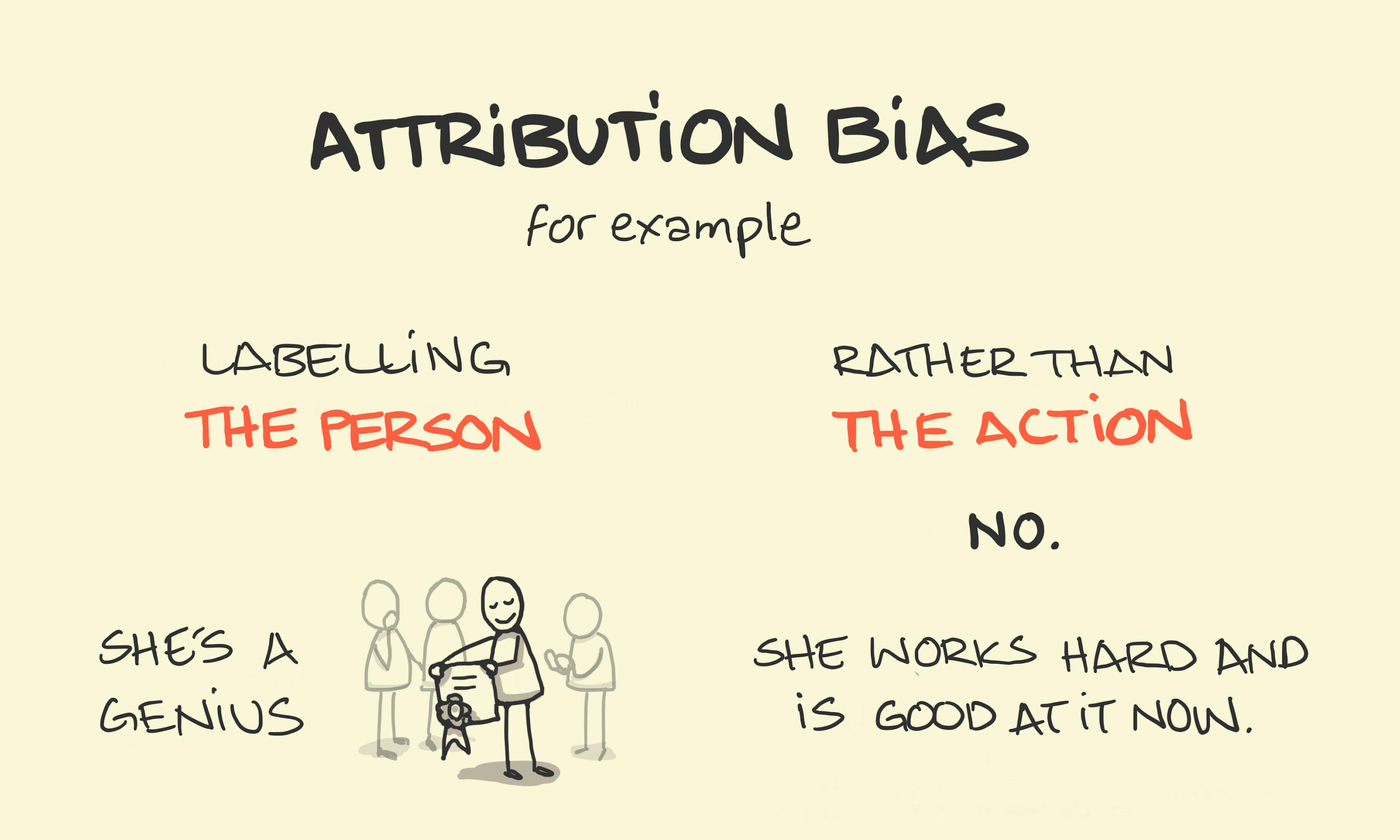 Attribution bias
Attribution bias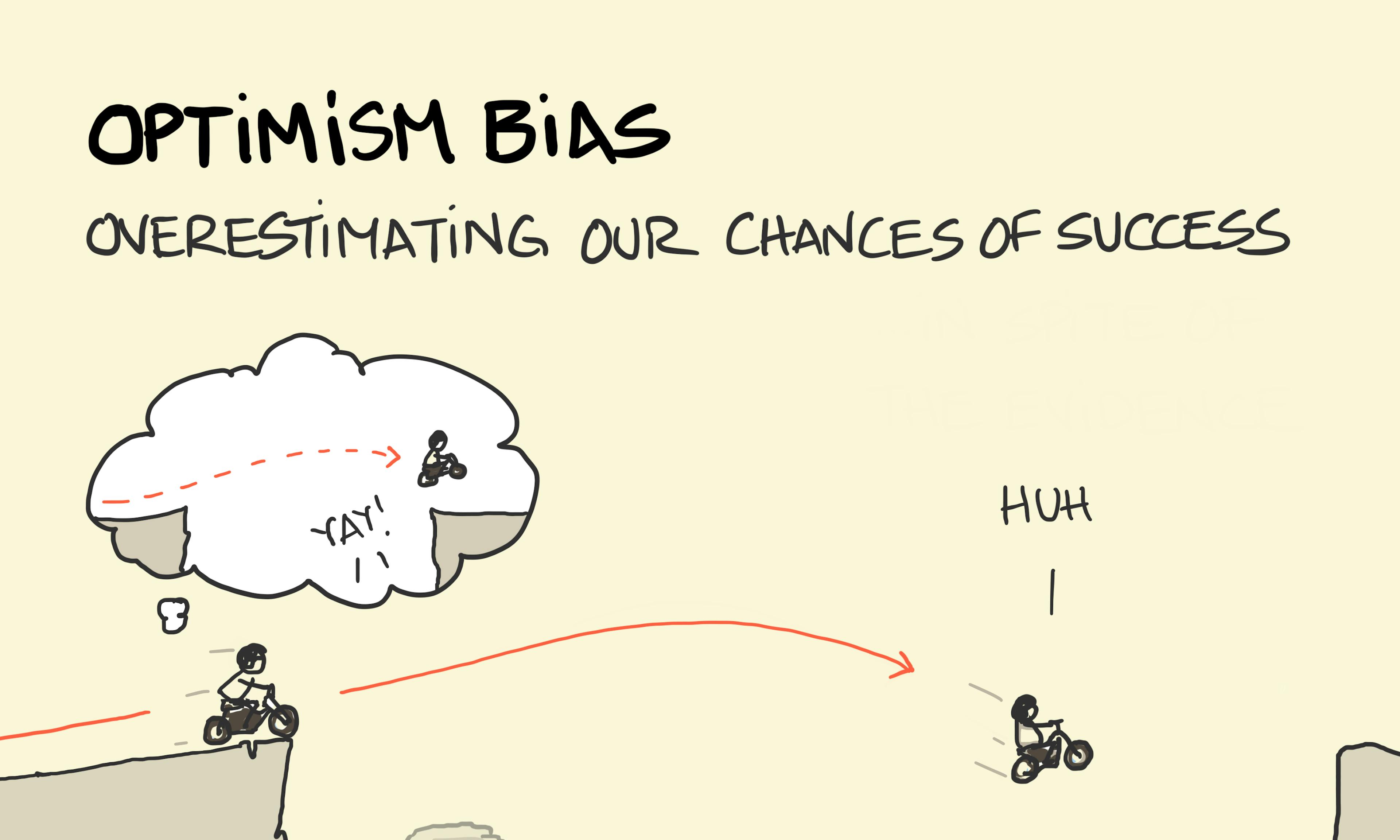 Optimism bias
Optimism bias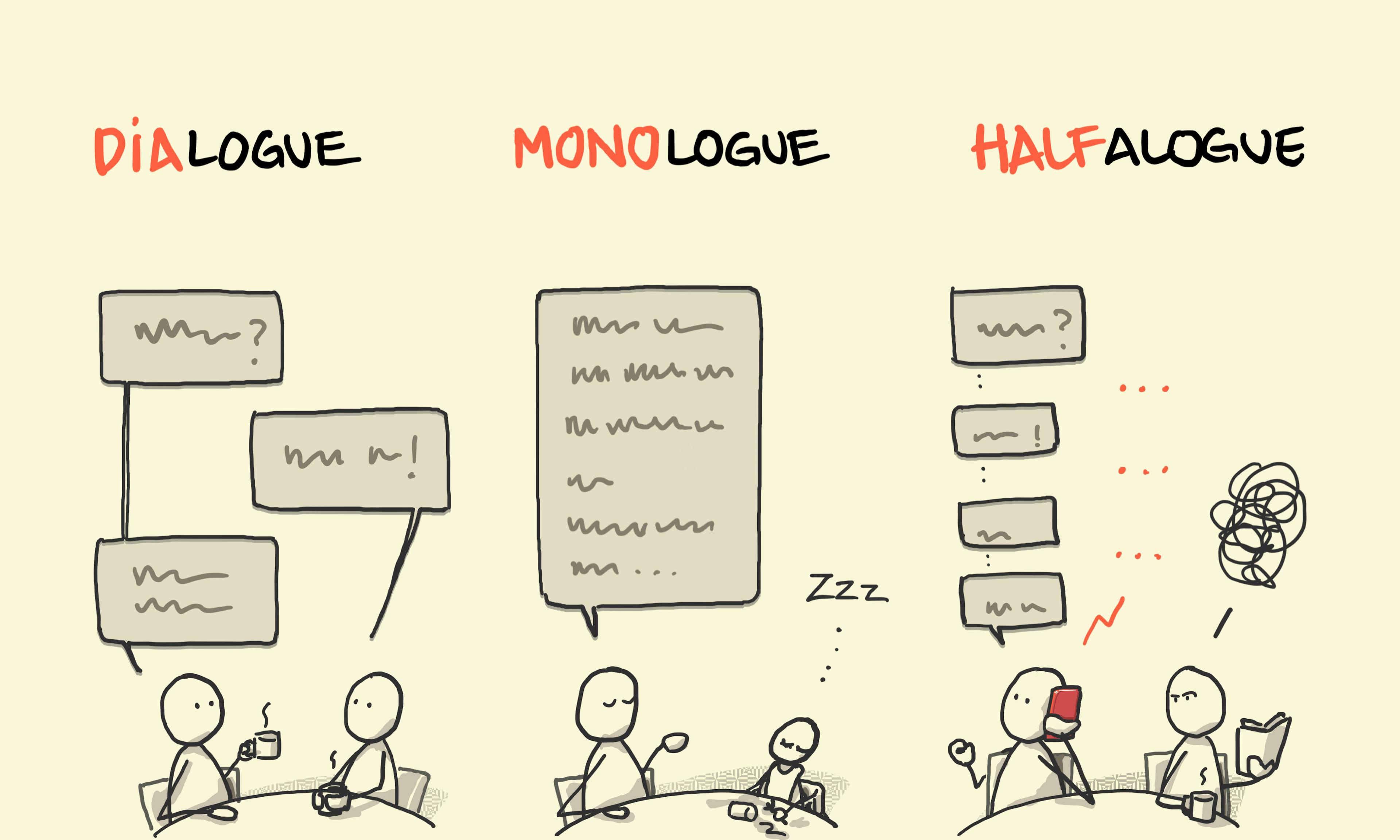 Halfalogue
Halfalogue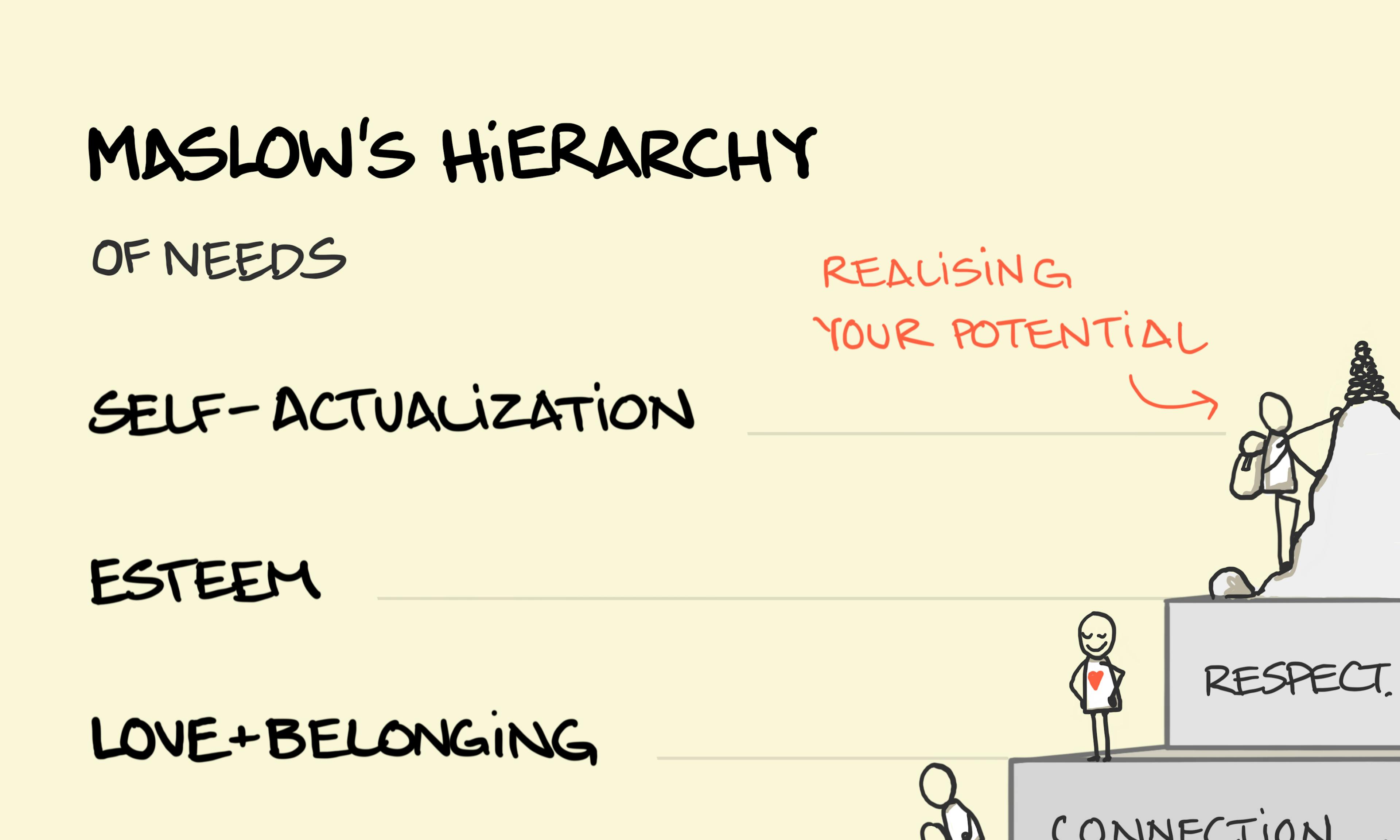 Maslow's hierarchy of needs
Maslow's hierarchy of needs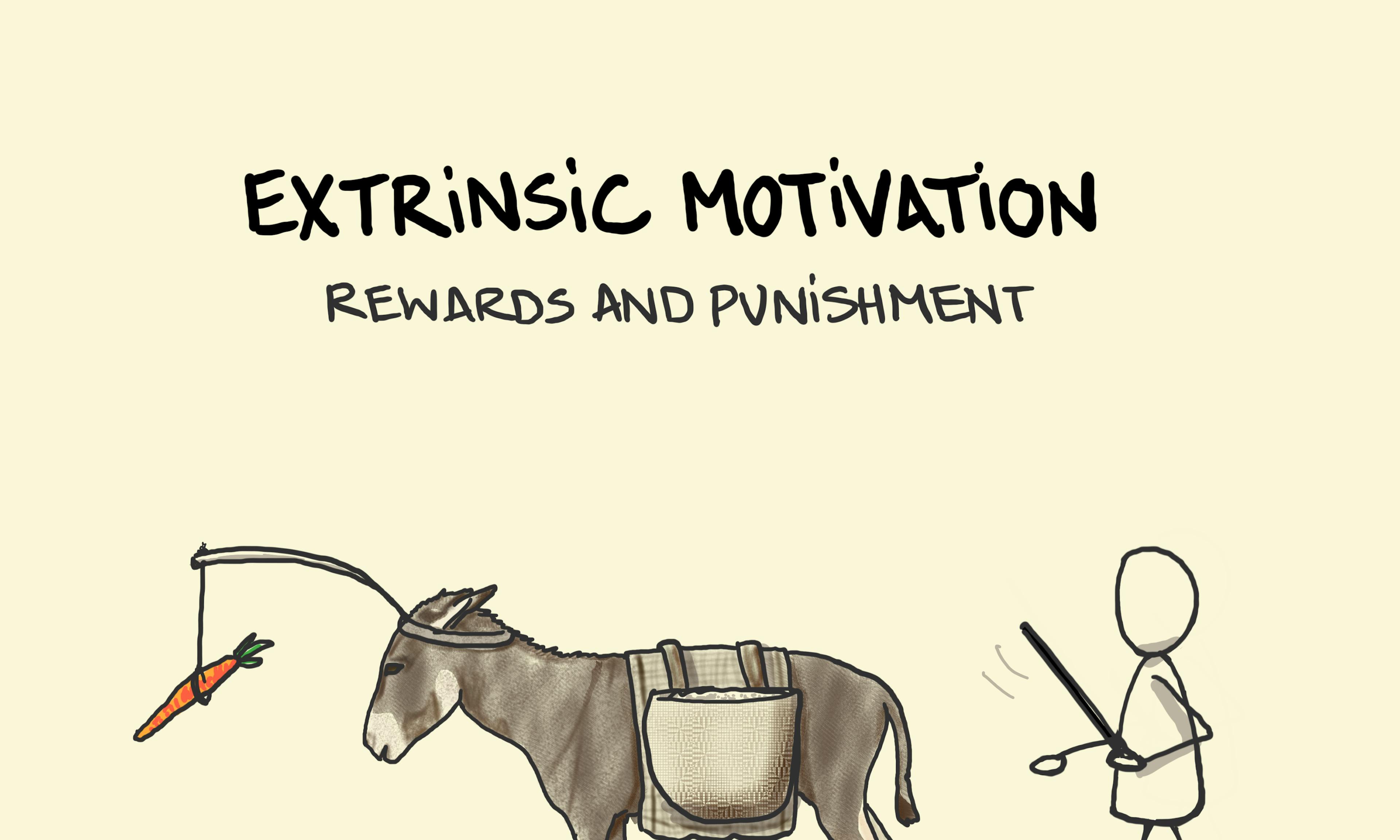 Extrinsic motivation
Extrinsic motivation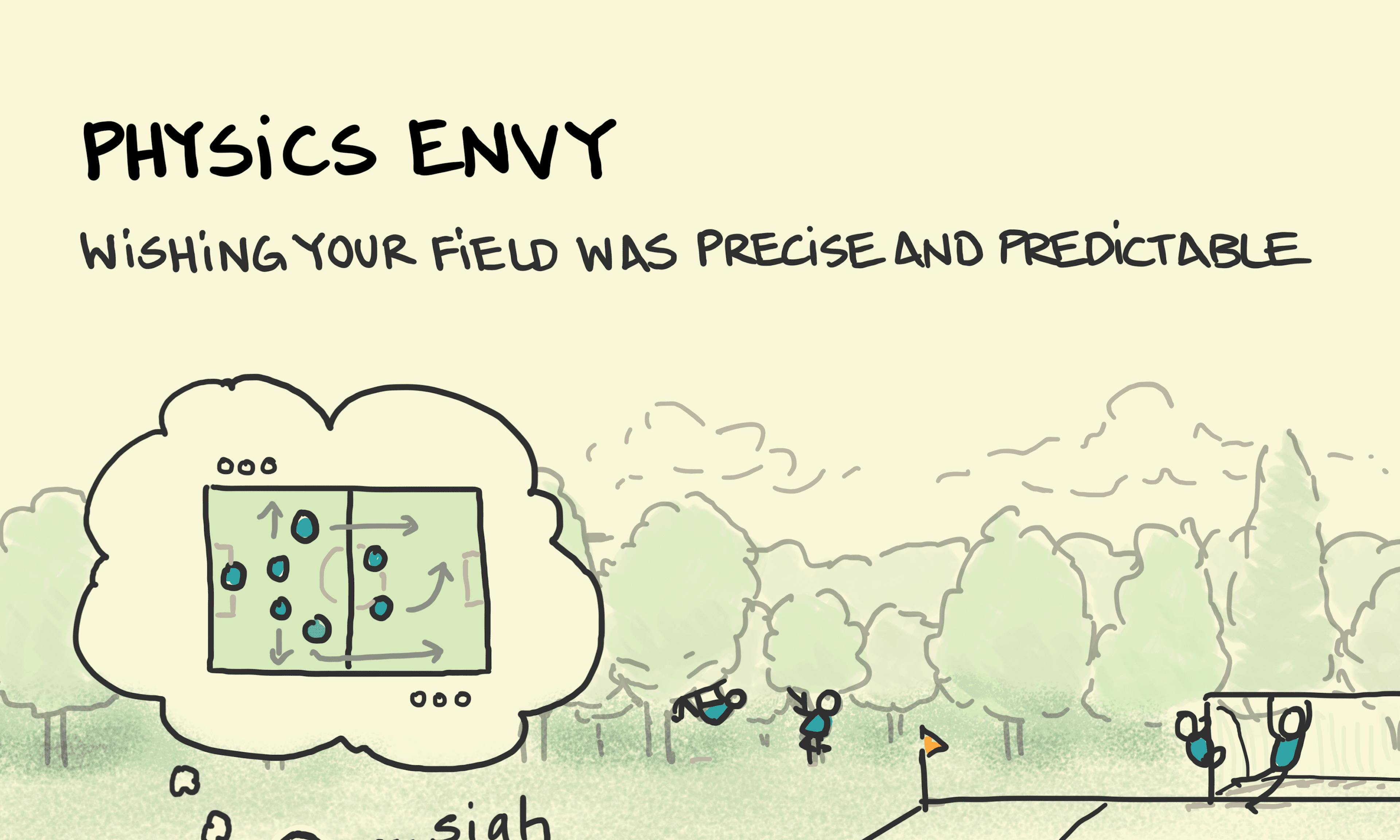 Physics Envy
Physics Envy The Rhyme As Reason Effect
The Rhyme As Reason Effect Context is king
Context is king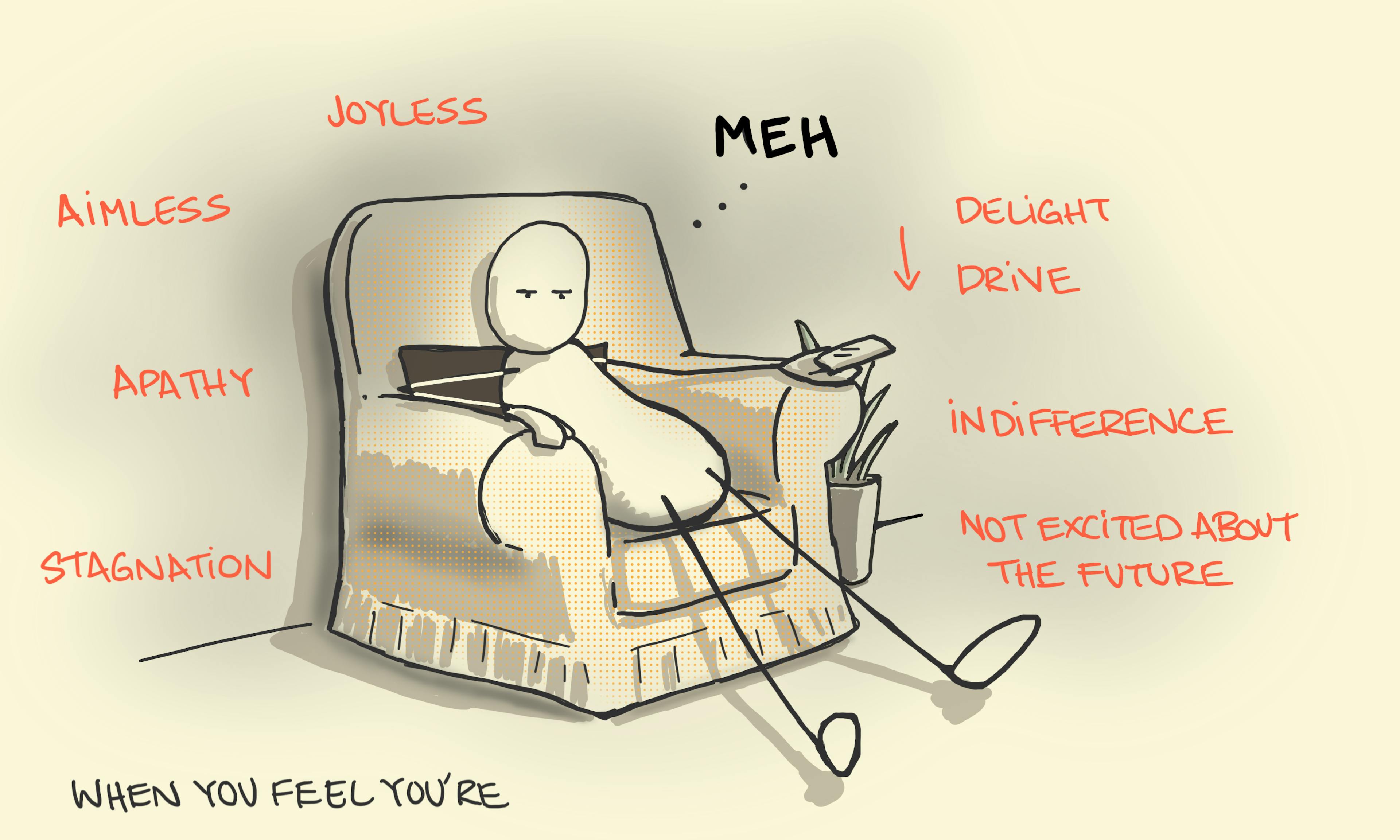 Languishing
Languishing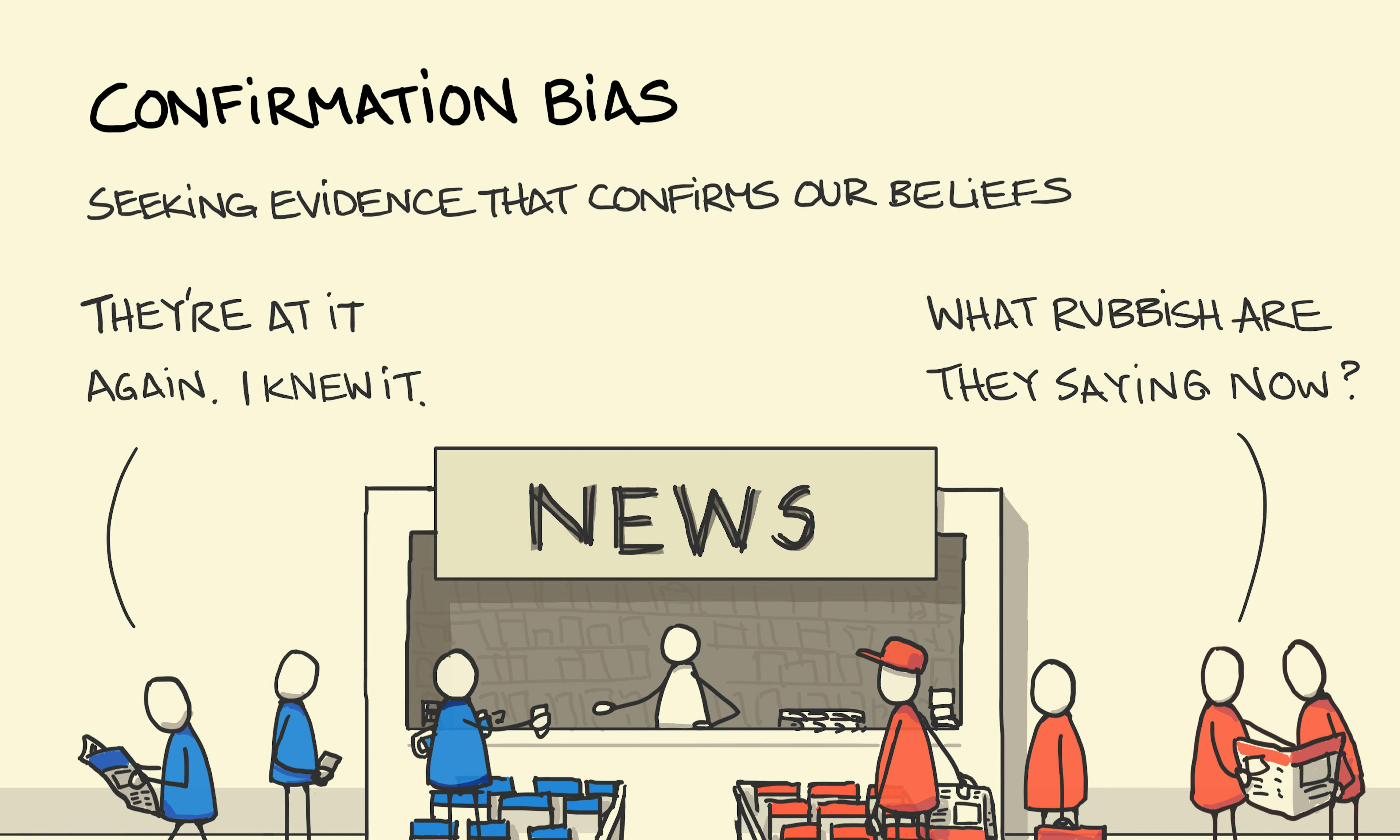 Confirmation bias
Confirmation bias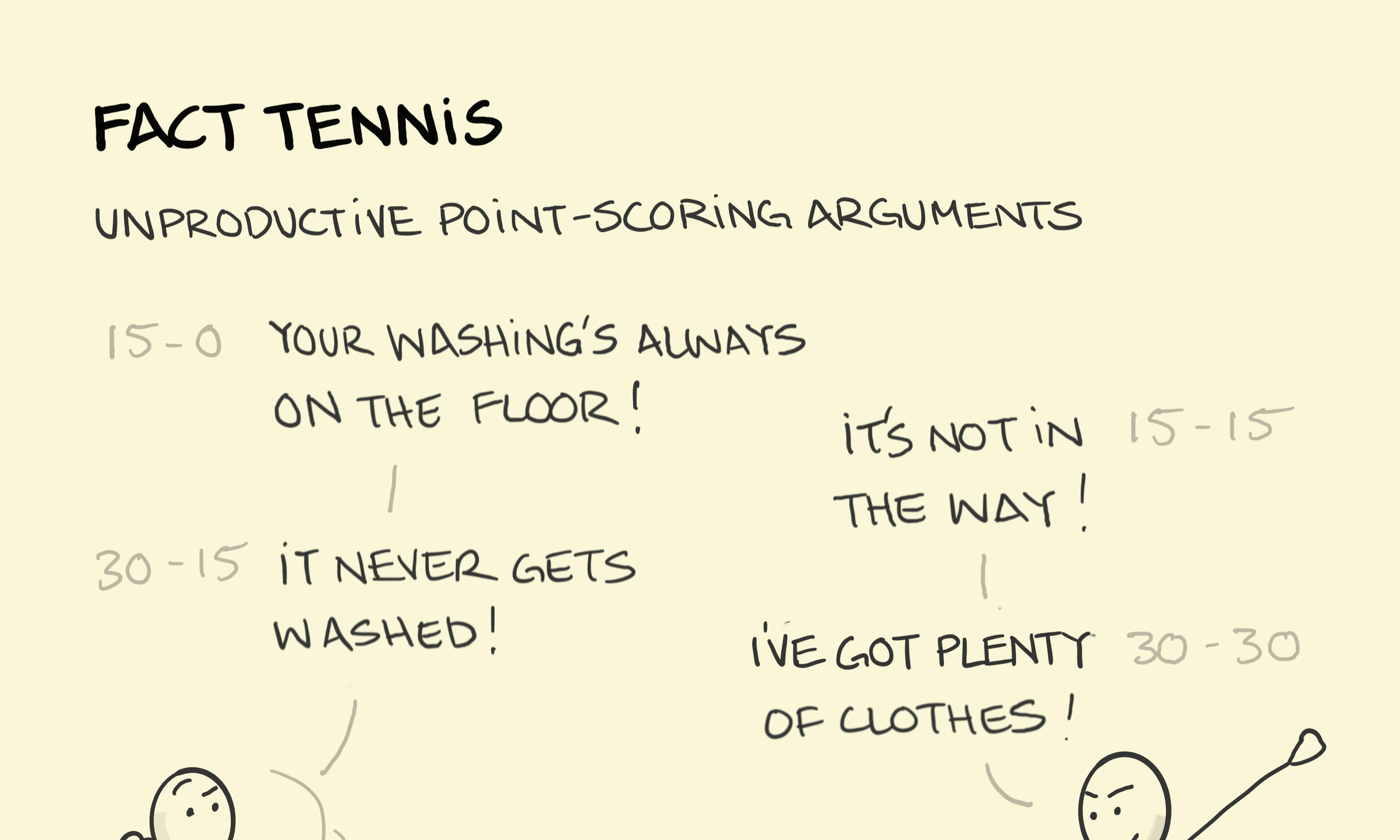 Fact tennis
Fact tennis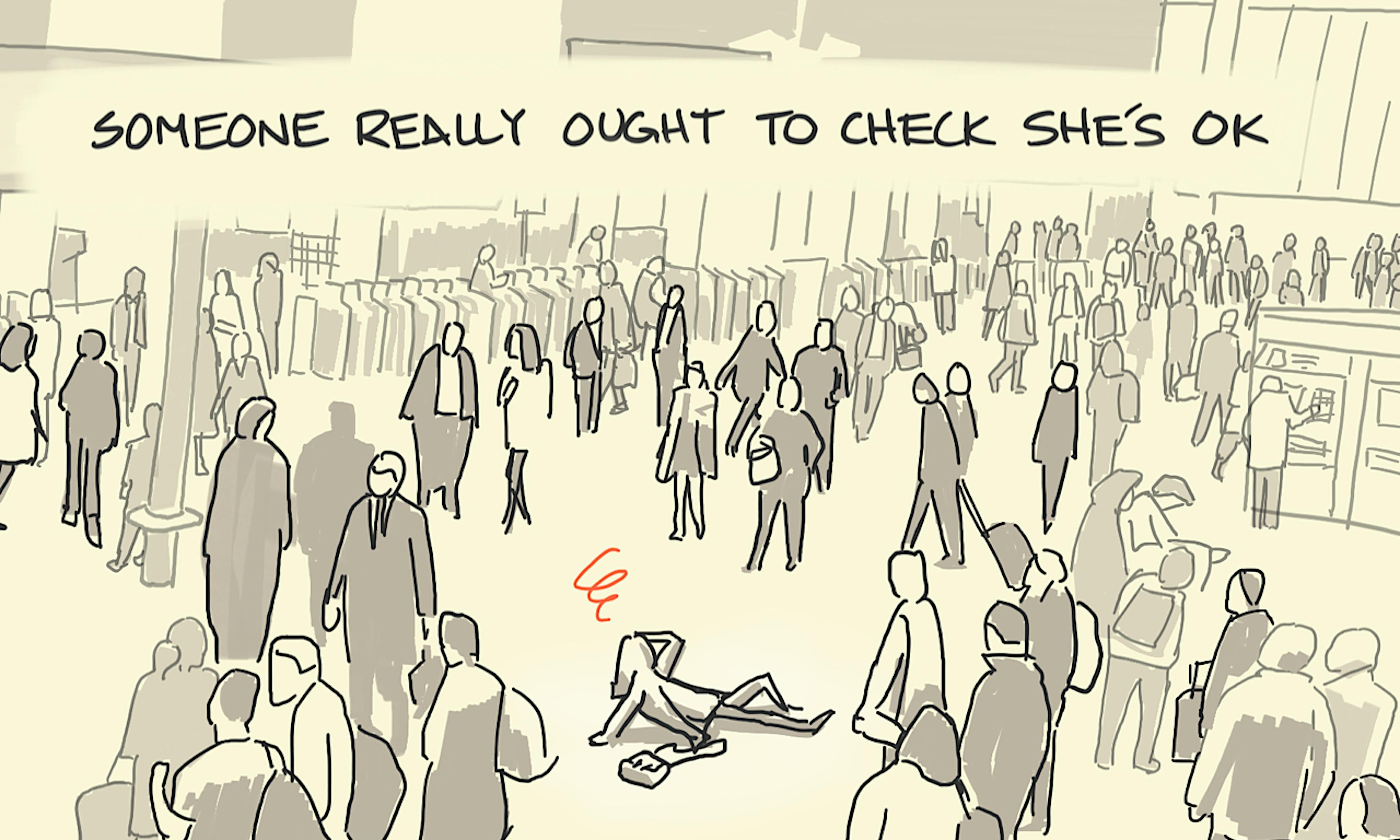 The Bystander Effect
The Bystander Effect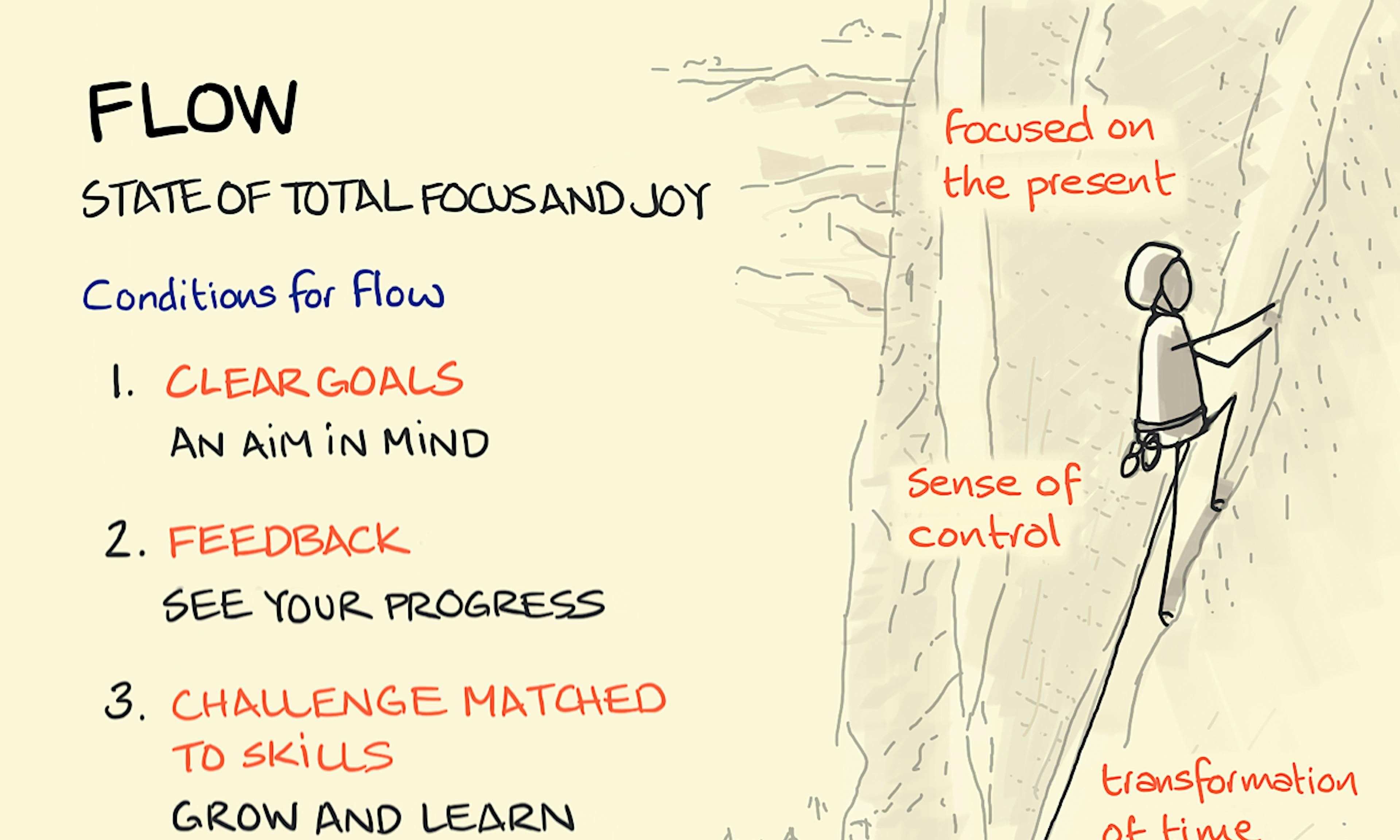 Flow
Flow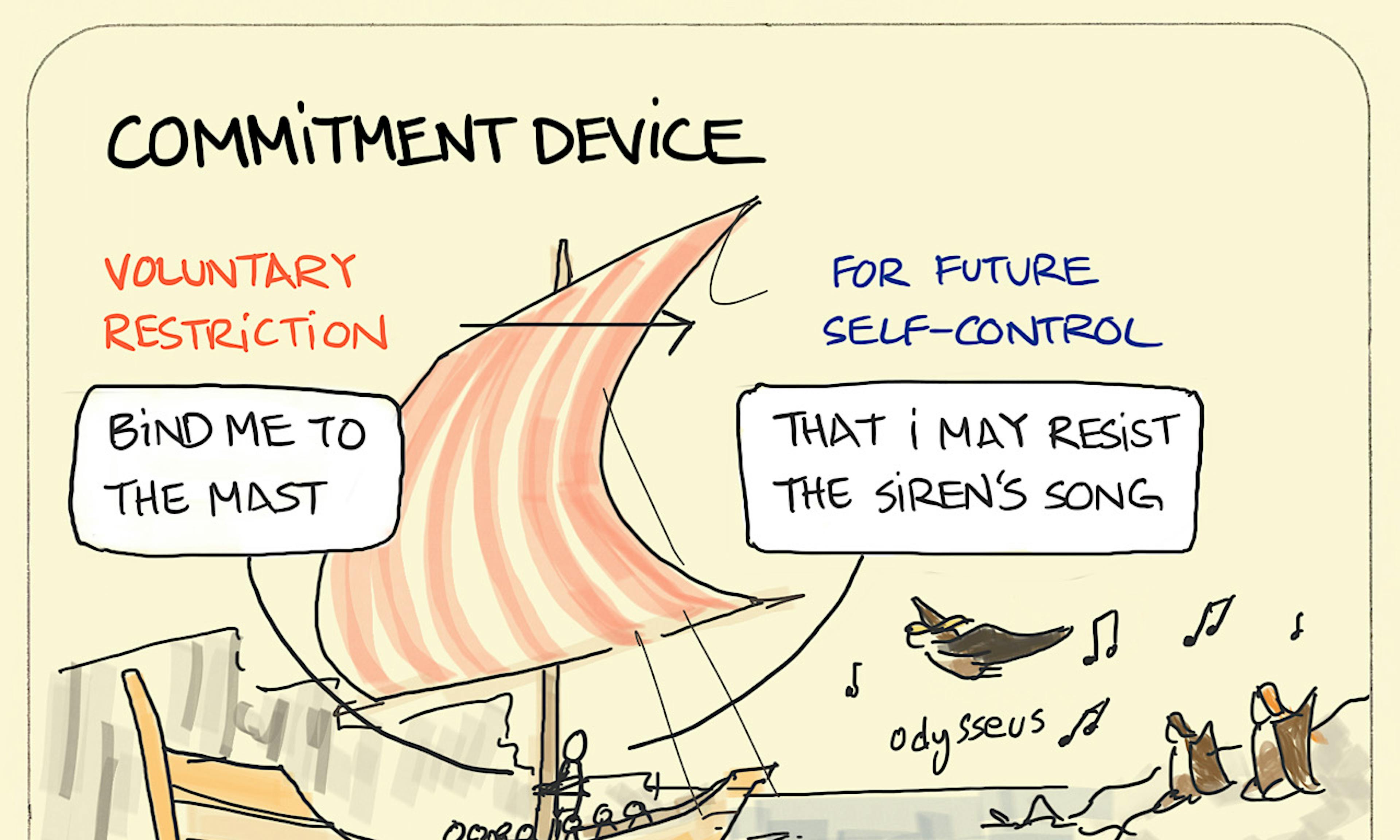 Commitment device
Commitment device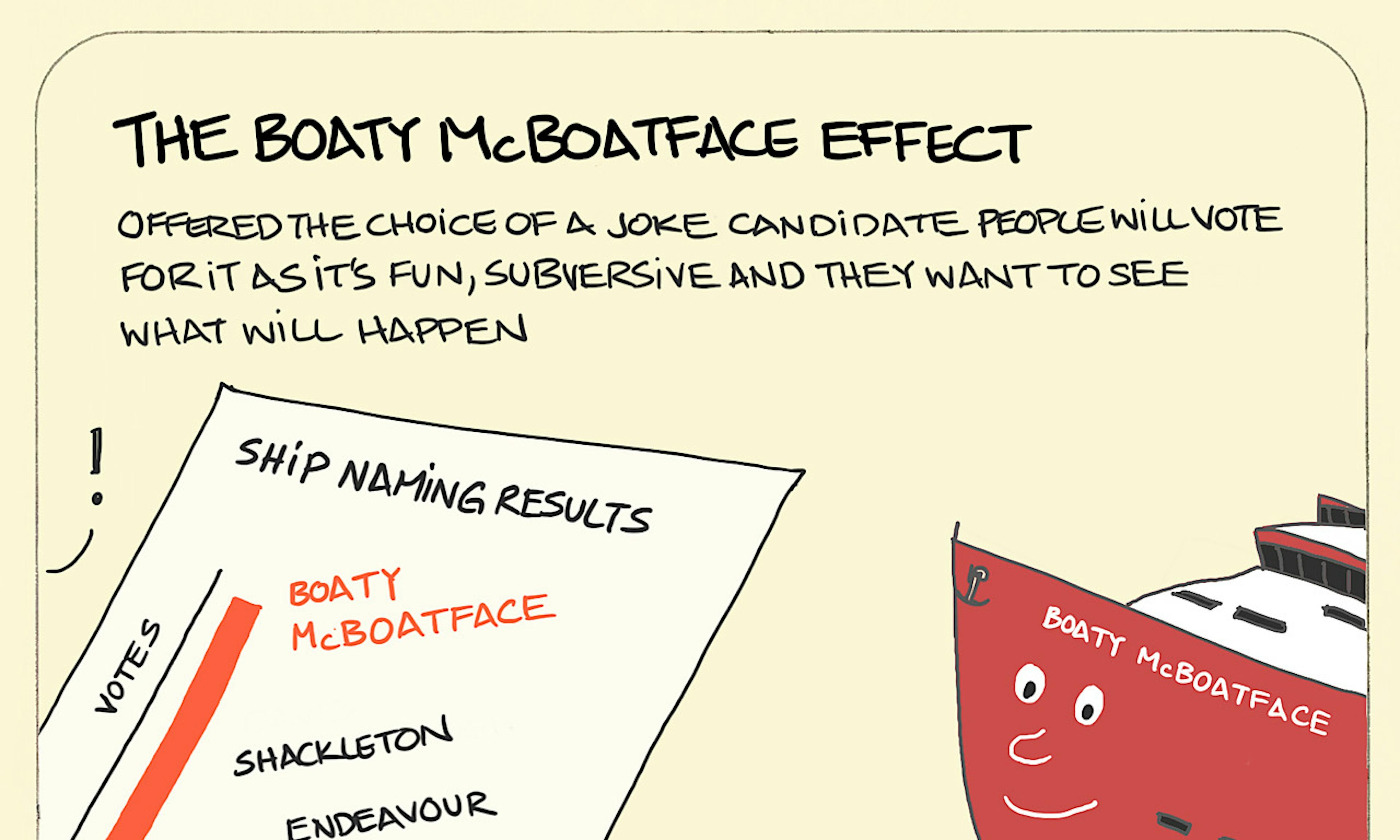 The Boaty McBoatface effect
The Boaty McBoatface effect The overview effect
The overview effect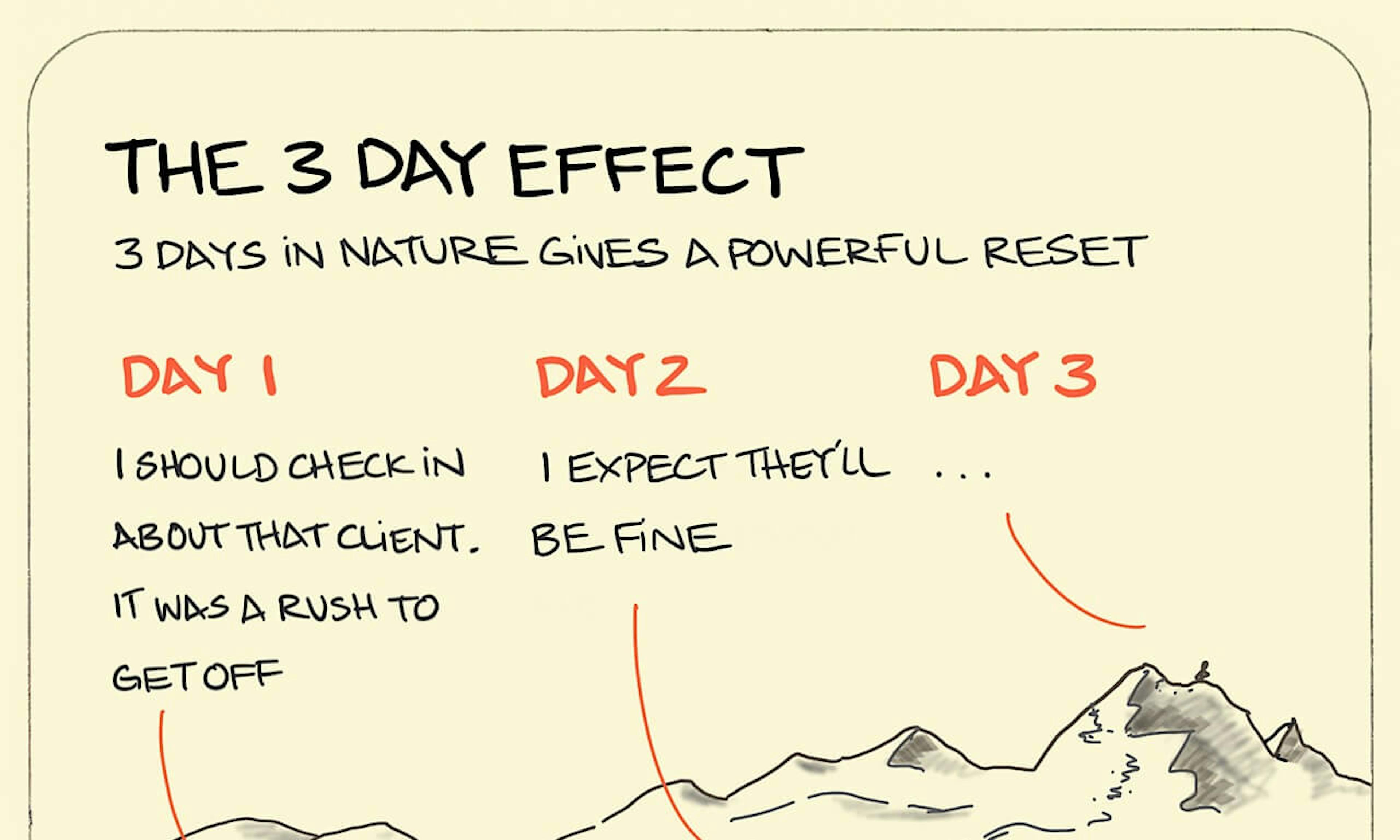 The 3-day effect
The 3-day effect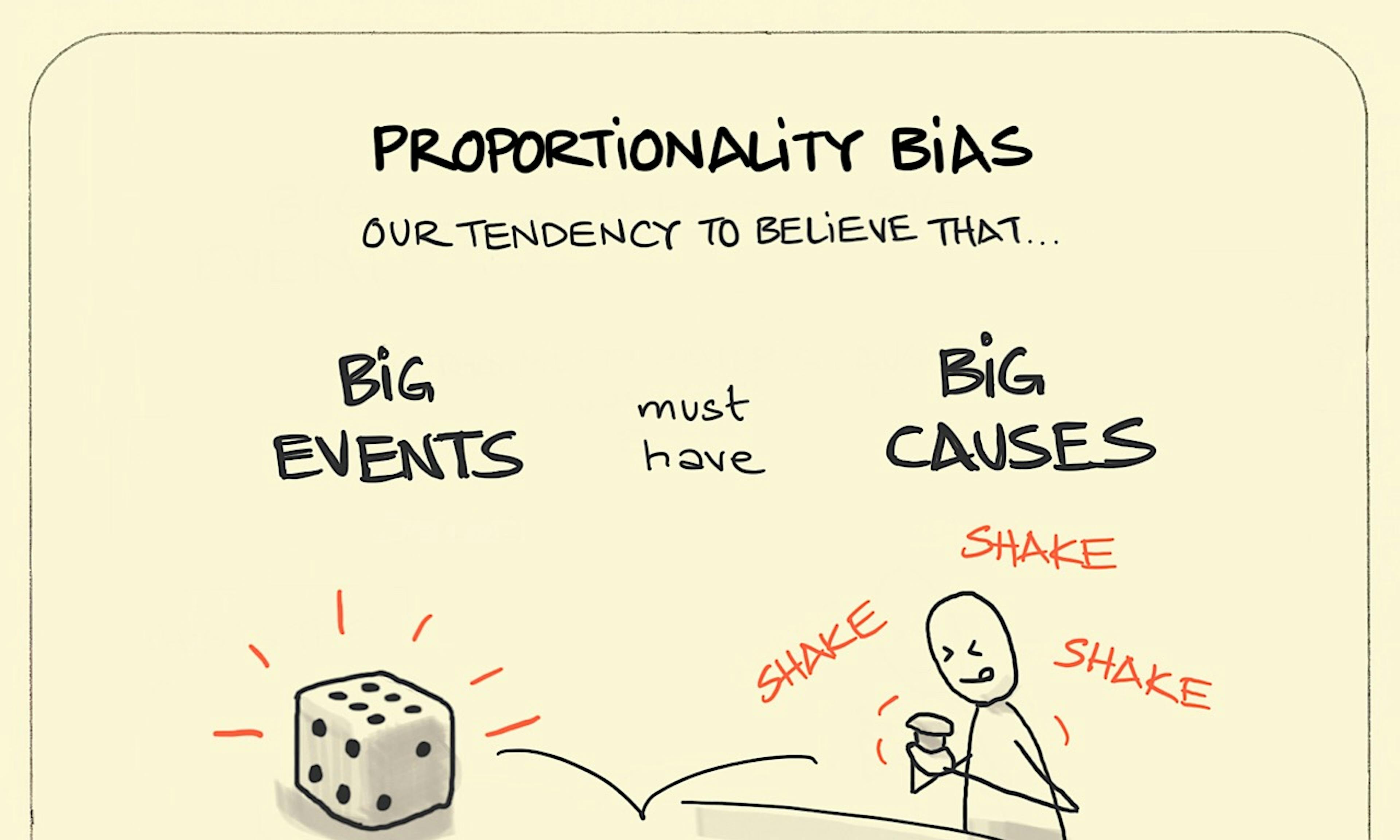 Proportionality bias
Proportionality bias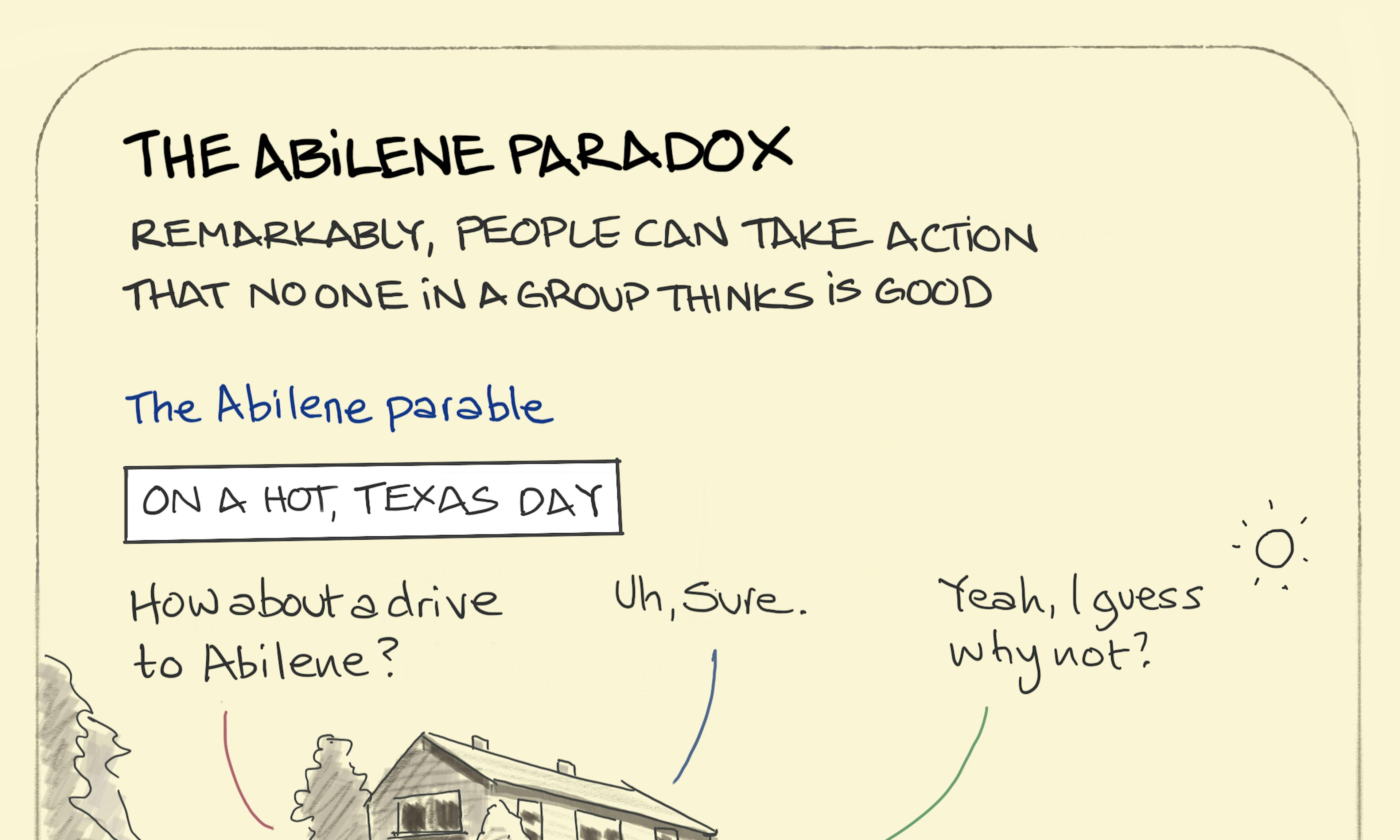 The Abilene paradox
The Abilene paradox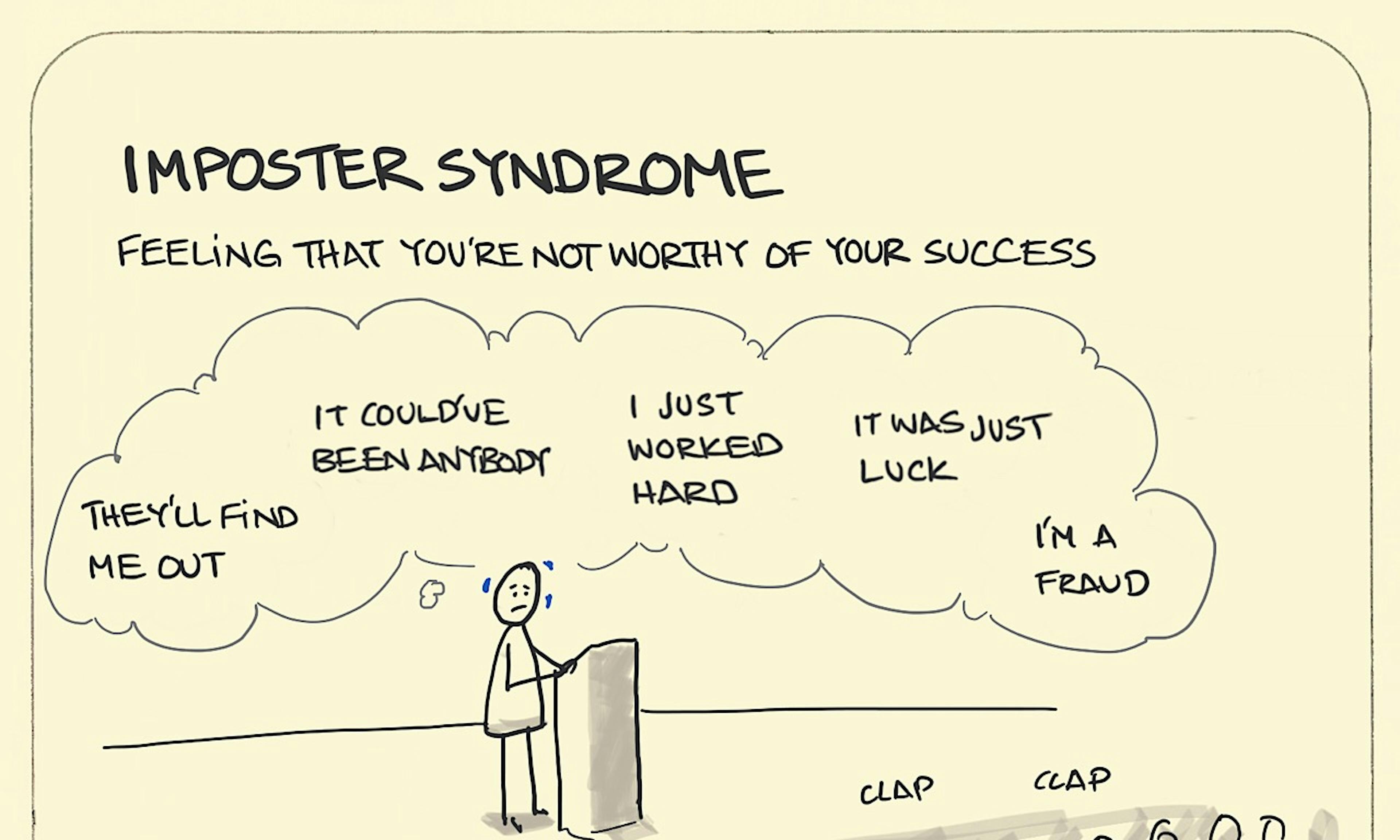 Imposter syndrome
Imposter syndrome The trust equation
The trust equation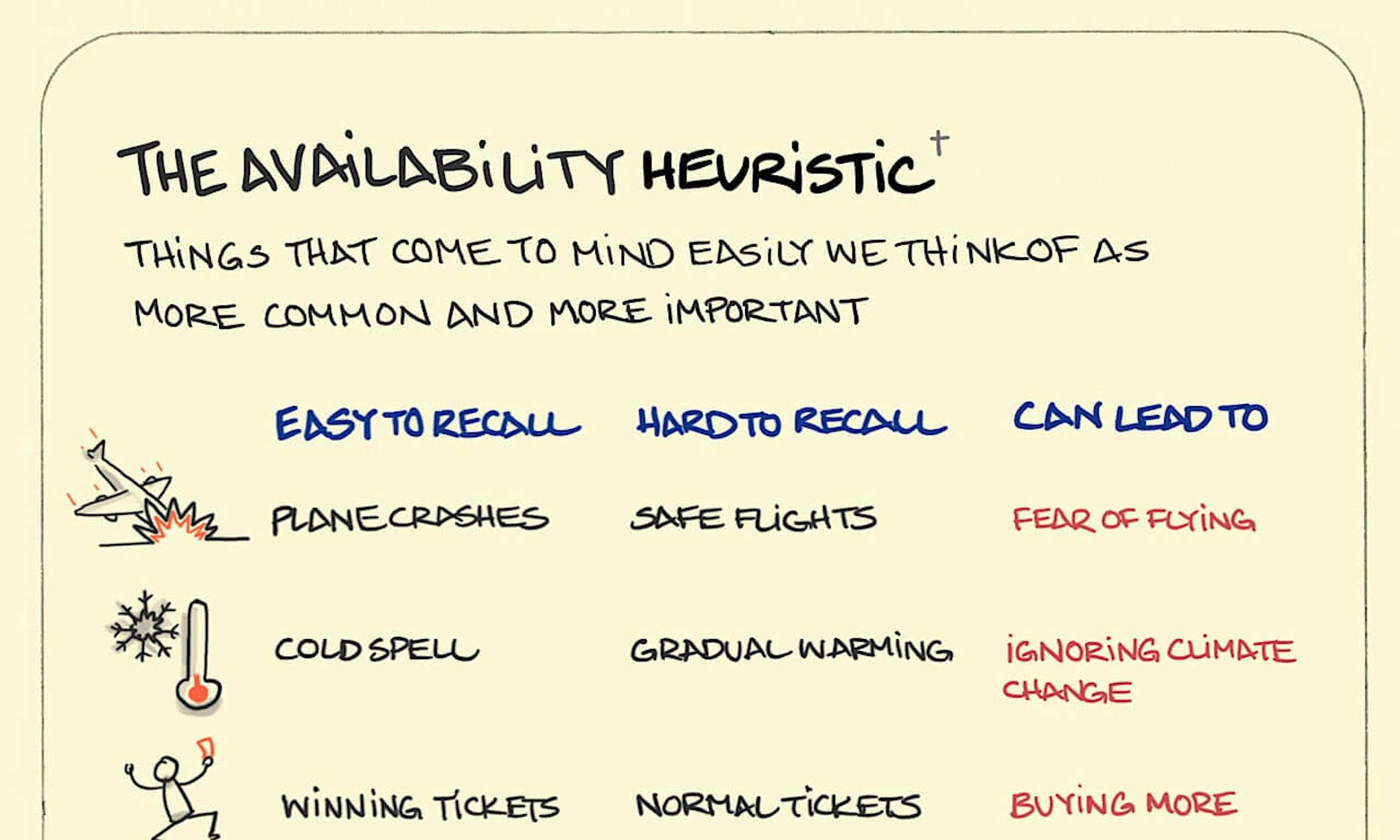 The availability heuristic (and bias)
The availability heuristic (and bias)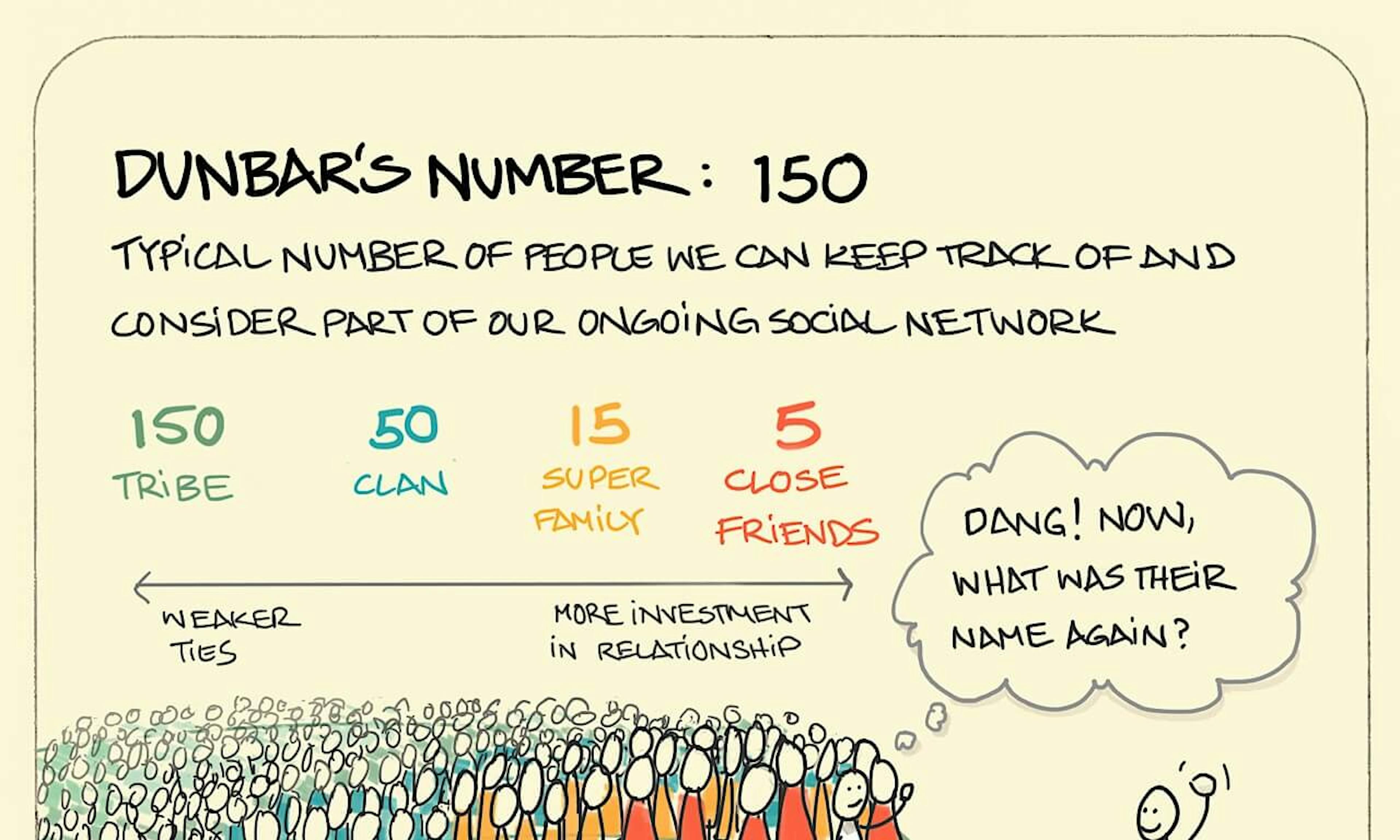 Dunbar’s number: 150
Dunbar’s number: 150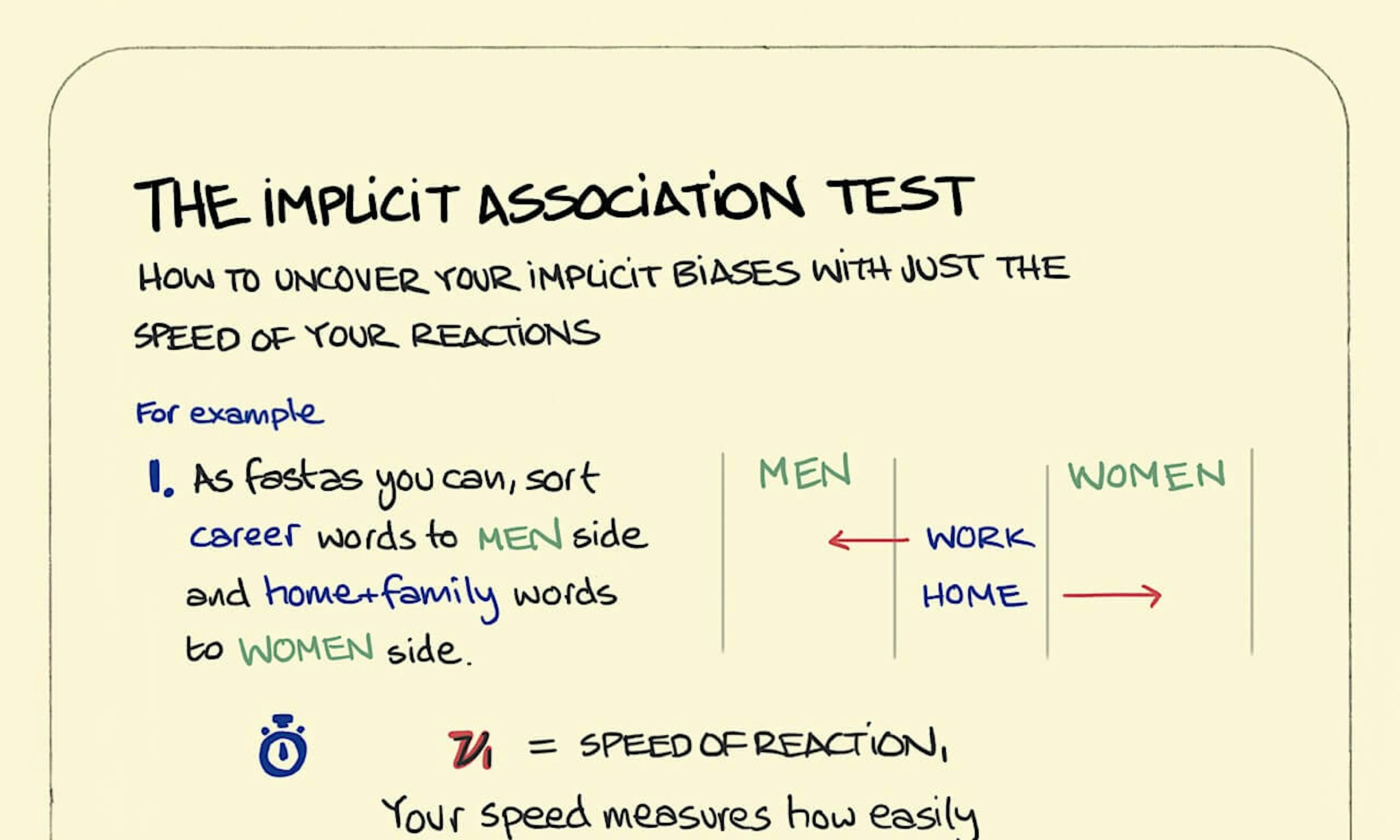 The Implicit Association Test
The Implicit Association Test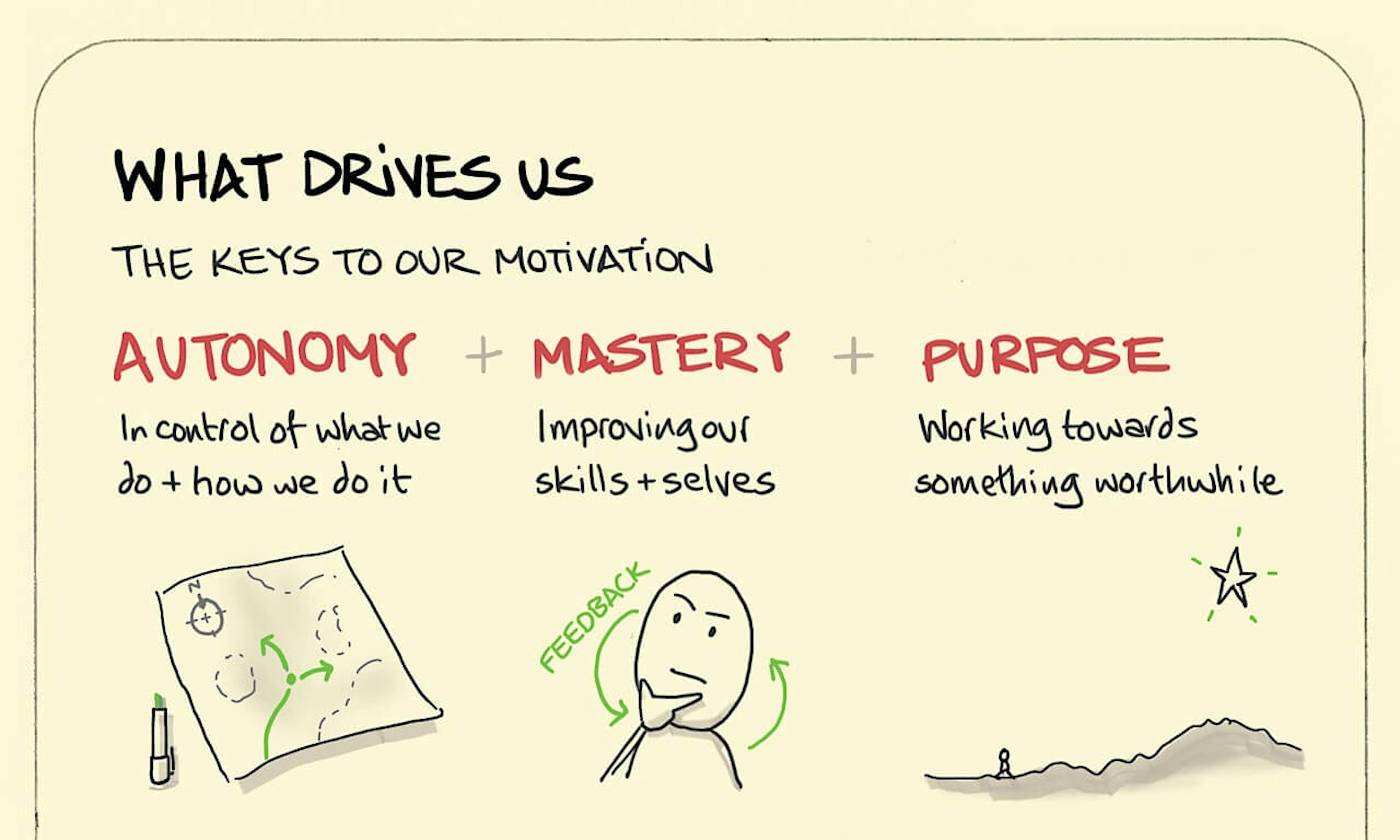 What drives us: autonomy, mastery, purpose
What drives us: autonomy, mastery, purpose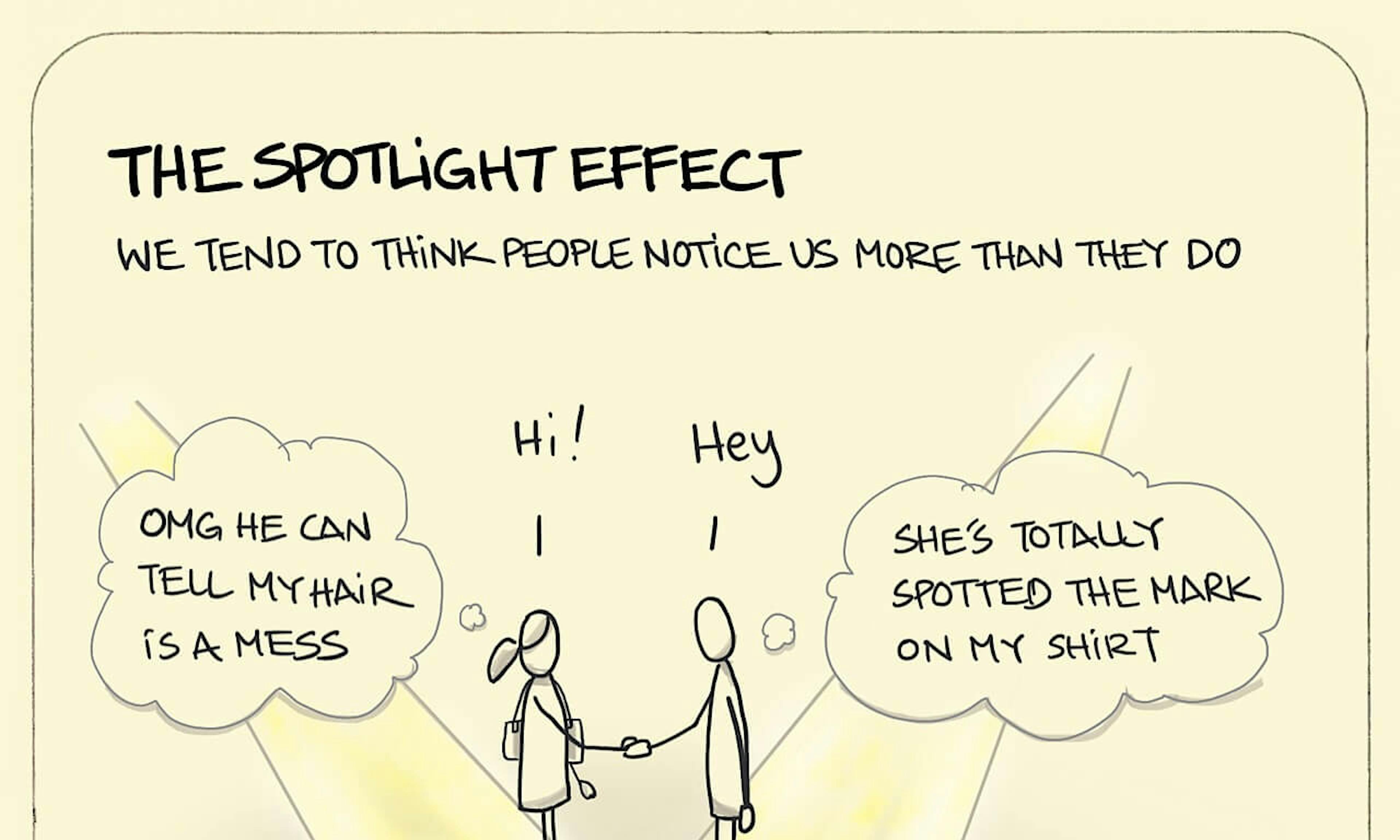 The spotlight effect
The spotlight effect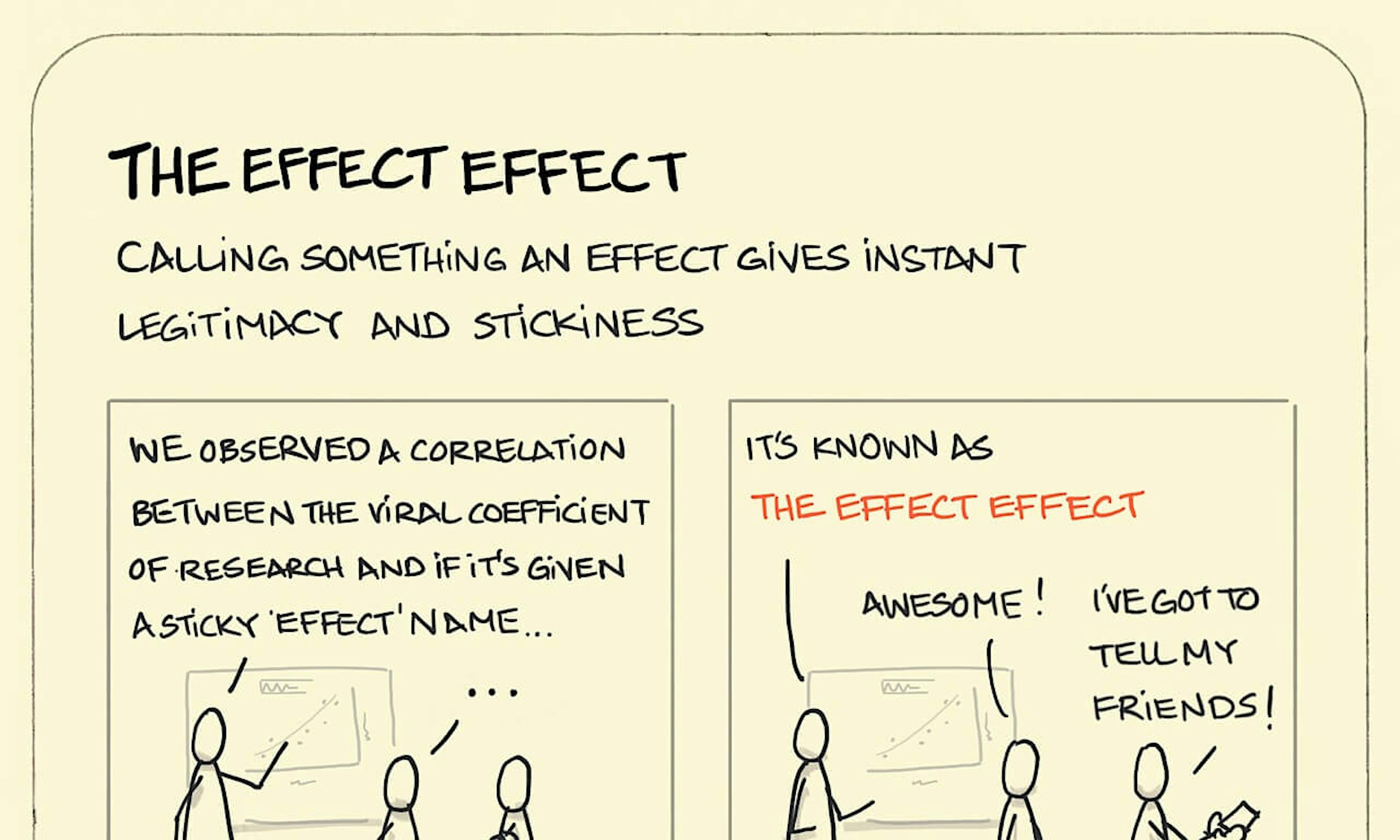 The Effect Effect
The Effect Effect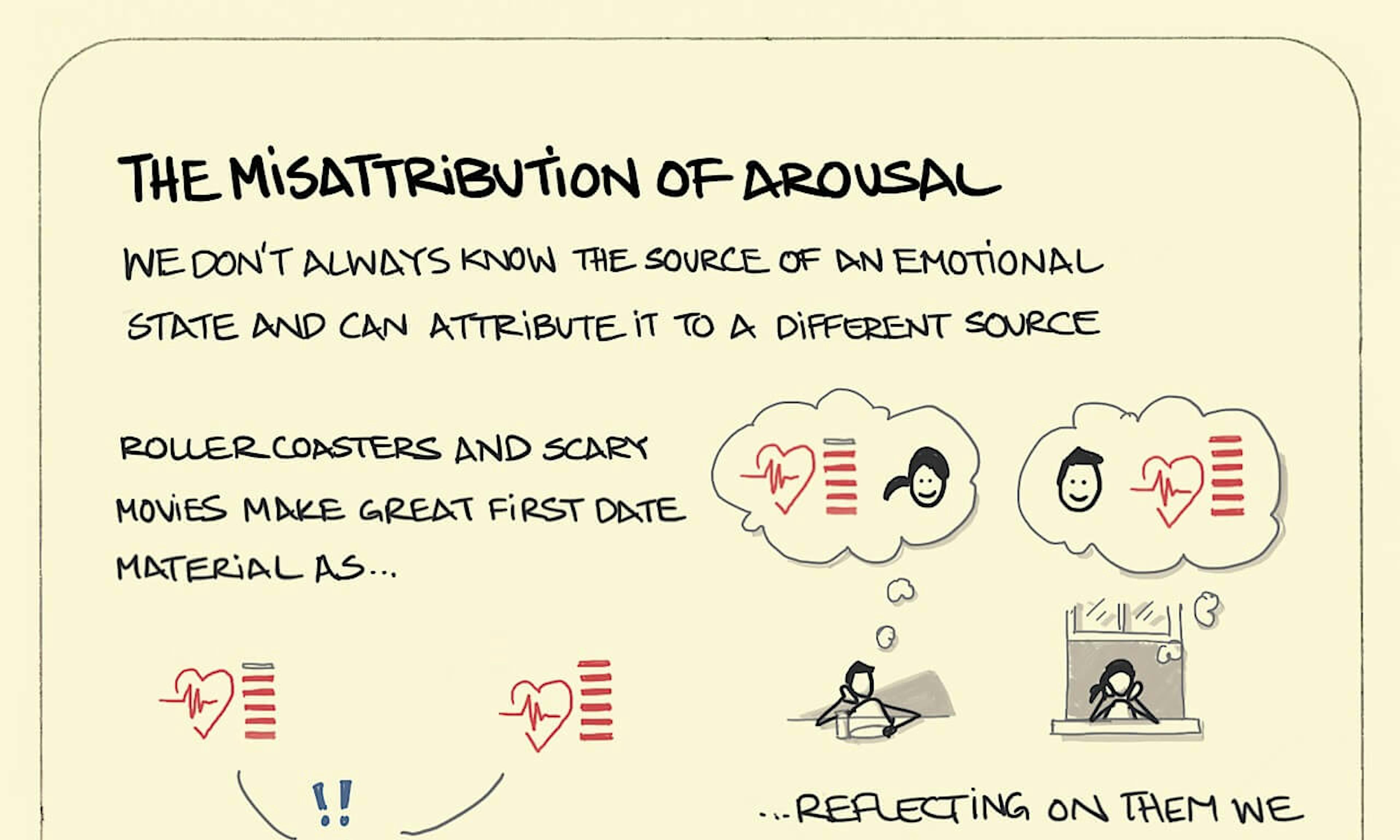 The misattribution of arousal
The misattribution of arousal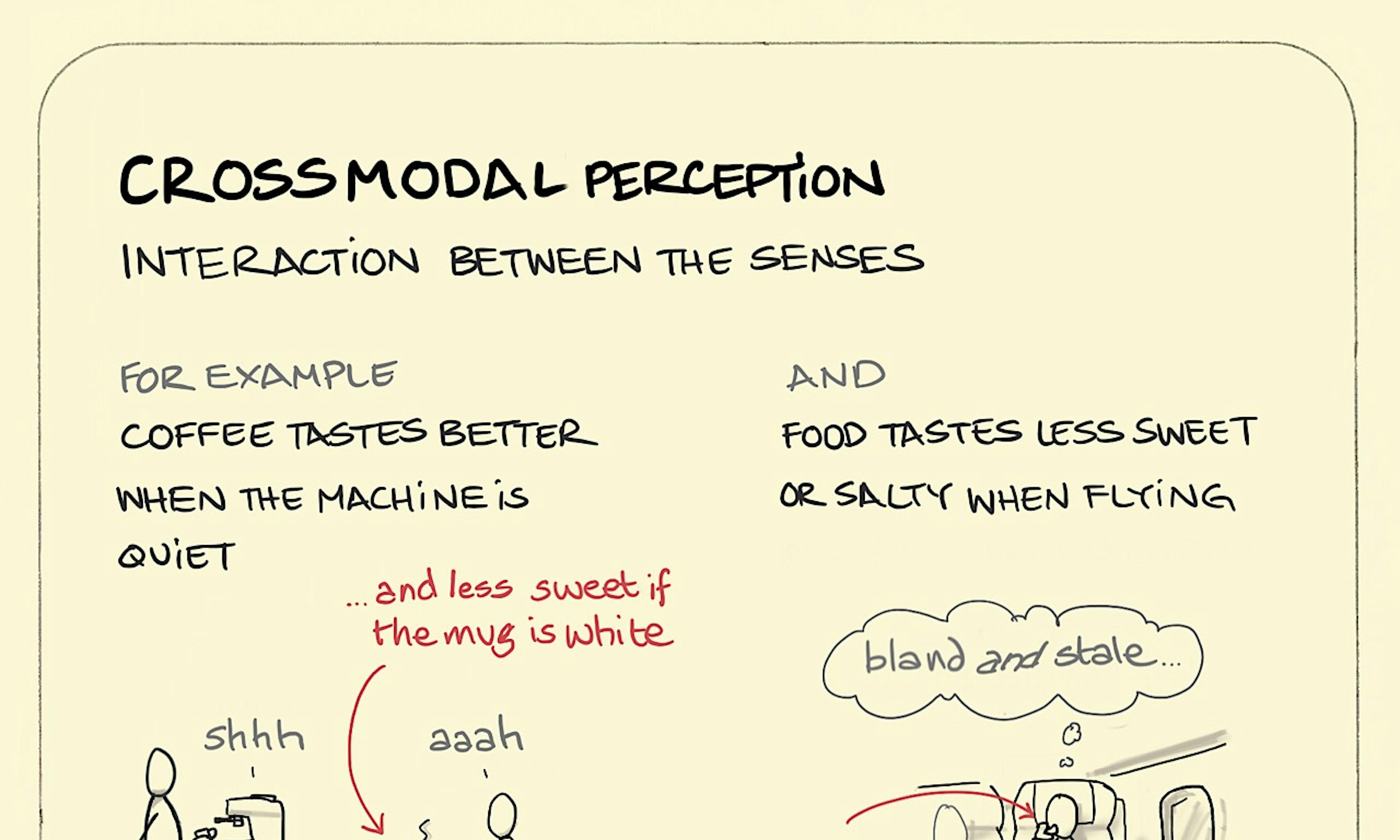 Crossmodal perception
Crossmodal perception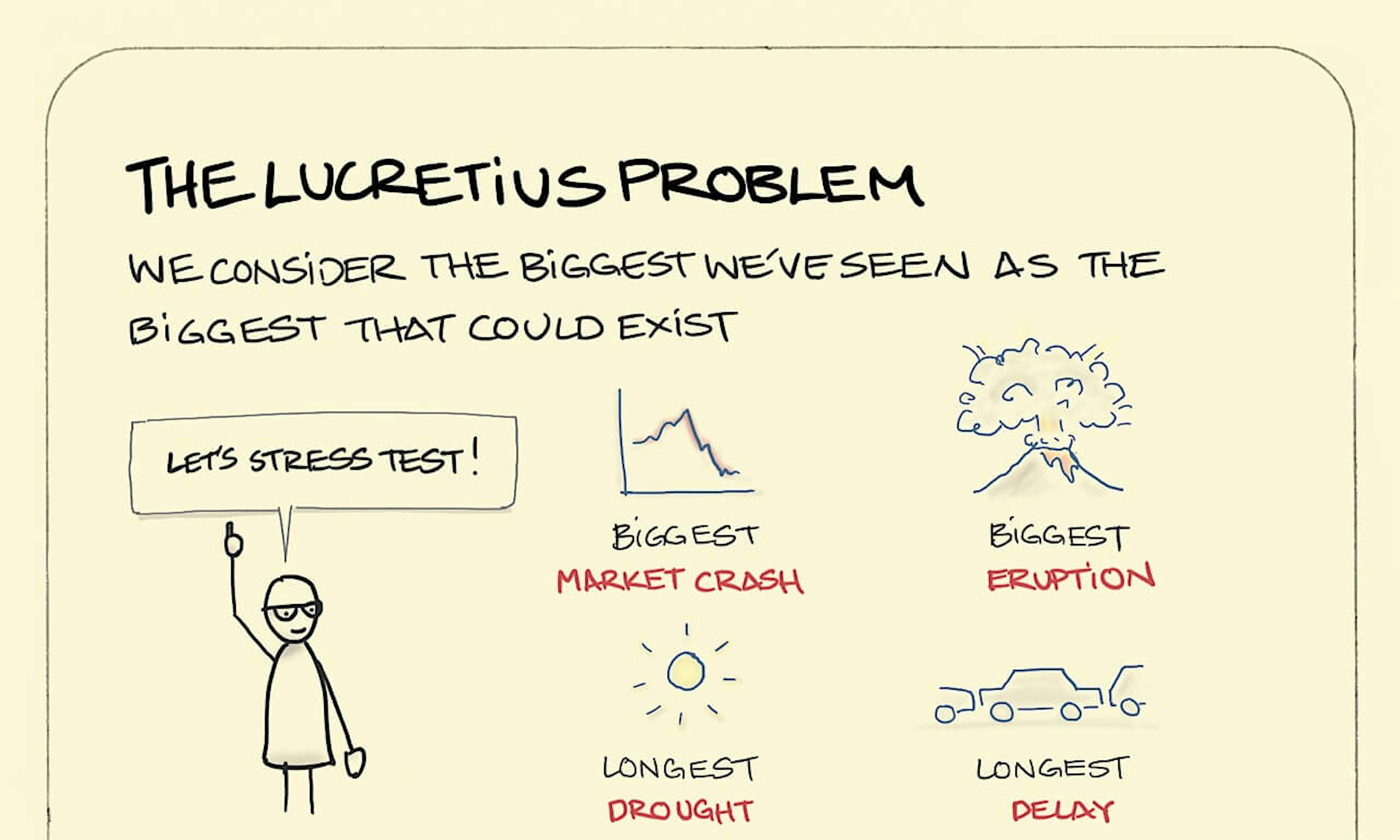 The Lucretius problem
The Lucretius problem Gaslighting
Gaslighting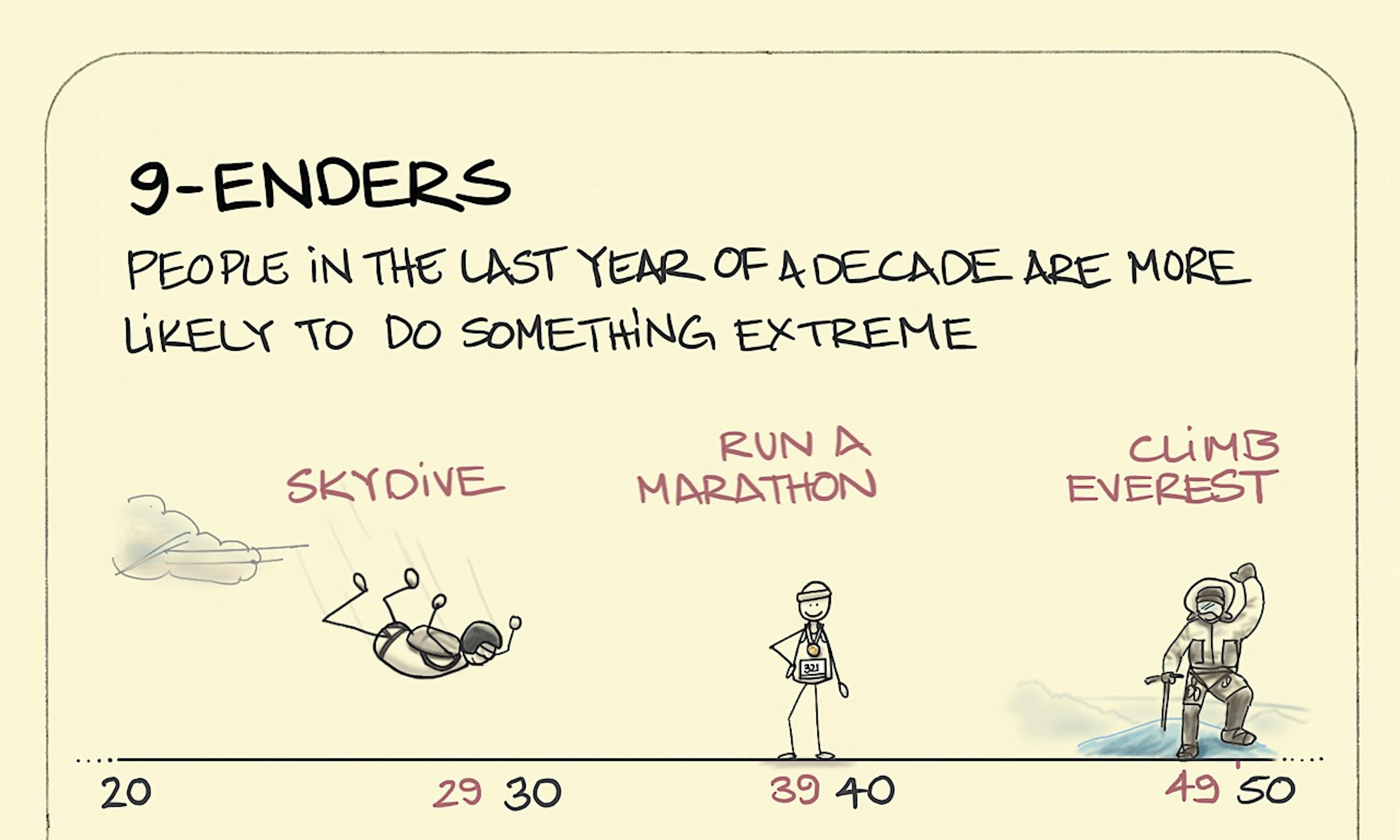 9-Enders (nine-enders)
9-Enders (nine-enders)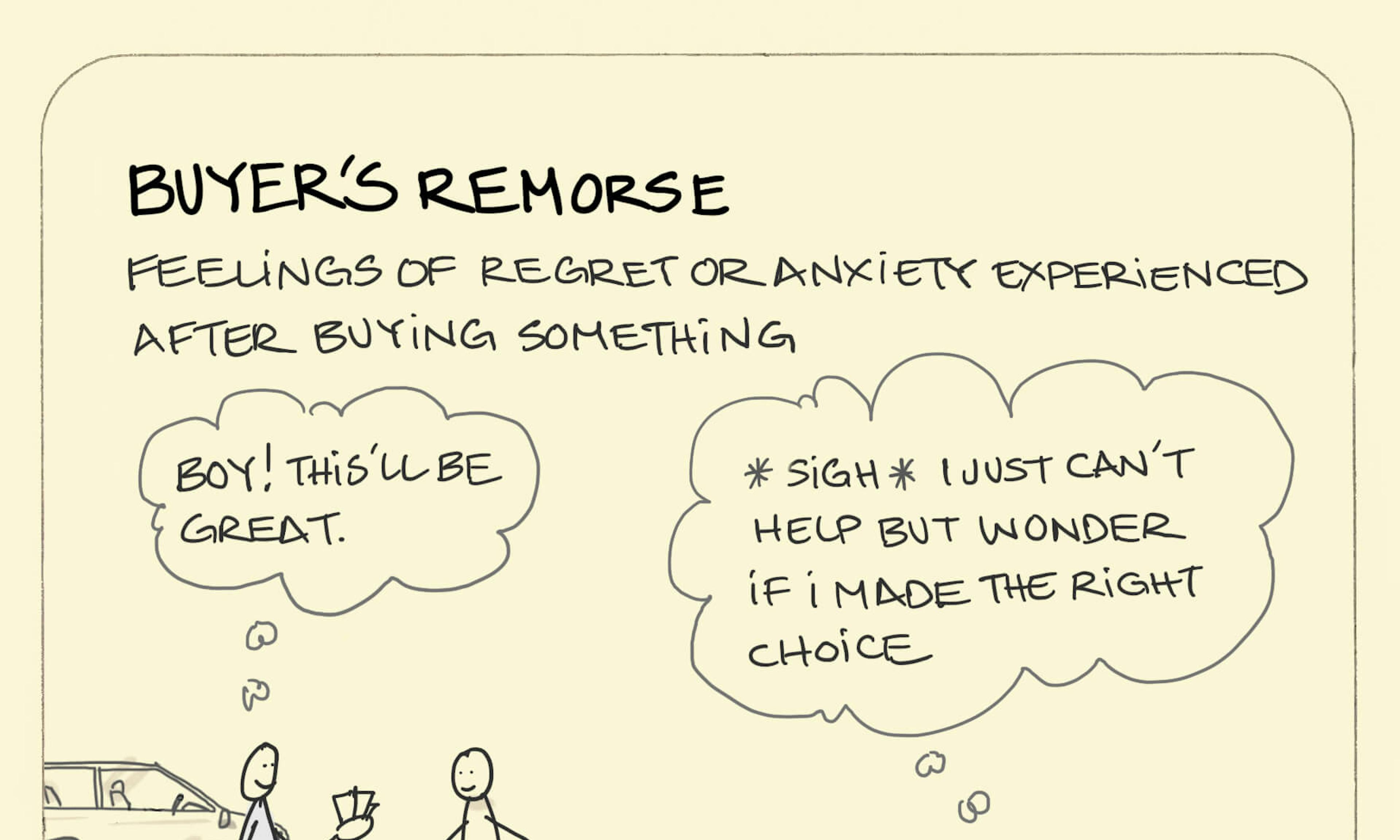 Buyer’s remorse
Buyer’s remorse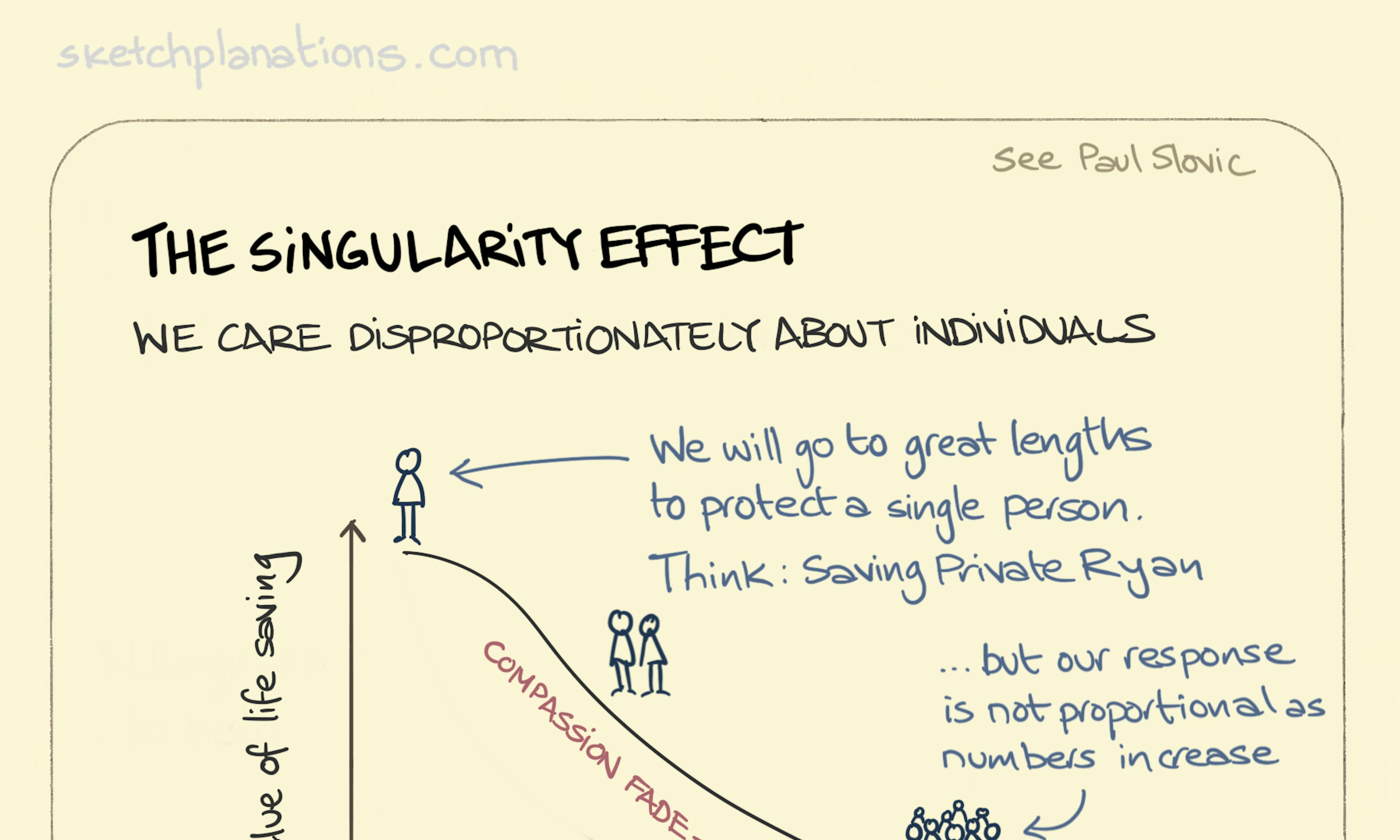 The singularity effect
The singularity effect Emotional hot potato
Emotional hot potato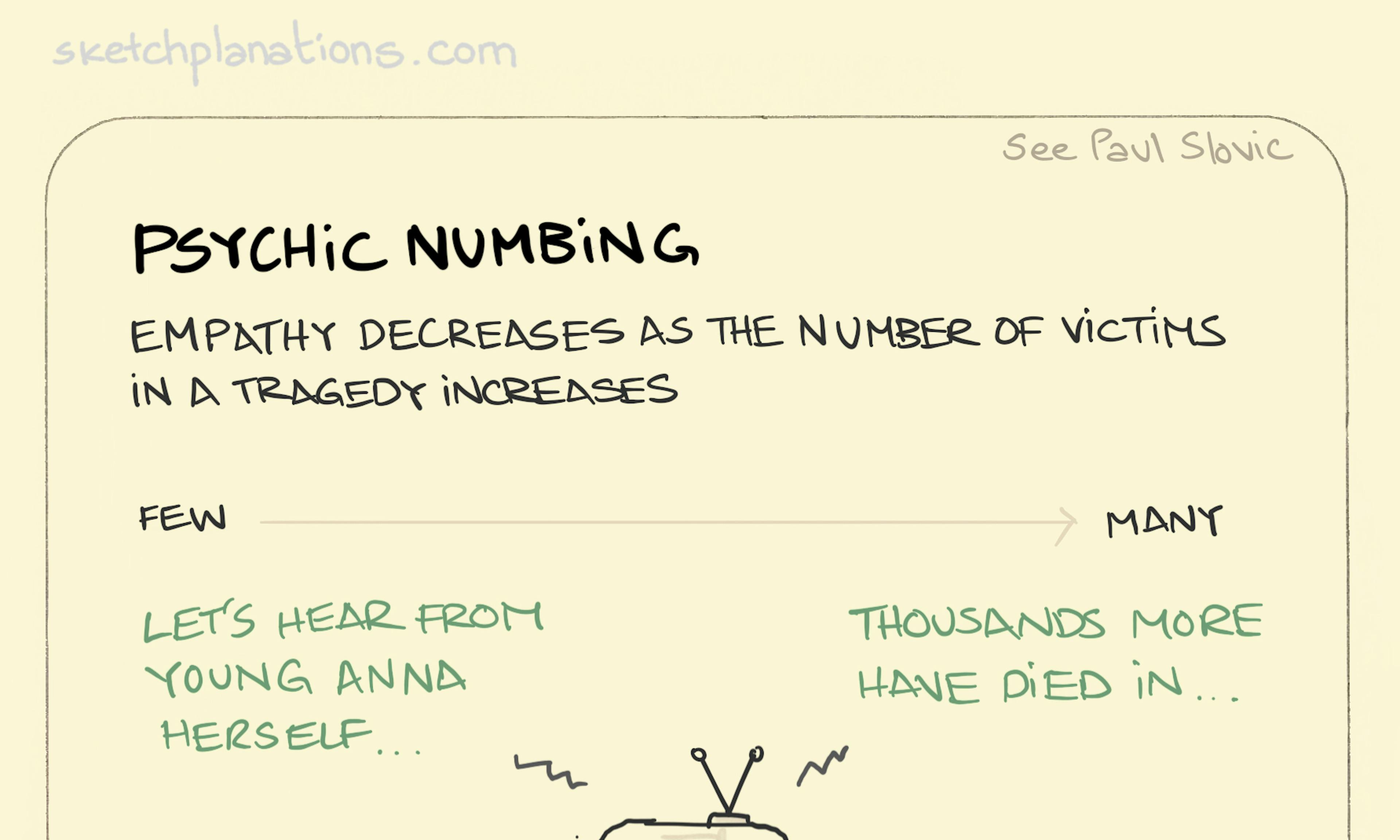 Psychic numbing
Psychic numbing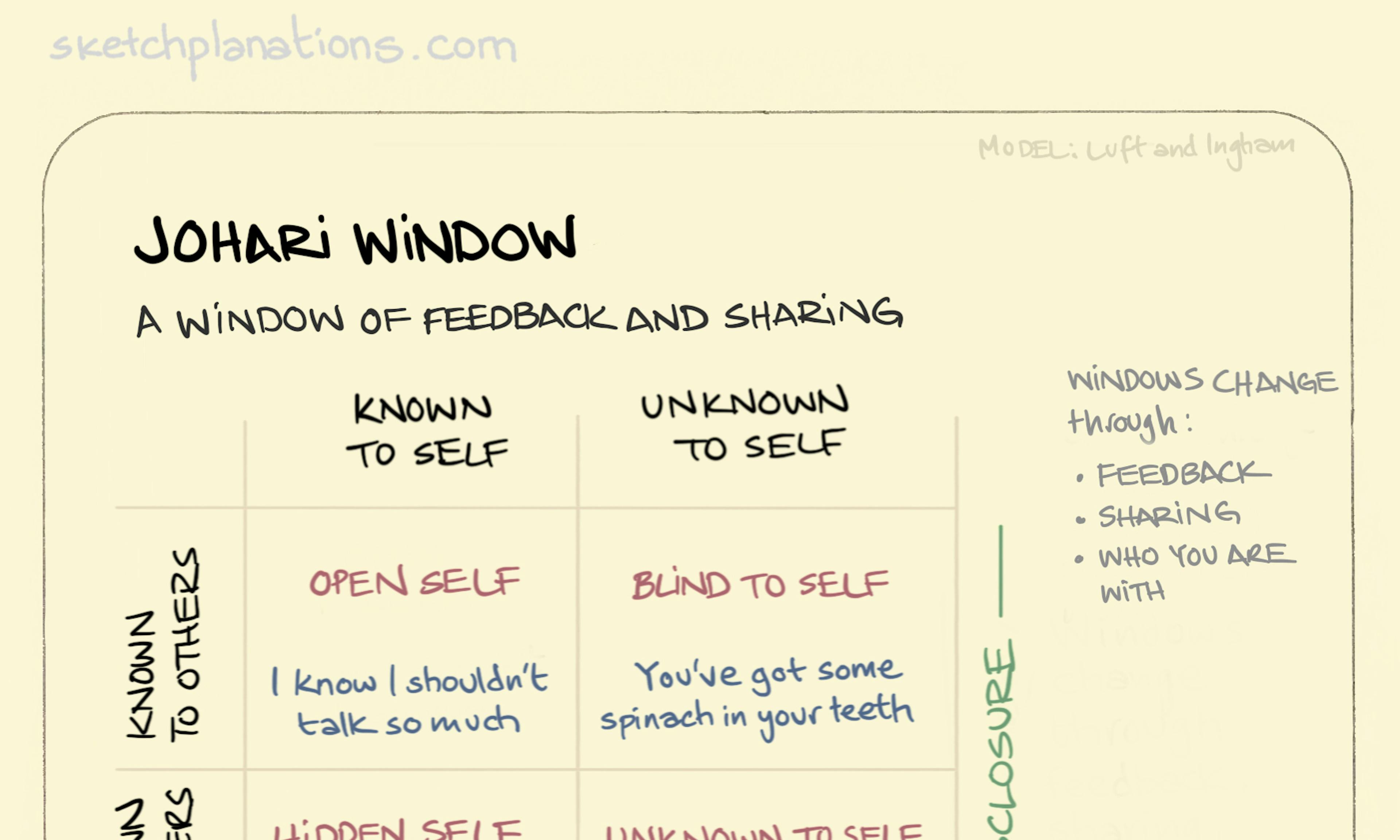 Johari window — a window of feedback and sharing
Johari window — a window of feedback and sharing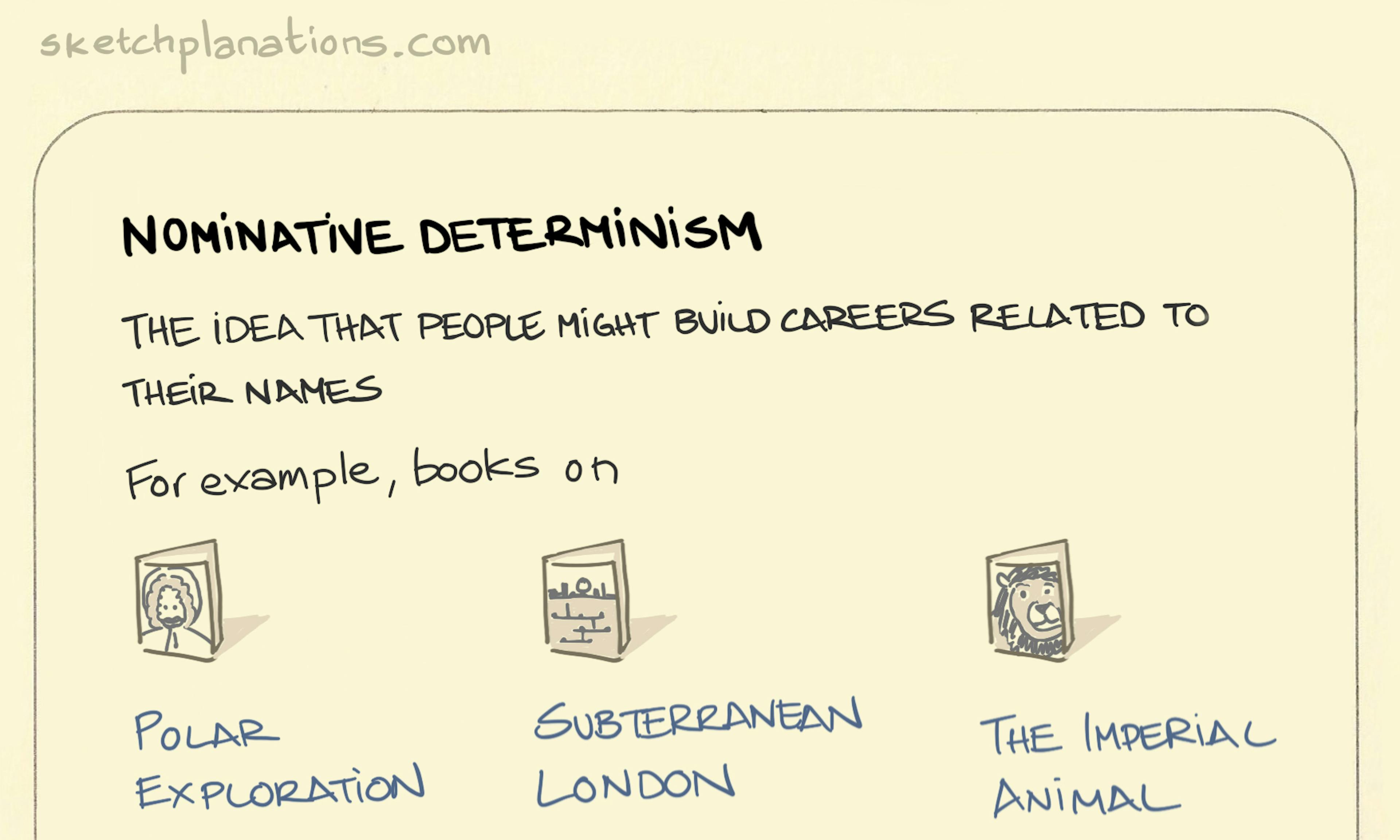 Nominative determinism
Nominative determinism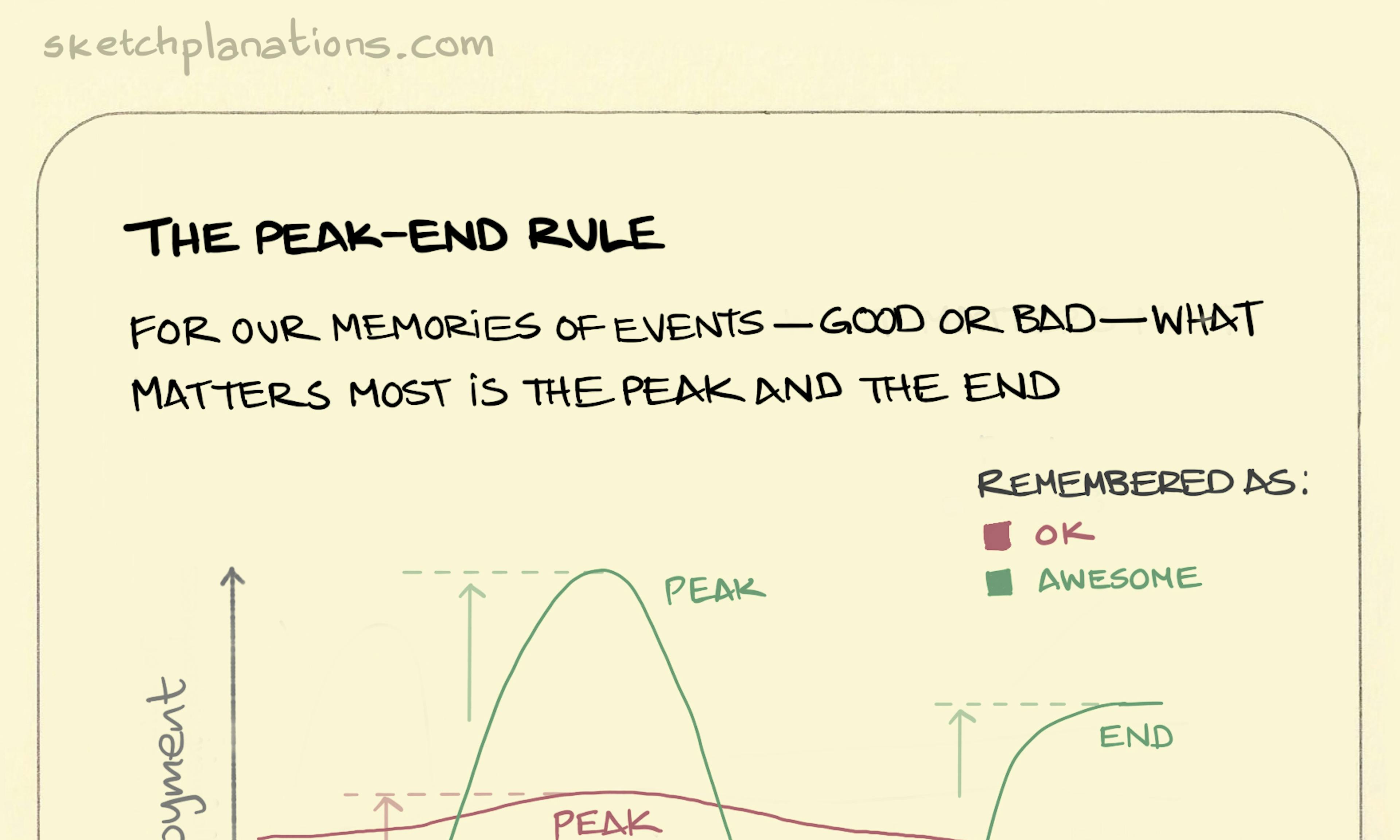 The peak-end rule
The peak-end rule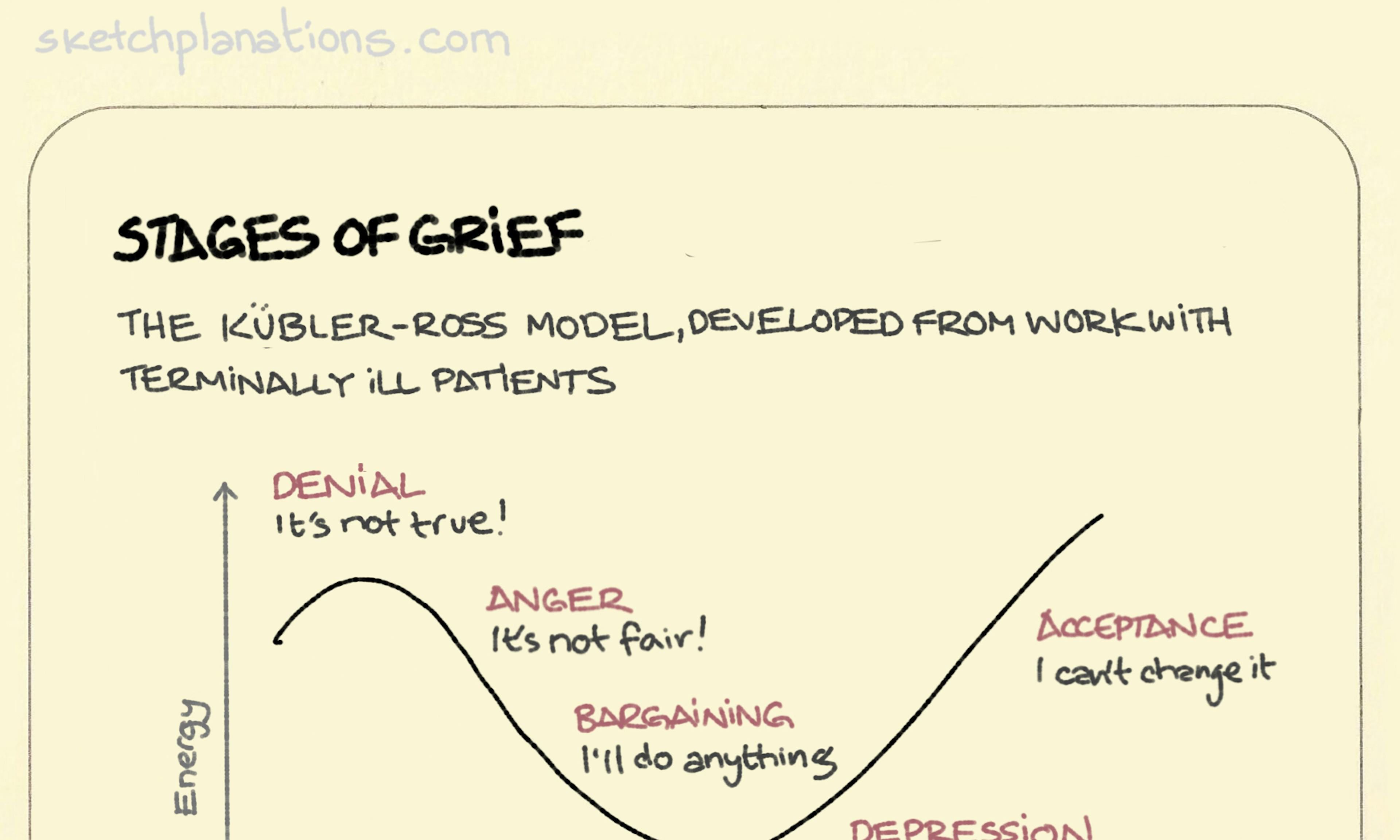 Stages of grief
Stages of grief The prisoner’s dilemma
The prisoner’s dilemma The nocebo effect
The nocebo effect The placebo effect
The placebo effect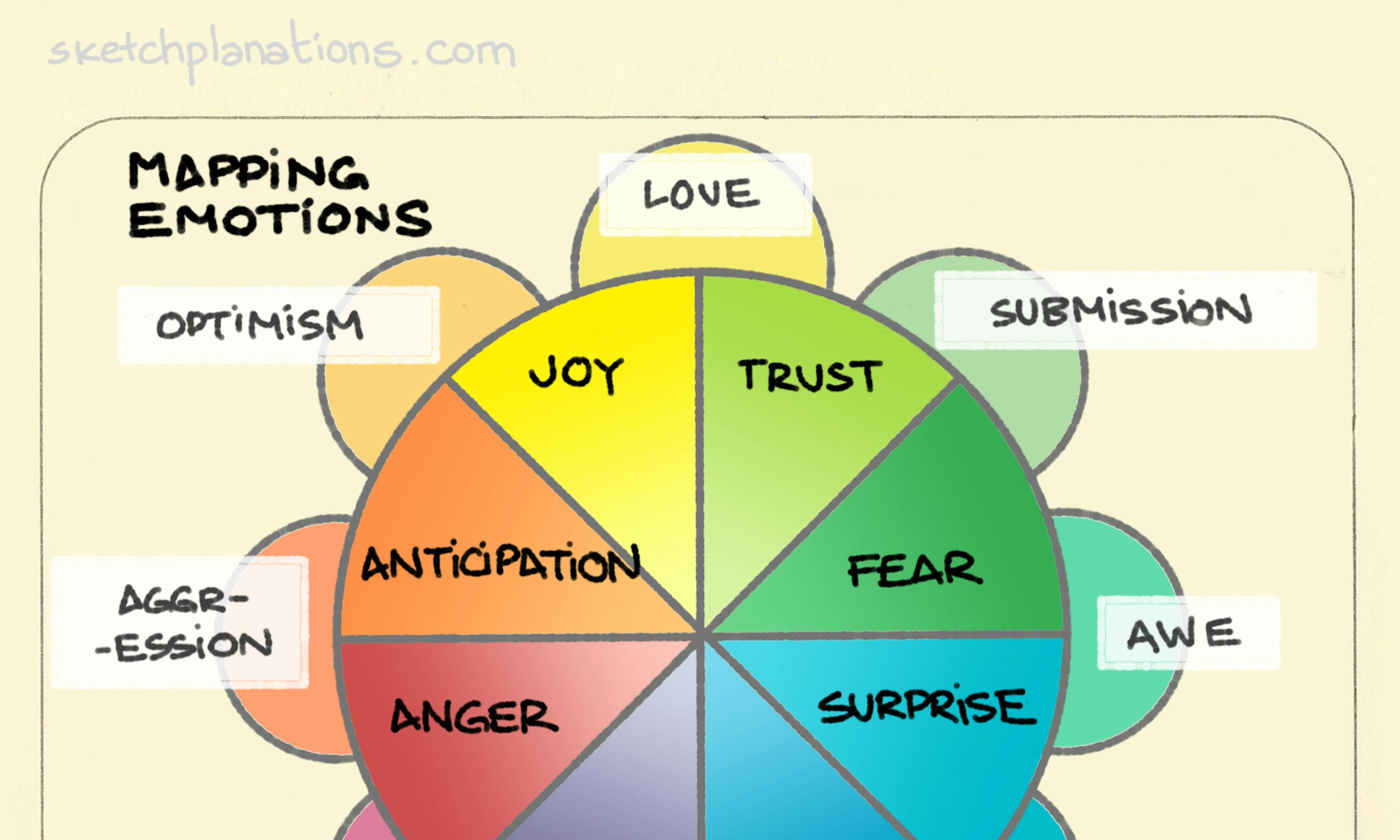 Mapping emotions
Mapping emotions The IKEA effect
The IKEA effect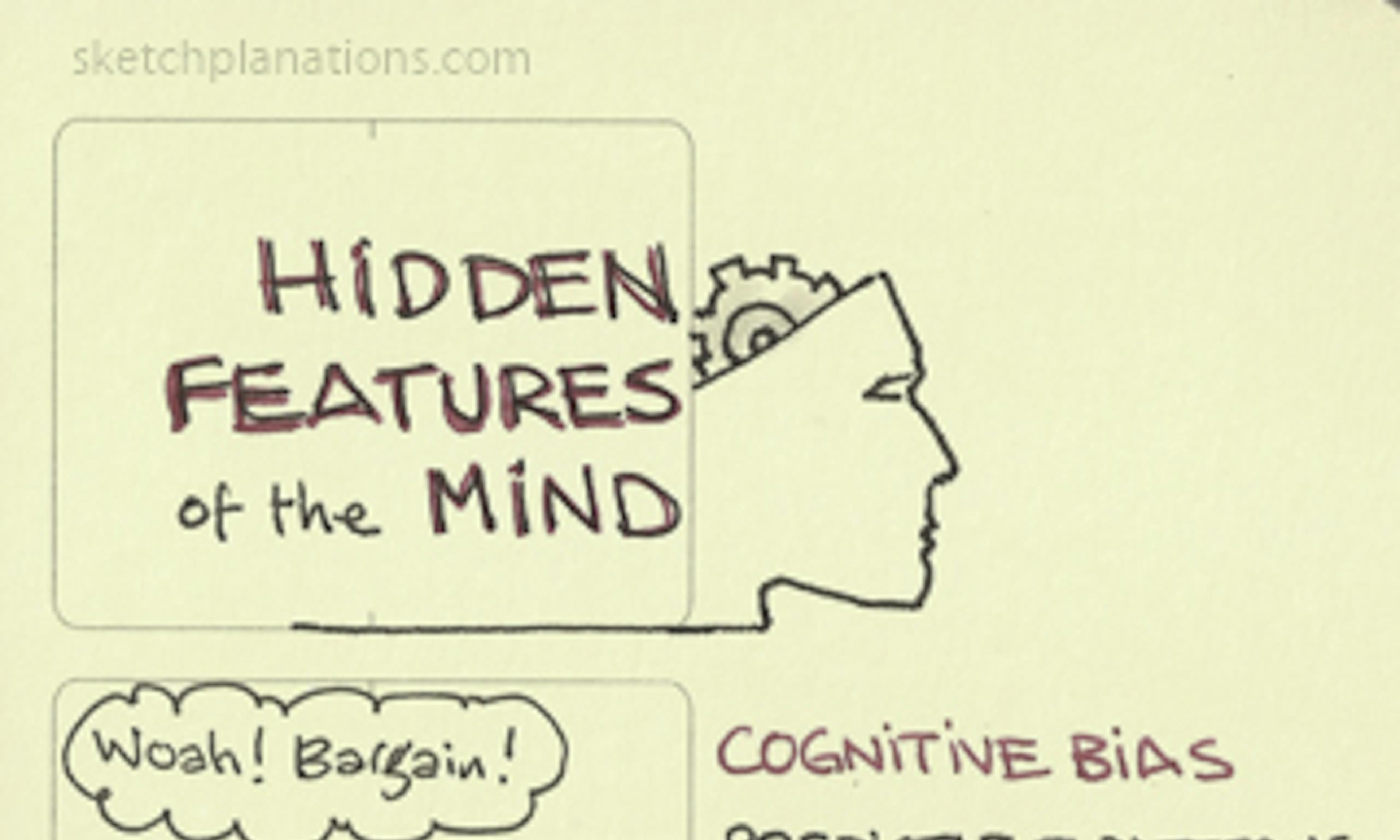 Cognitive bias, heuristic, logical fallacy: hidden features of the mind
Cognitive bias, heuristic, logical fallacy: hidden features of the mind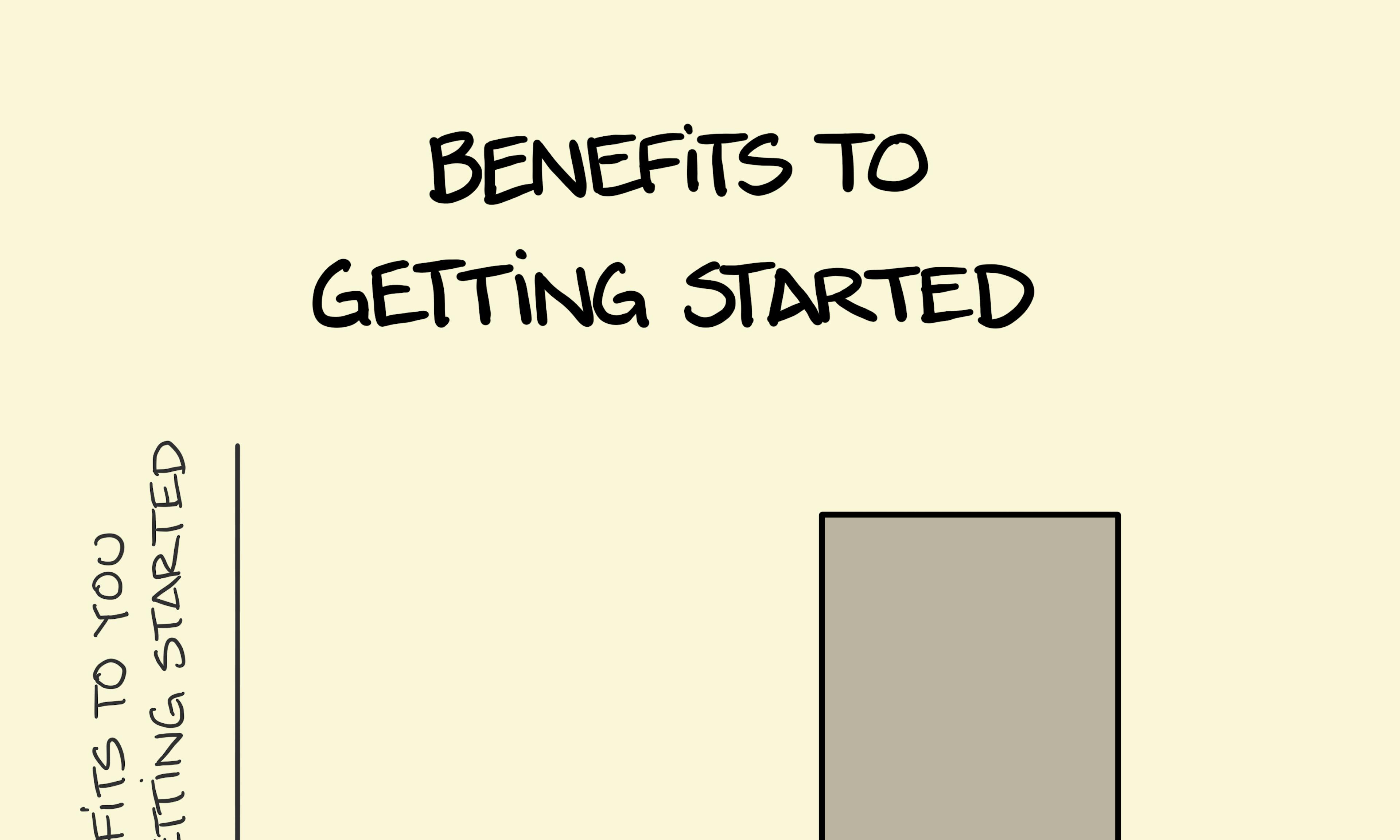 Benefits to you from getting started
Benefits to you from getting started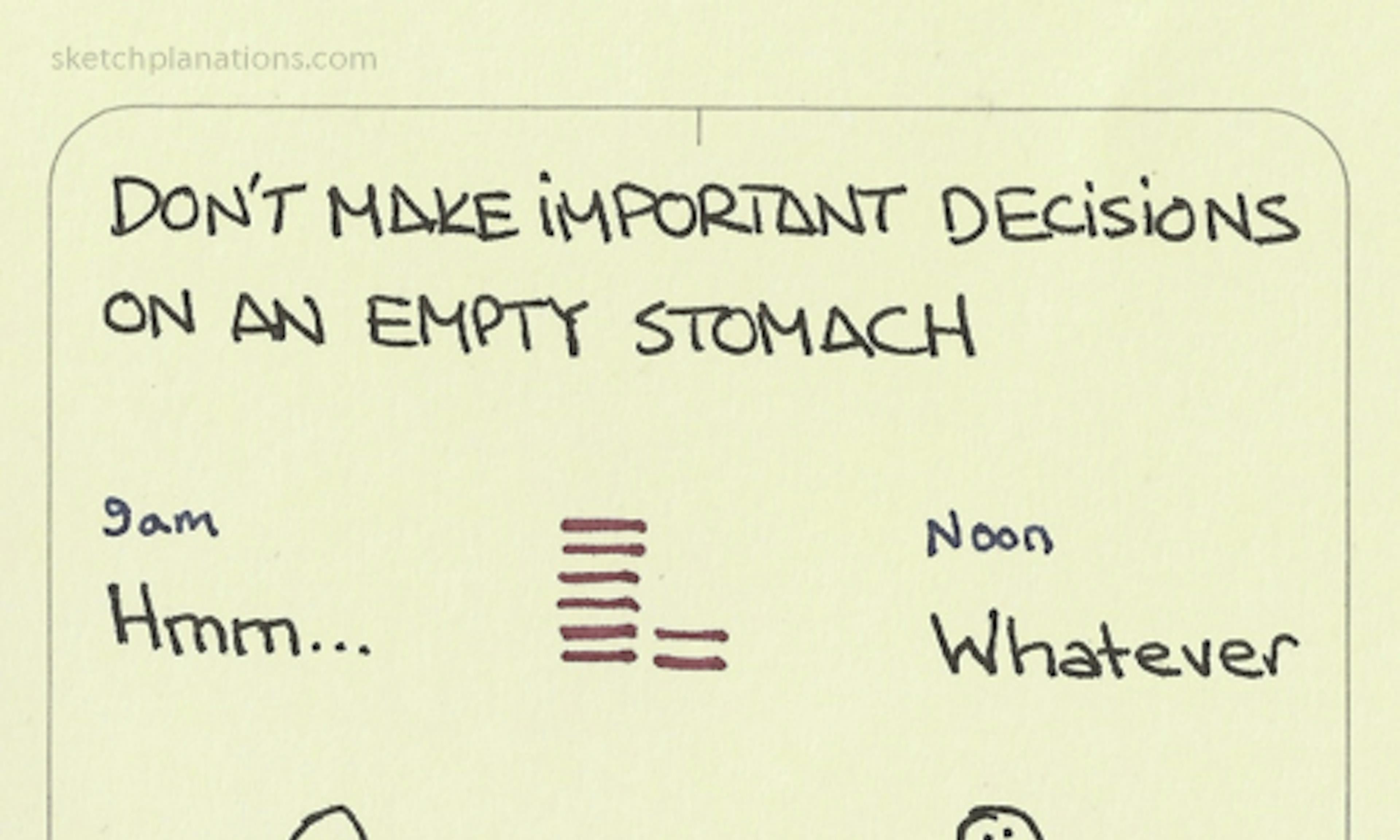 Don’t make important decisions on an empty stomach
Don’t make important decisions on an empty stomach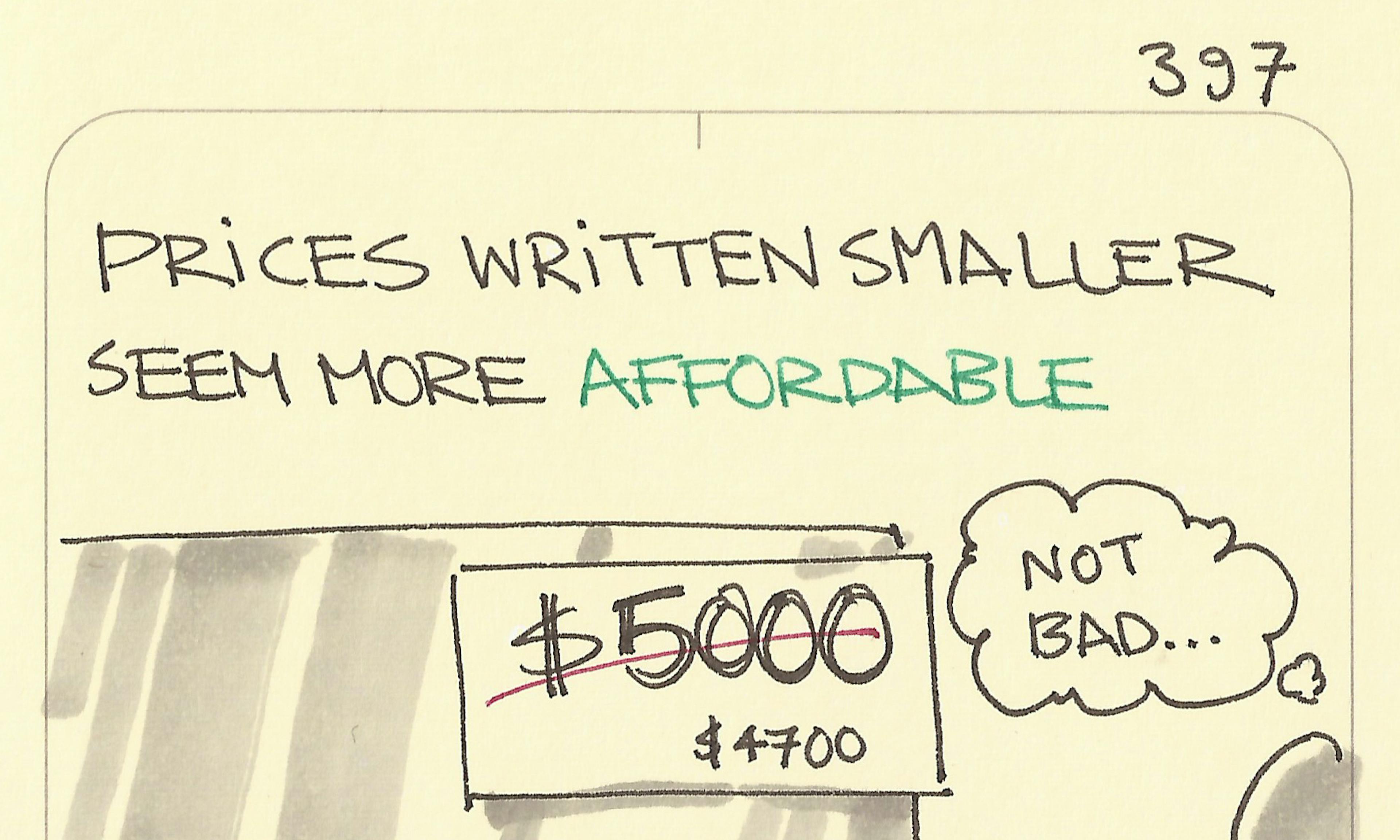 Prices written smaller seem more affordable
Prices written smaller seem more affordable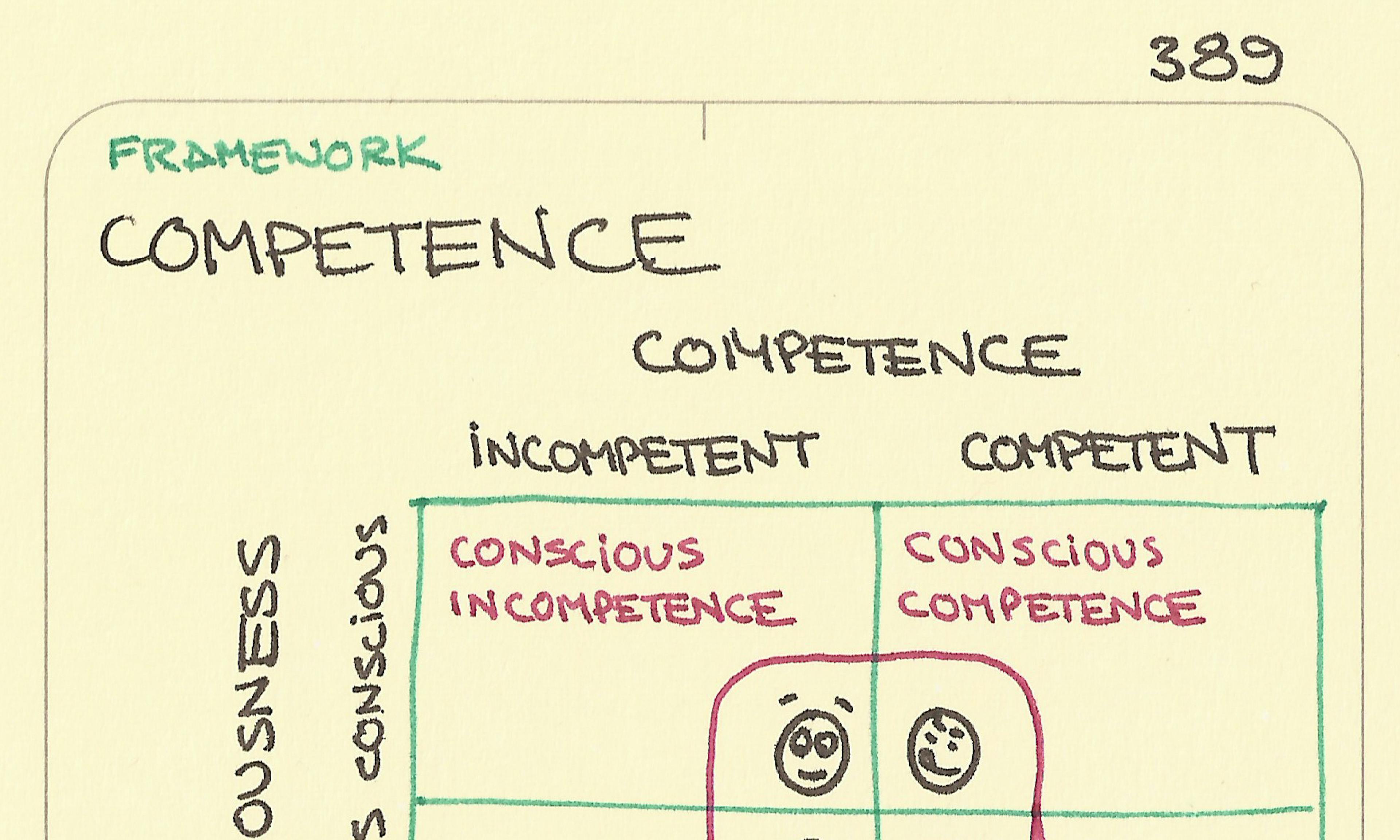 Stages of competence framework
Stages of competence framework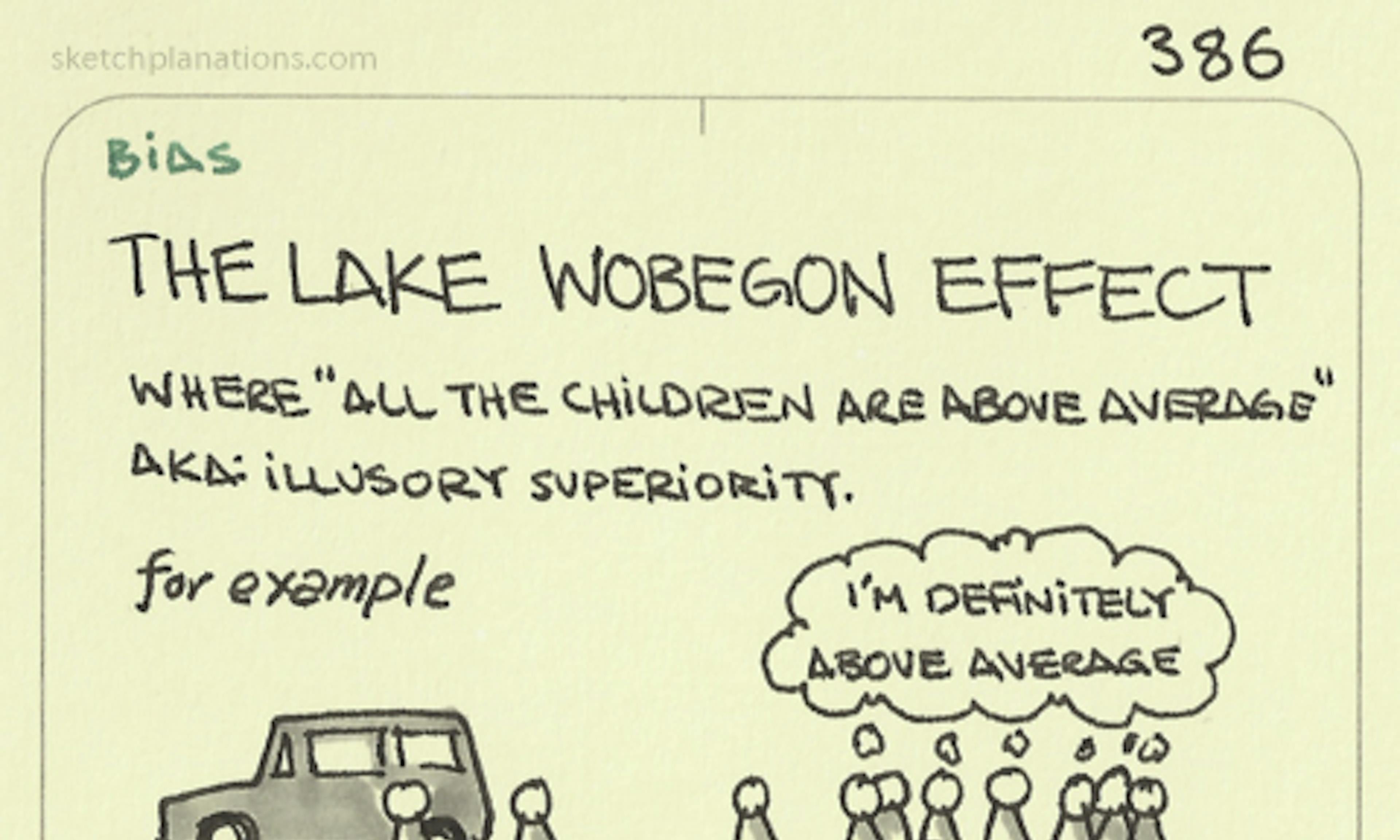 The Lake Wobegon Effect
The Lake Wobegon Effect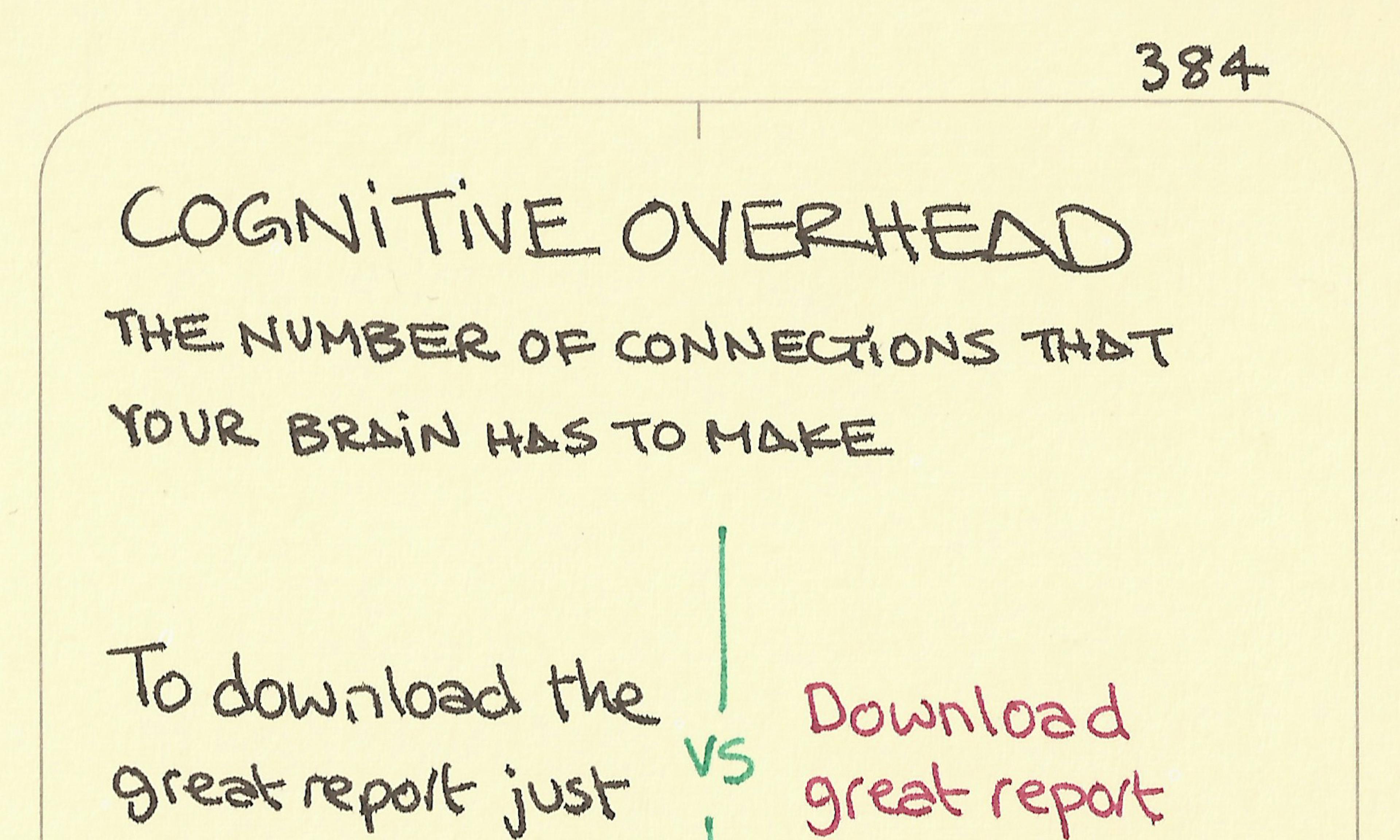 Cognitive overhead
Cognitive overhead Figure and ground
Figure and ground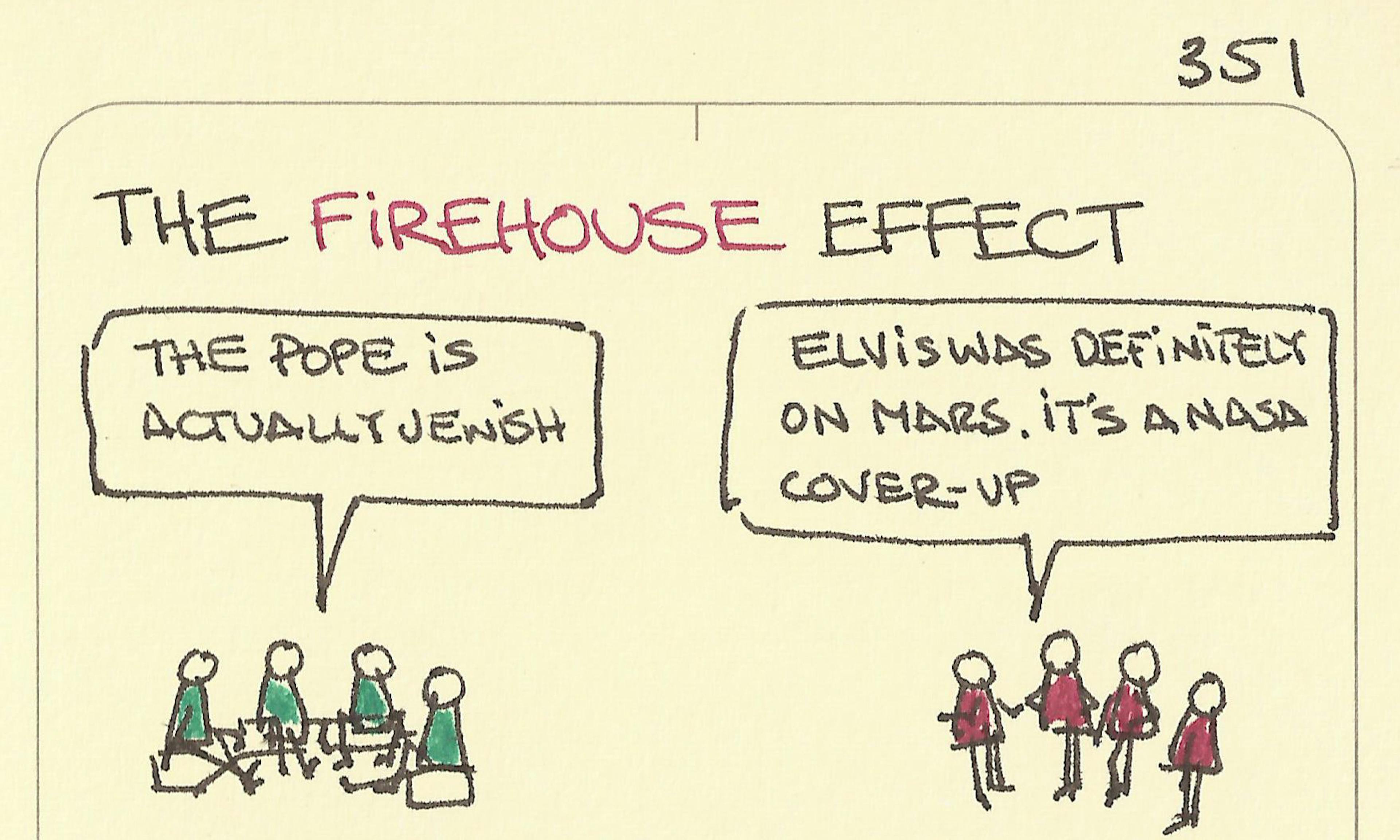 The Firehouse Effect
The Firehouse Effect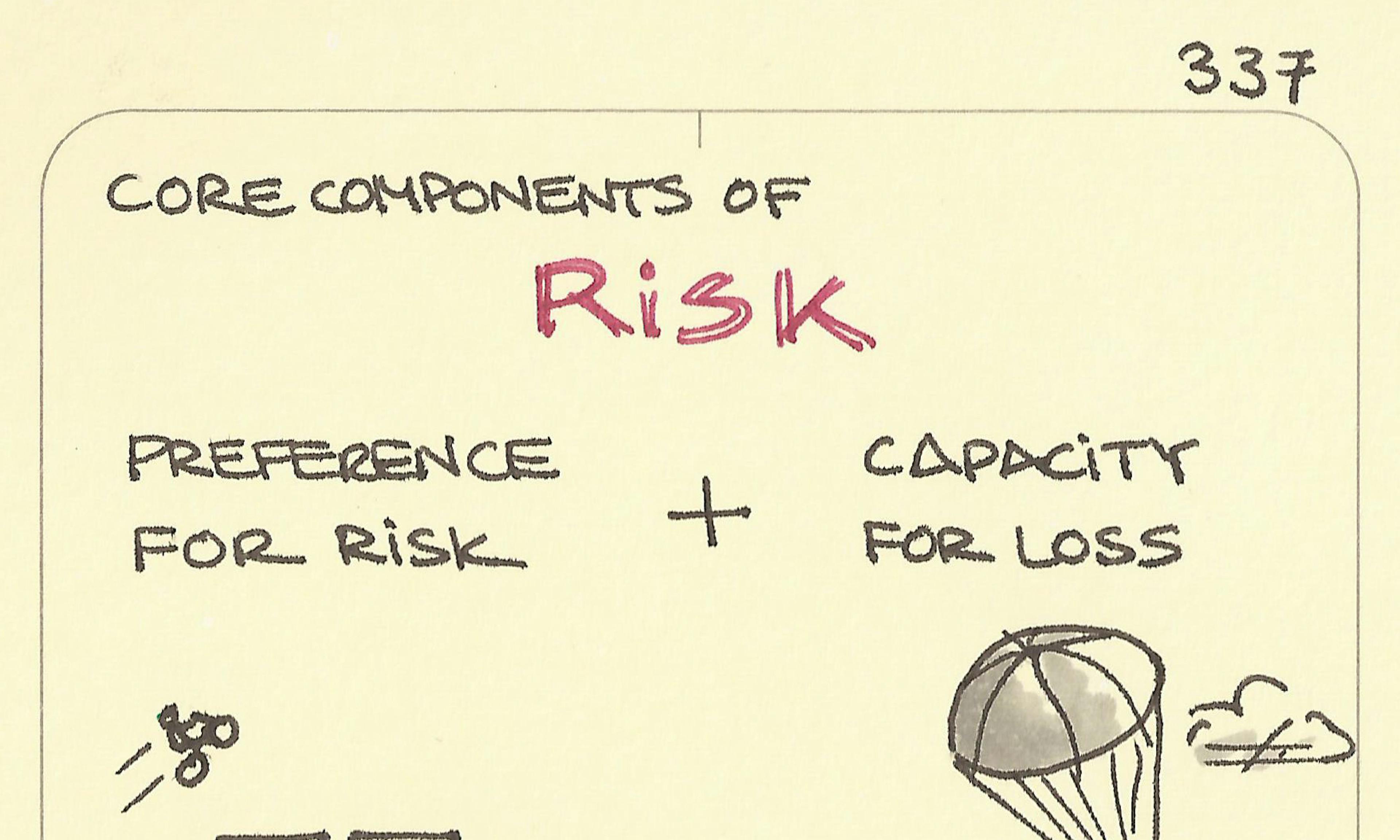 Core components of risk
Core components of risk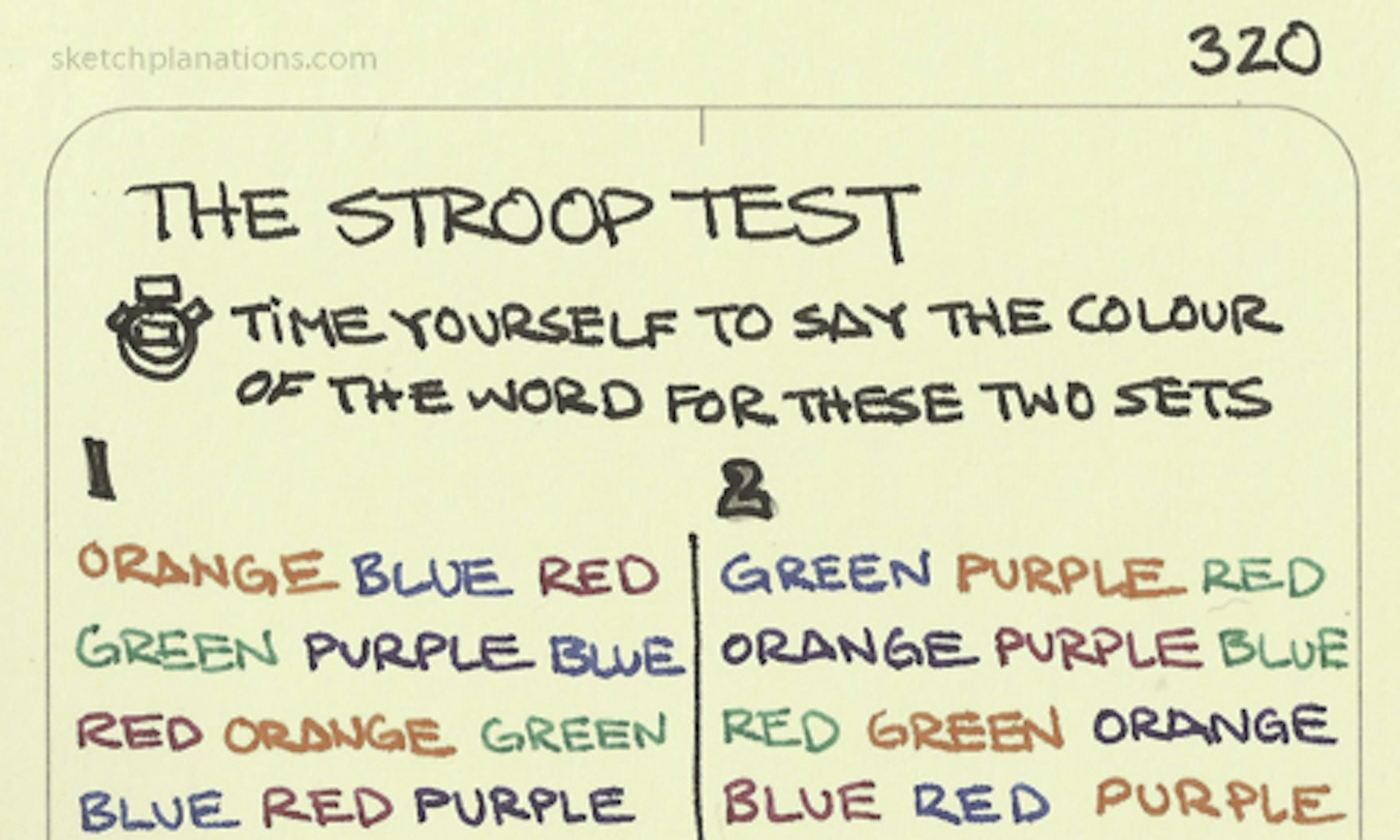 The Stroop test
The Stroop test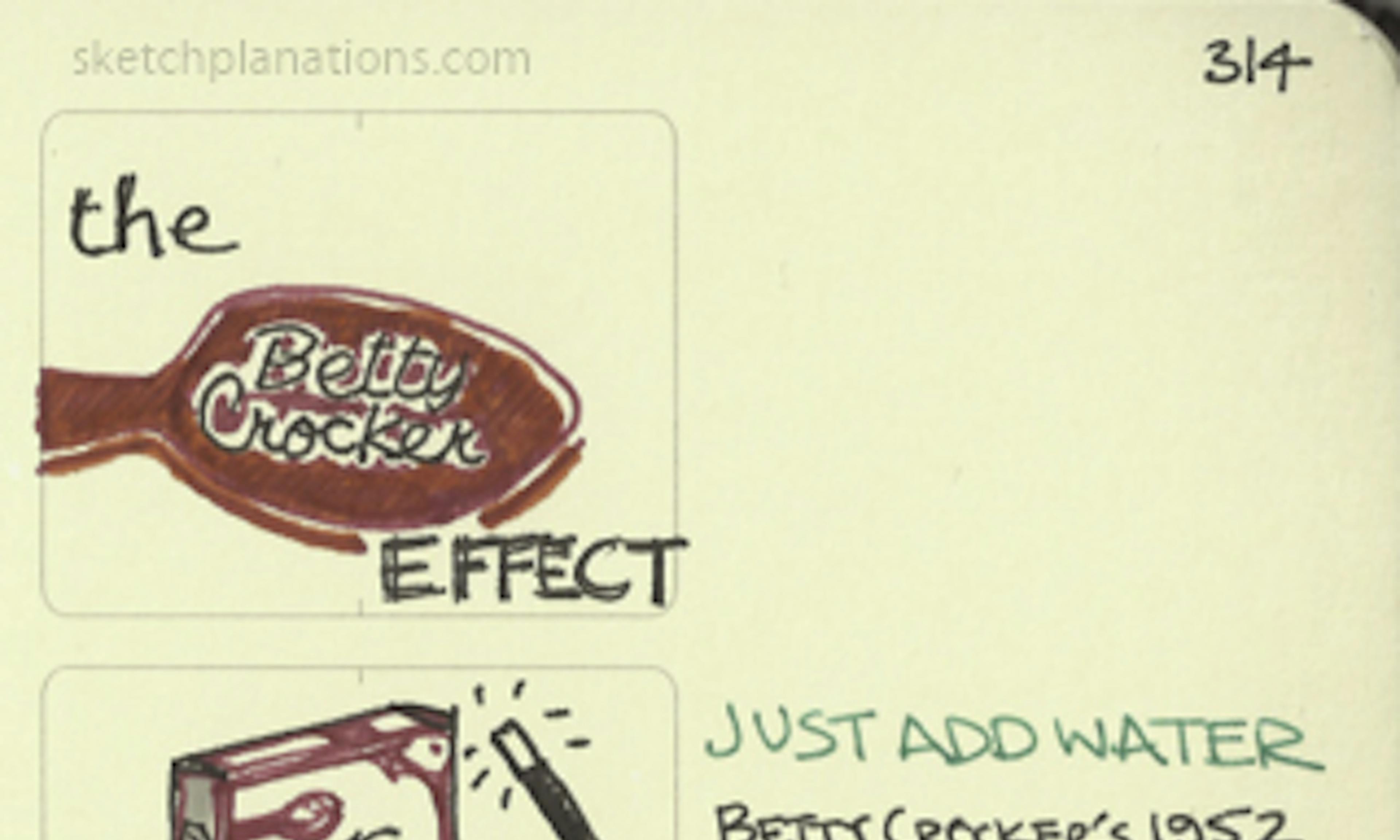 The Betty Crocker Effect
The Betty Crocker Effect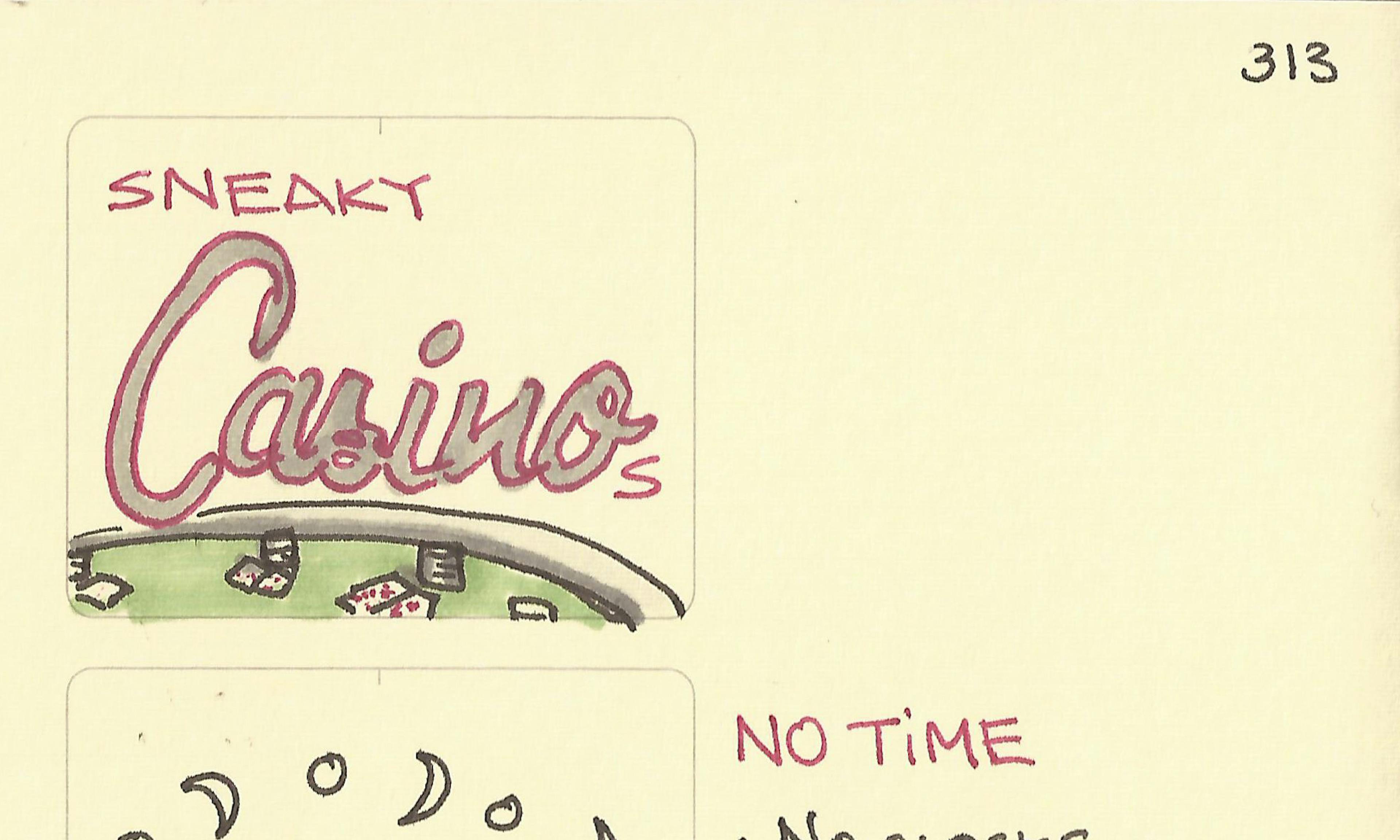 Sneaky casinos
Sneaky casinos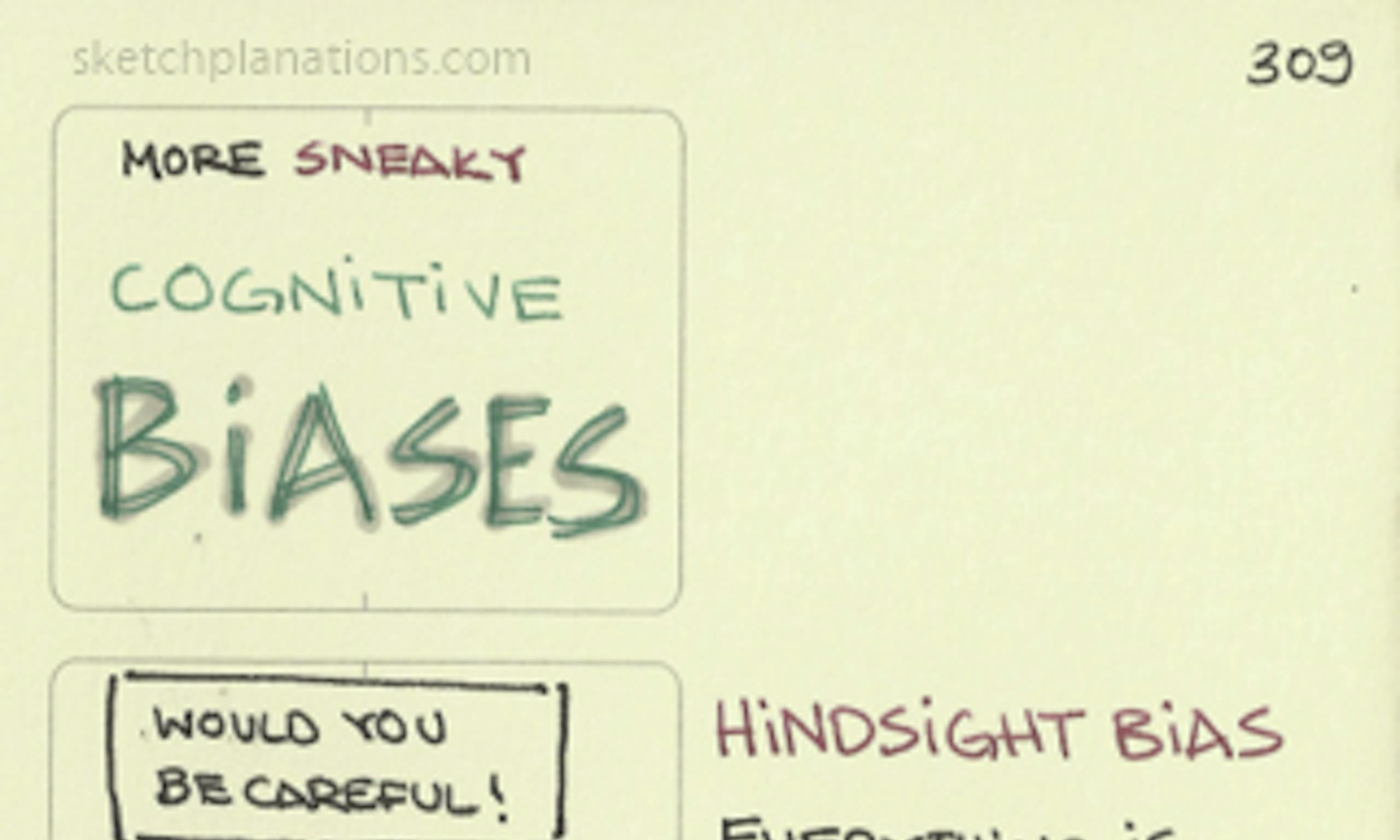 Sneaky cognitive biases: hindsight bias, loss aversion, recency bias
Sneaky cognitive biases: hindsight bias, loss aversion, recency bias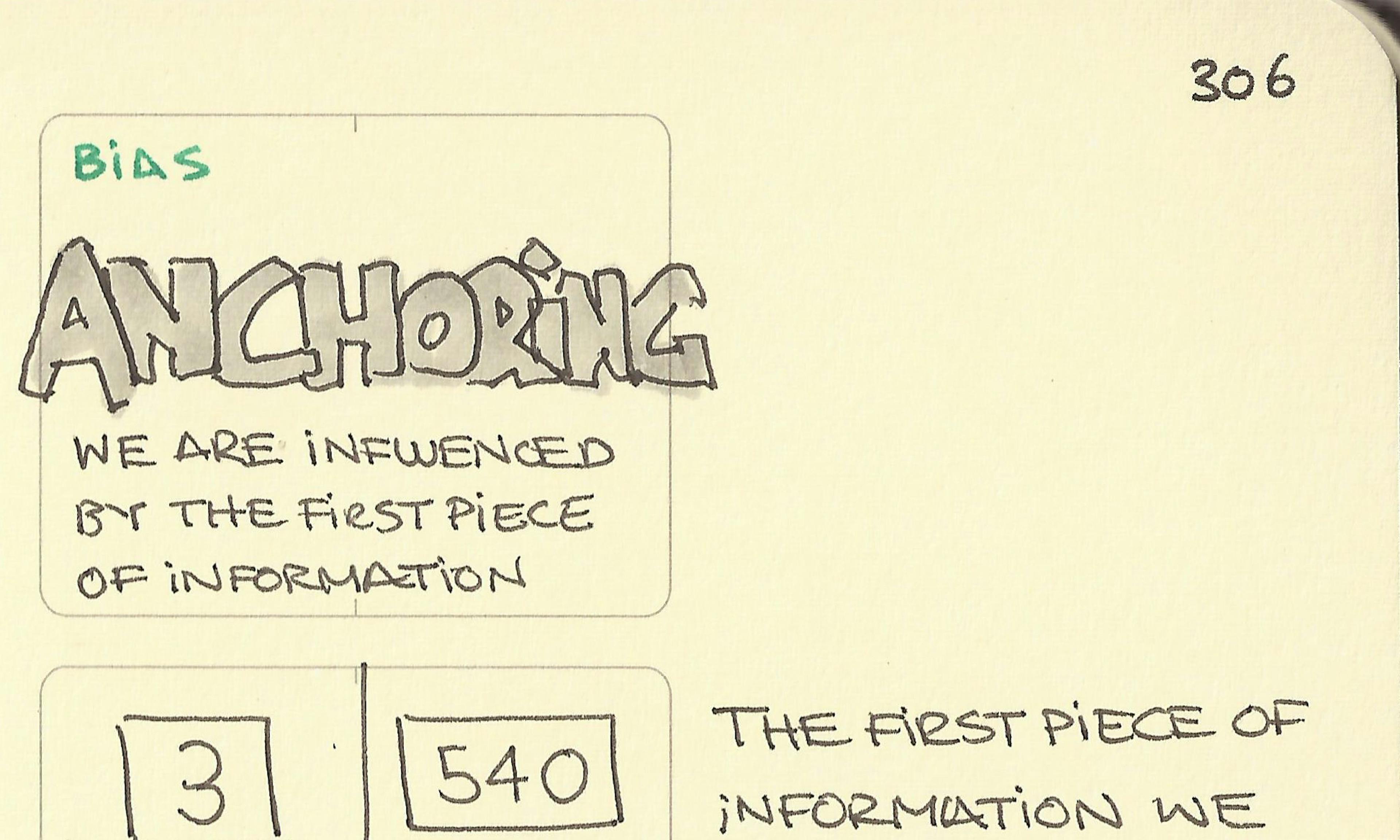 Anchoring
Anchoring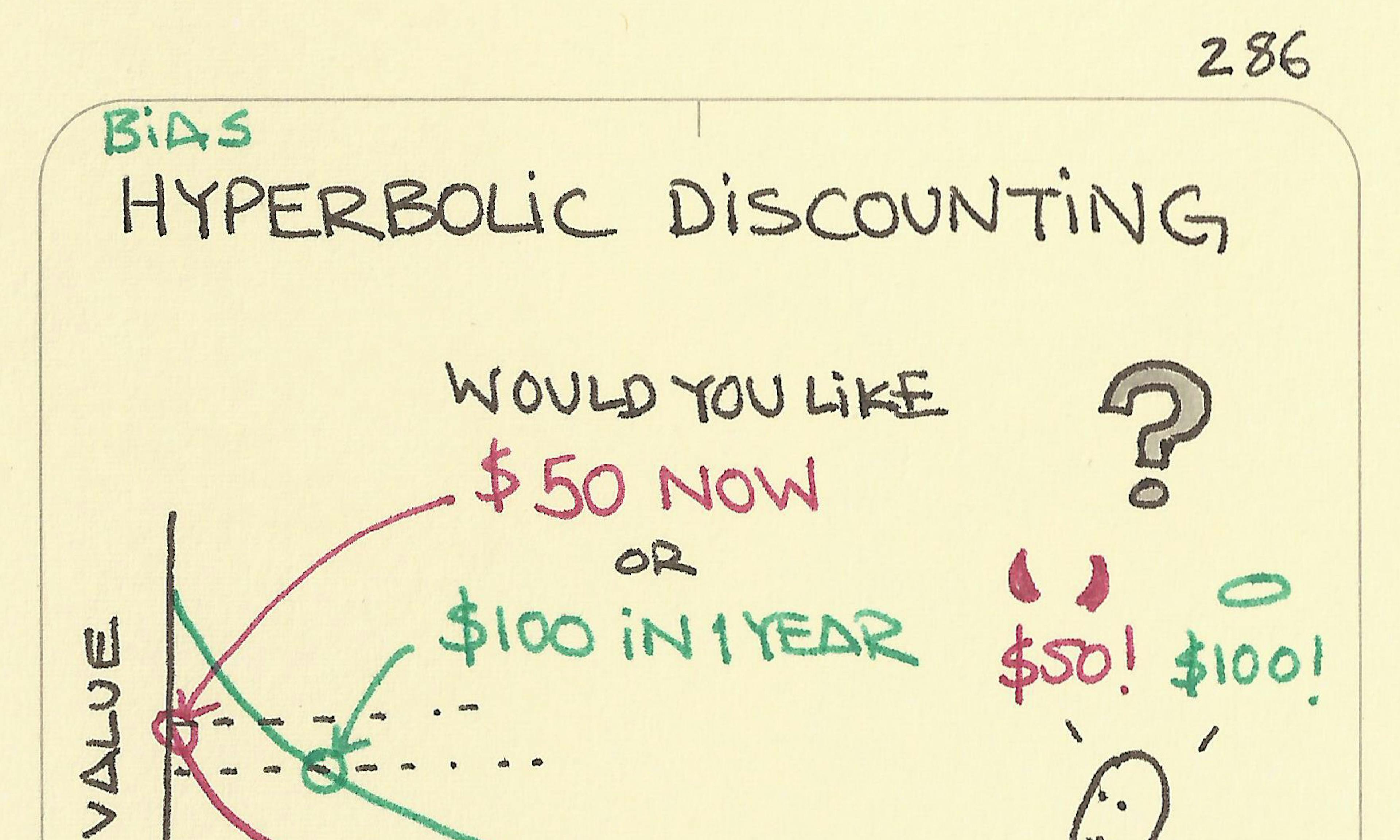 Hyperbolic discounting
Hyperbolic discounting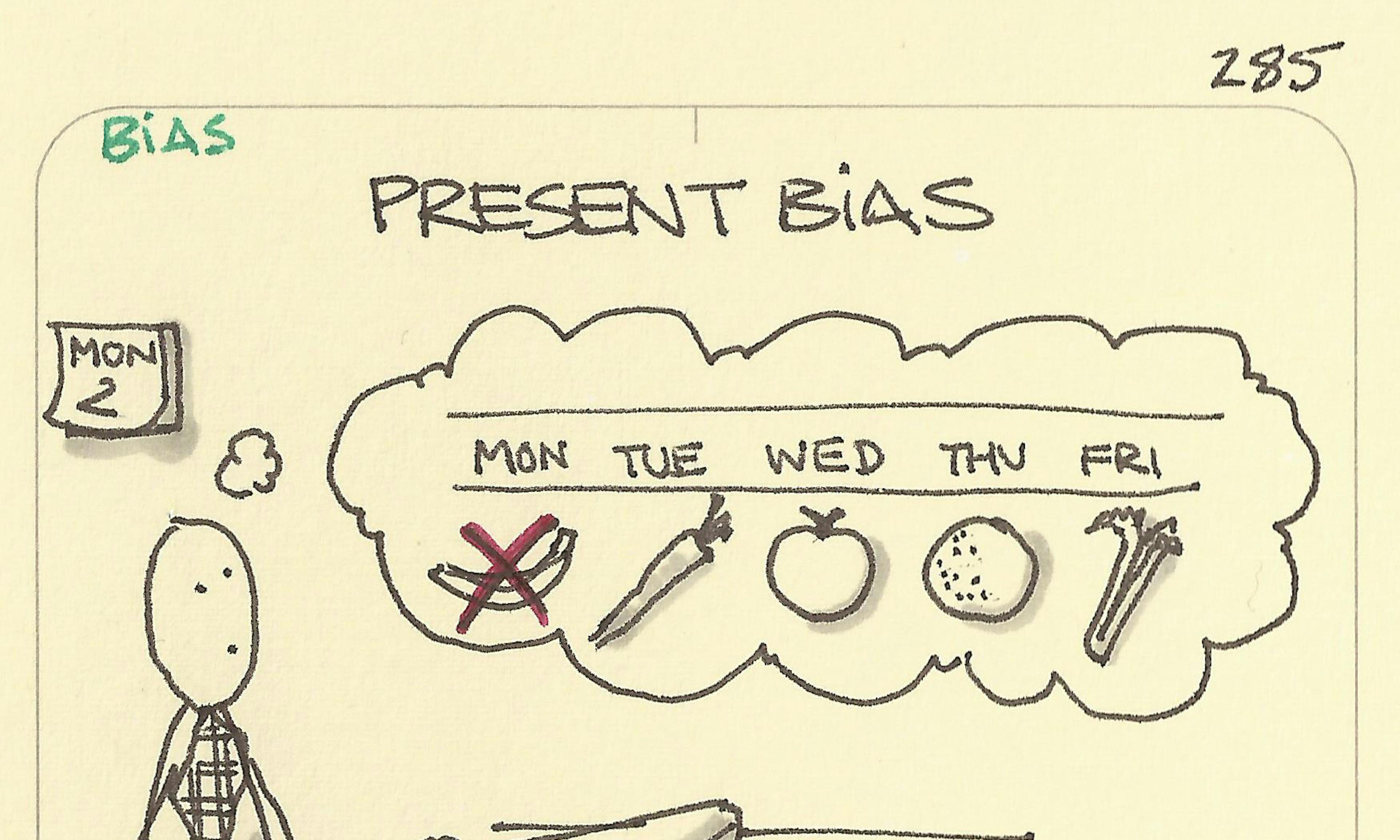 Present bias
Present bias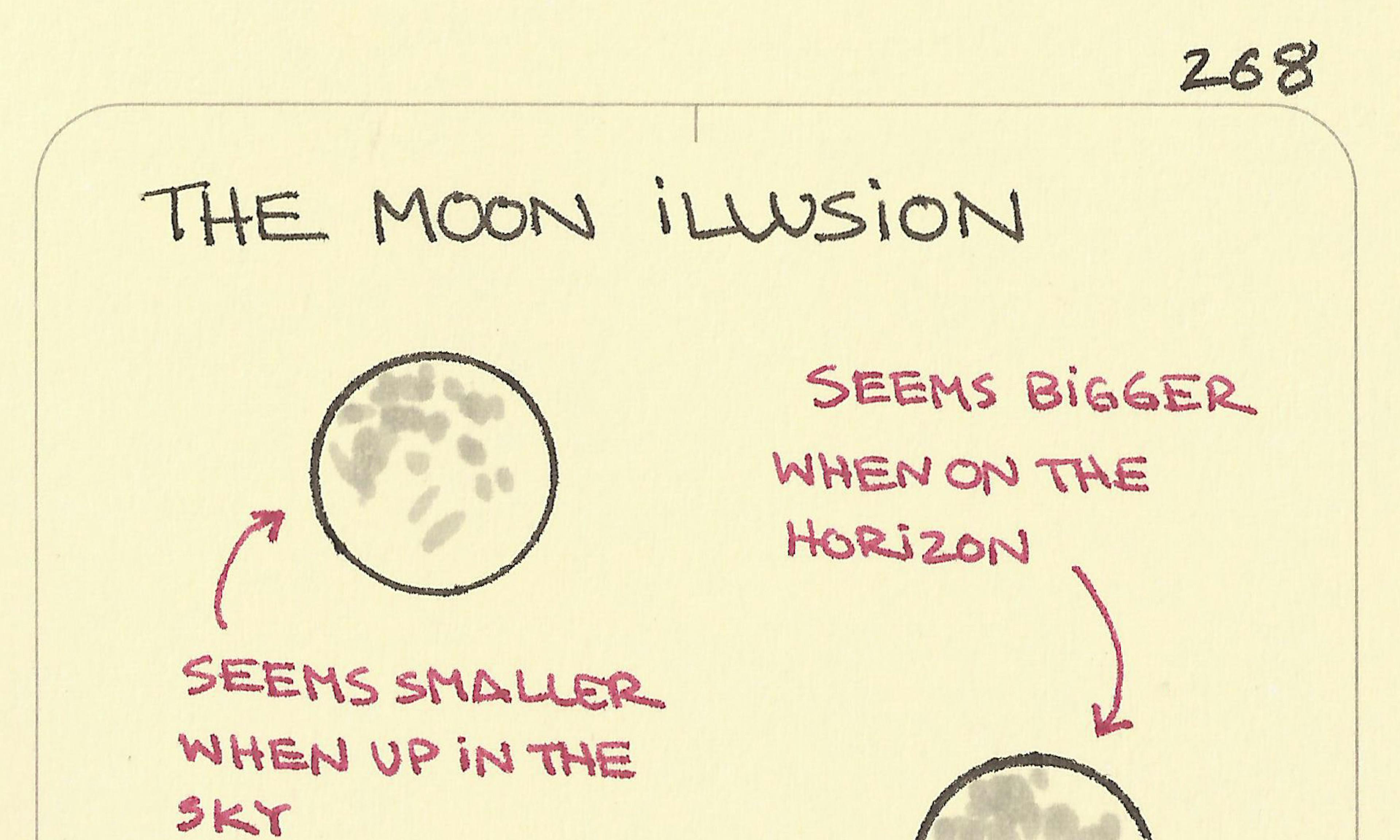 The moon illusion
The moon illusion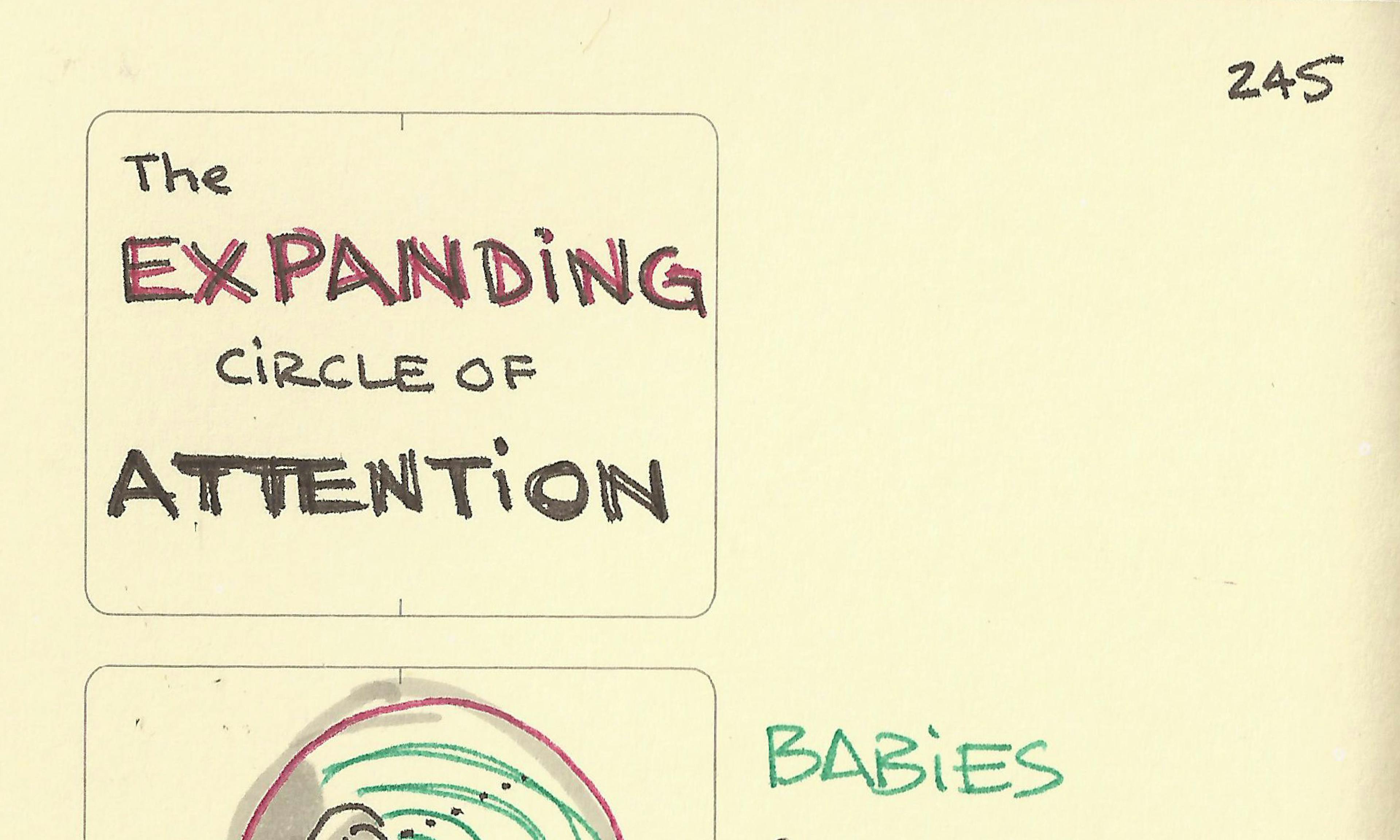 The expanding circle of attention
The expanding circle of attention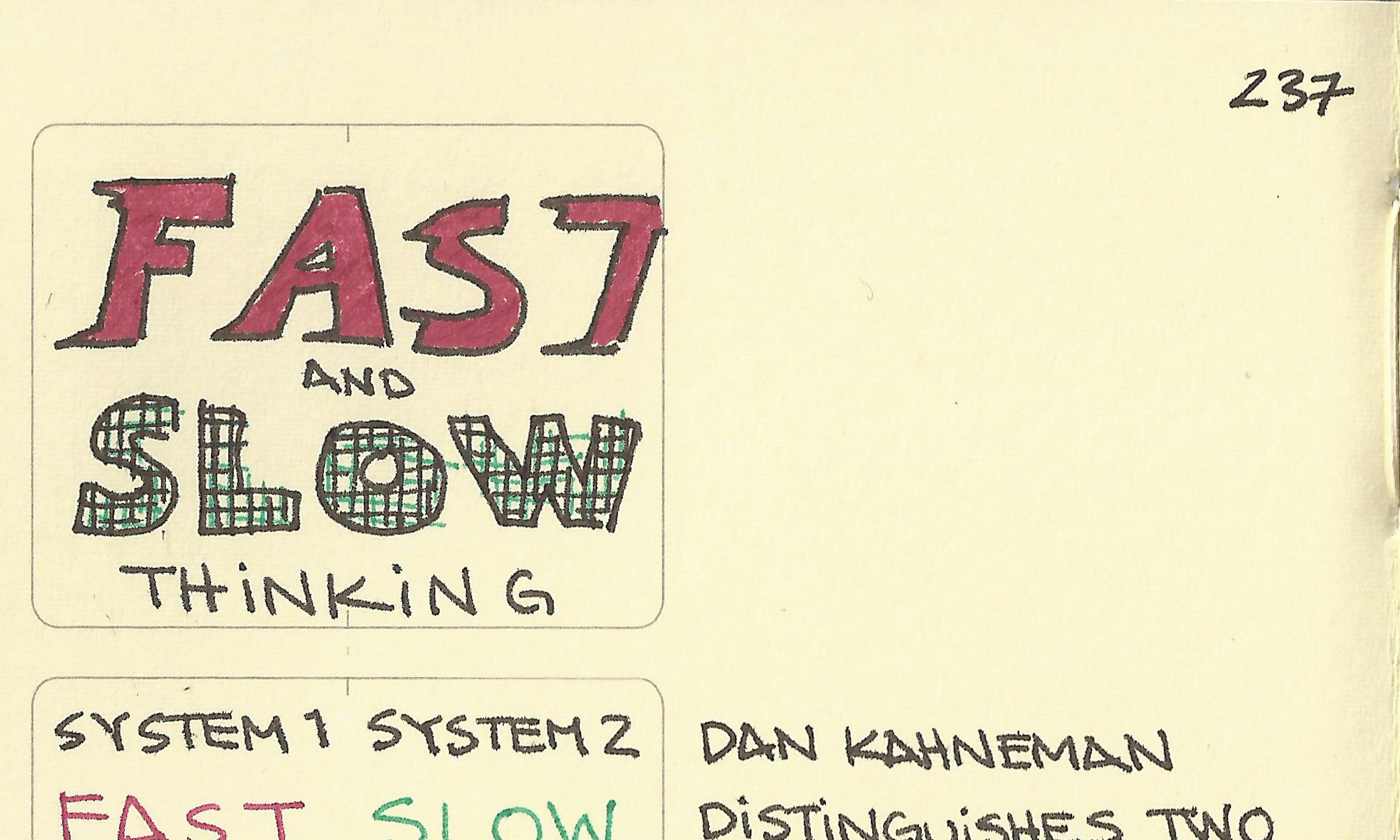 Fast and slow thinking
Fast and slow thinking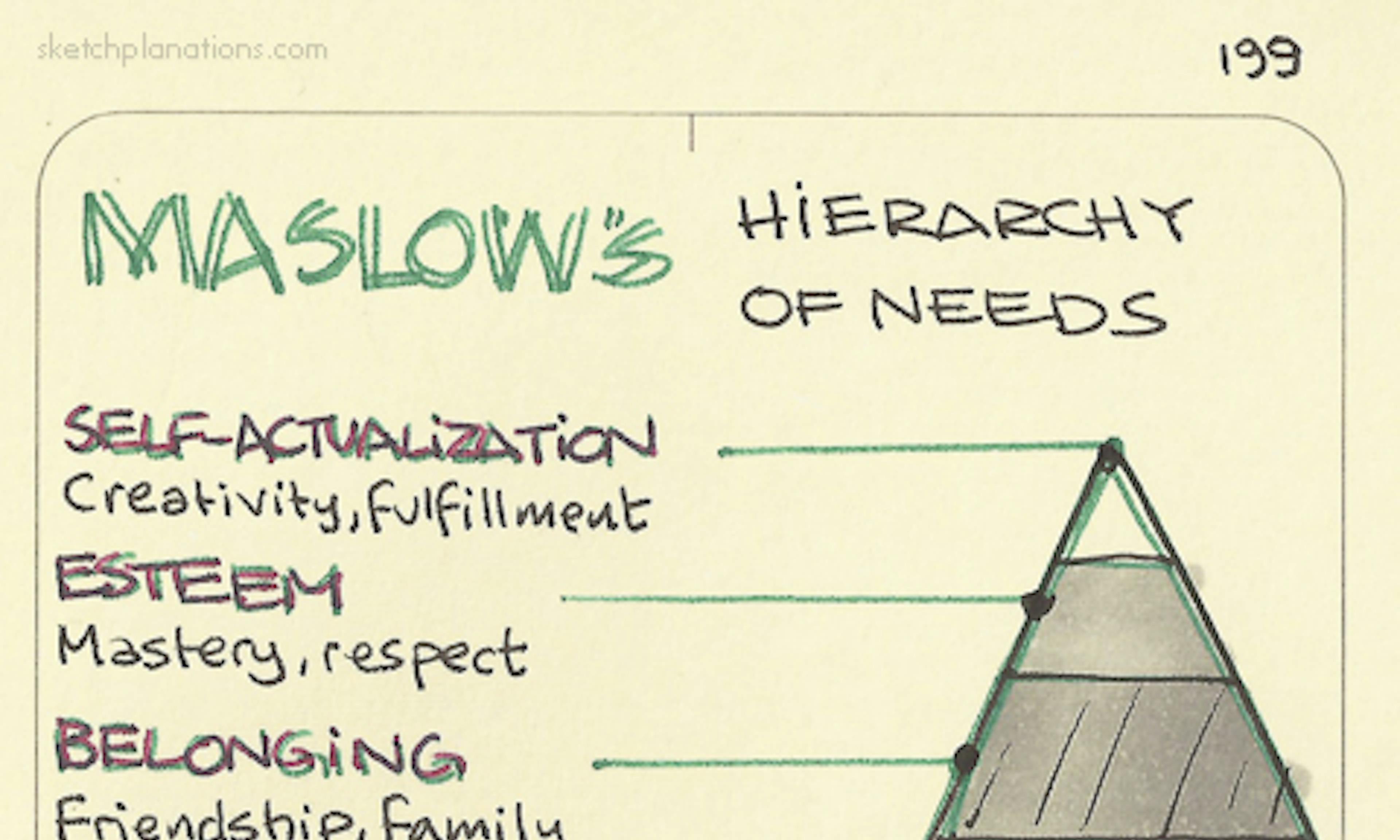 Maslow’s Hierarchy of needs
Maslow’s Hierarchy of needs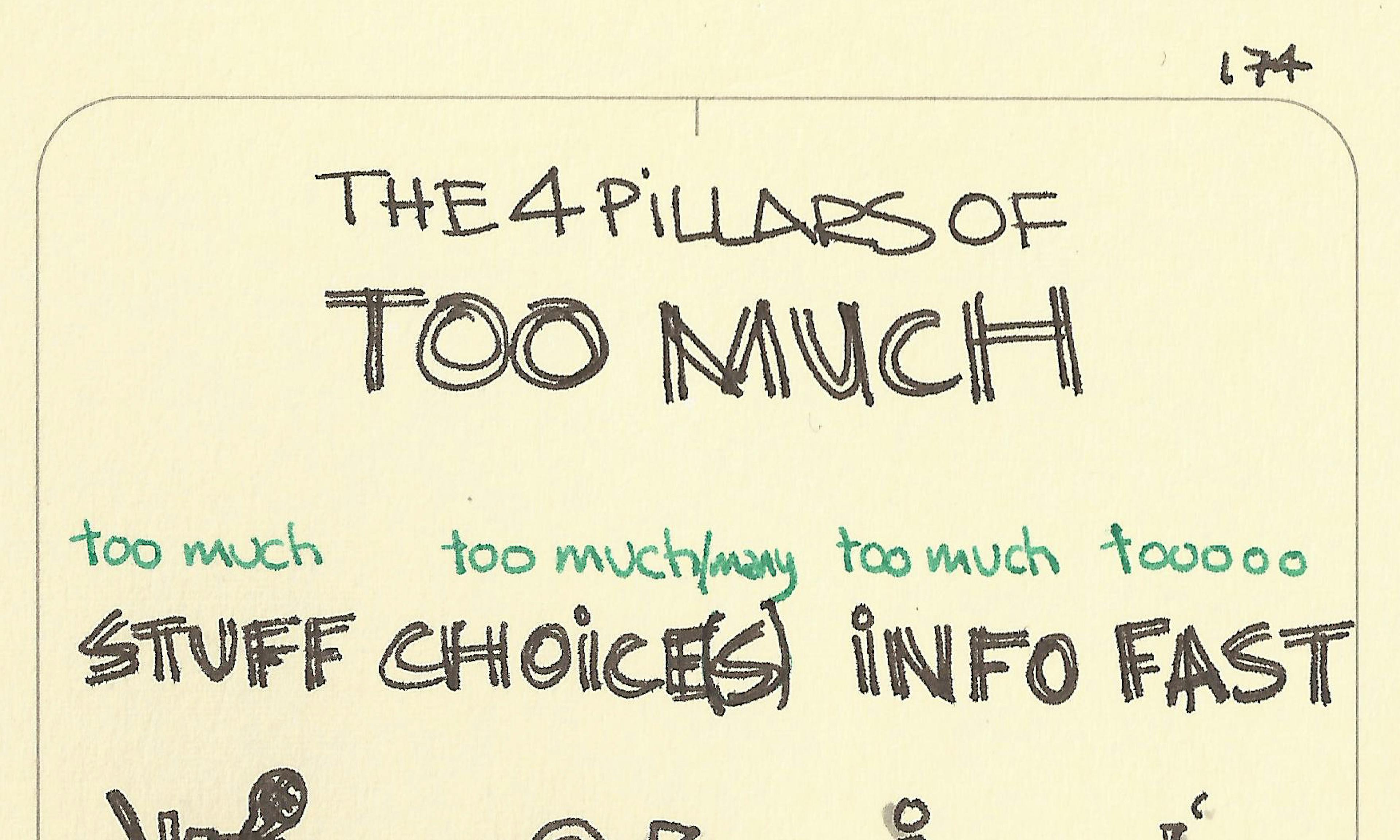 The four pillars of too much
The four pillars of too much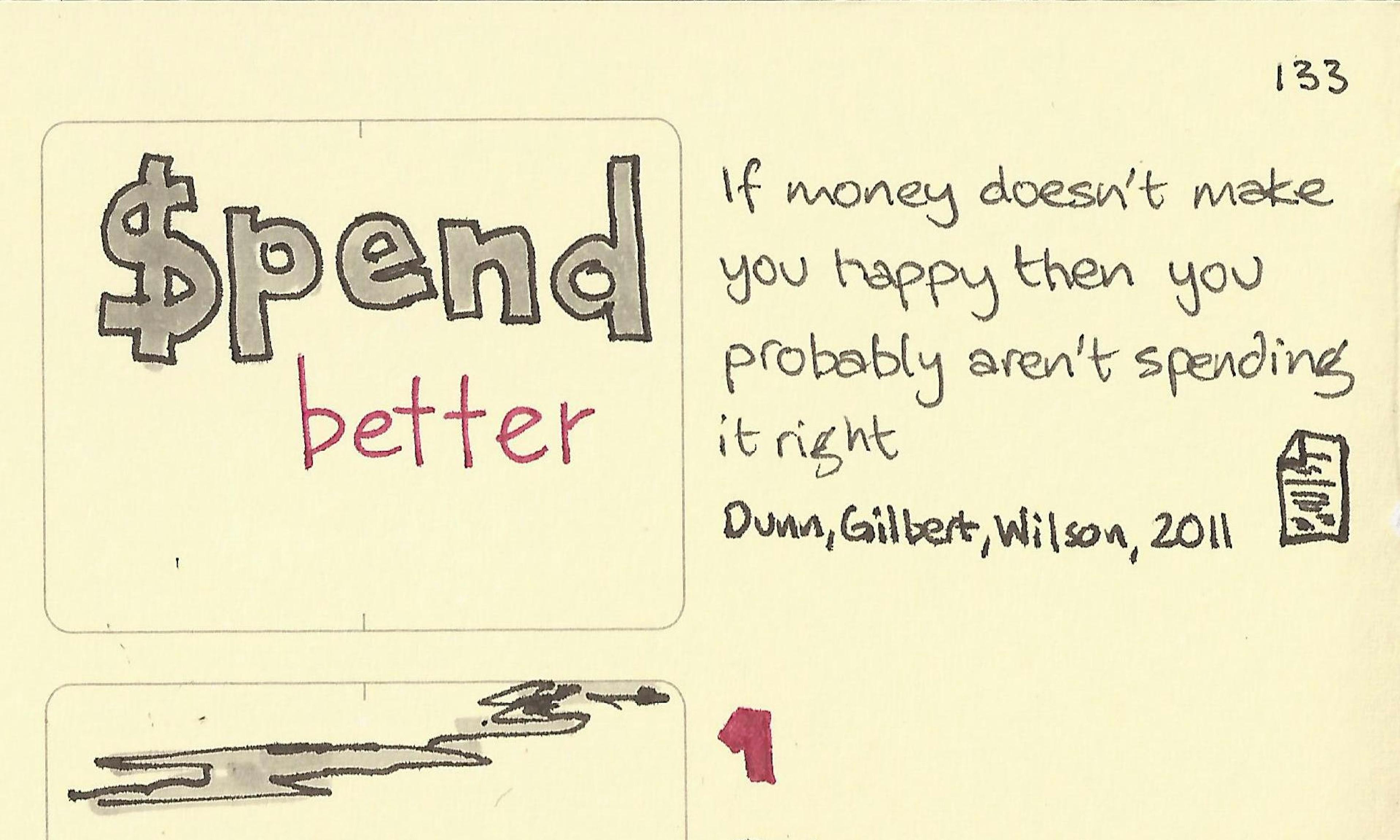 Spend better
Spend better
Psychology
 Gestalt principles
Gestalt principles Public commitment pledge
Public commitment pledge The Fundamental Attribution Error
The Fundamental Attribution Error The Barnum effect
The Barnum effect Self-serving bias
Self-serving bias The Droste effect
The Droste effect Dark patterns
Dark patterns The isolation effect
The isolation effect Attribution bias
Attribution bias Optimism bias
Optimism bias Halfalogue
Halfalogue Maslow's hierarchy of needs
Maslow's hierarchy of needs Extrinsic motivation
Extrinsic motivation Physics Envy
Physics Envy The Rhyme As Reason Effect
The Rhyme As Reason Effect Context is king
Context is king Languishing
Languishing Confirmation bias
Confirmation bias Fact tennis
Fact tennis The Bystander Effect
The Bystander Effect Flow
Flow Commitment device
Commitment device The Boaty McBoatface effect
The Boaty McBoatface effect The overview effect
The overview effect The 3-day effect
The 3-day effect Proportionality bias
Proportionality bias The Abilene paradox
The Abilene paradox Imposter syndrome
Imposter syndrome The trust equation
The trust equation The availability heuristic (and bias)
The availability heuristic (and bias) Dunbar’s number: 150
Dunbar’s number: 150 The Implicit Association Test
The Implicit Association Test What drives us: autonomy, mastery, purpose
What drives us: autonomy, mastery, purpose The spotlight effect
The spotlight effect The Effect Effect
The Effect Effect The misattribution of arousal
The misattribution of arousal Crossmodal perception
Crossmodal perception The Lucretius problem
The Lucretius problem Gaslighting
Gaslighting 9-Enders (nine-enders)
9-Enders (nine-enders) Buyer’s remorse
Buyer’s remorse The singularity effect
The singularity effect Emotional hot potato
Emotional hot potato Psychic numbing
Psychic numbing Johari window — a window of feedback and sharing
Johari window — a window of feedback and sharing Nominative determinism
Nominative determinism The peak-end rule
The peak-end rule Stages of grief
Stages of grief The prisoner’s dilemma
The prisoner’s dilemma The nocebo effect
The nocebo effect The placebo effect
The placebo effect Mapping emotions
Mapping emotions The IKEA effect
The IKEA effect Cognitive bias, heuristic, logical fallacy: hidden features of the mind
Cognitive bias, heuristic, logical fallacy: hidden features of the mind Benefits to you from getting started
Benefits to you from getting started Don’t make important decisions on an empty stomach
Don’t make important decisions on an empty stomach Prices written smaller seem more affordable
Prices written smaller seem more affordable Stages of competence framework
Stages of competence framework The Lake Wobegon Effect
The Lake Wobegon Effect Cognitive overhead
Cognitive overhead Figure and ground
Figure and ground The Firehouse Effect
The Firehouse Effect Core components of risk
Core components of risk The Stroop test
The Stroop test The Betty Crocker Effect
The Betty Crocker Effect Sneaky casinos
Sneaky casinos Sneaky cognitive biases: hindsight bias, loss aversion, recency bias
Sneaky cognitive biases: hindsight bias, loss aversion, recency bias Anchoring
Anchoring Hyperbolic discounting
Hyperbolic discounting Present bias
Present bias The moon illusion
The moon illusion The expanding circle of attention
The expanding circle of attention Fast and slow thinking
Fast and slow thinking Maslow’s Hierarchy of needs
Maslow’s Hierarchy of needs The four pillars of too much
The four pillars of too much Spend better
Spend better